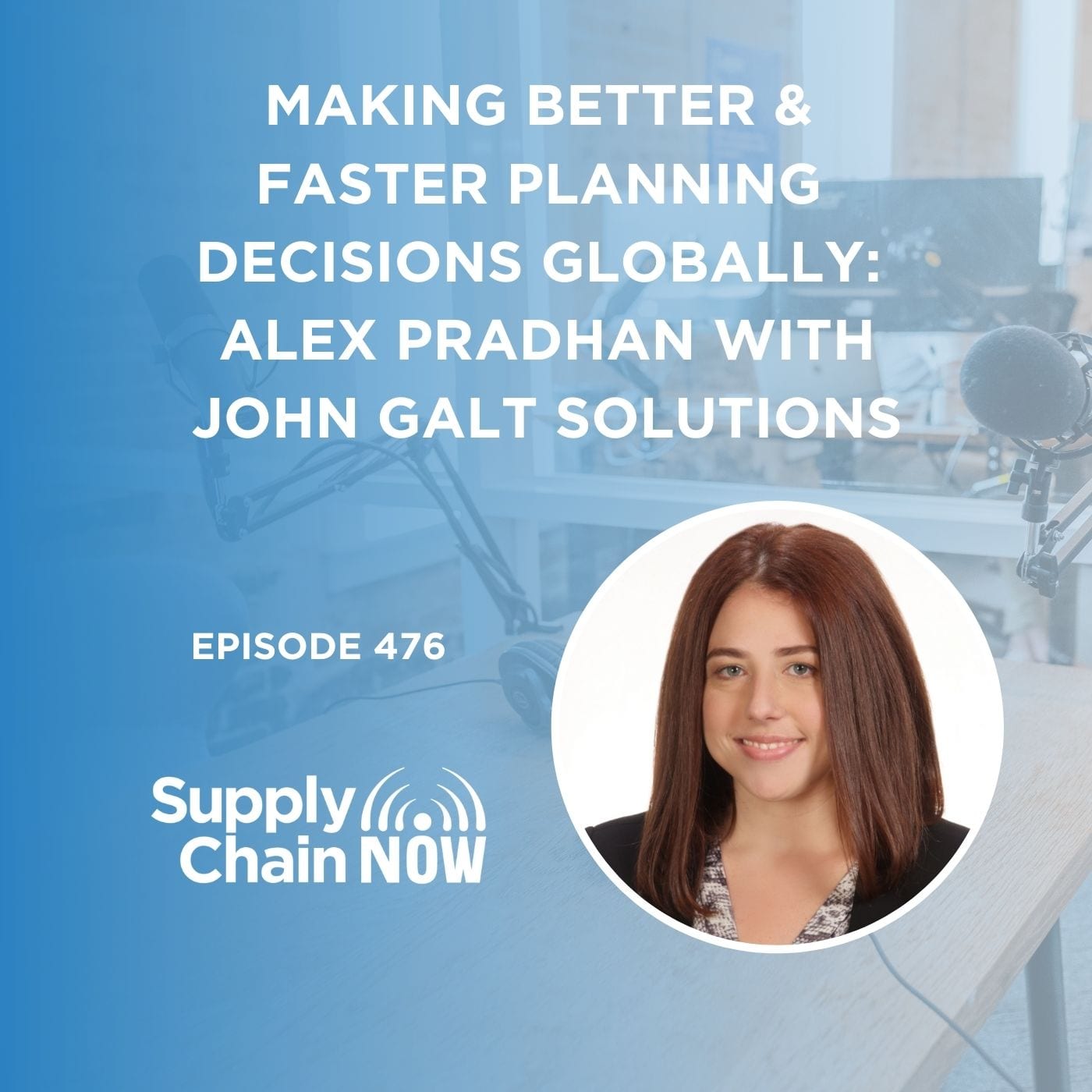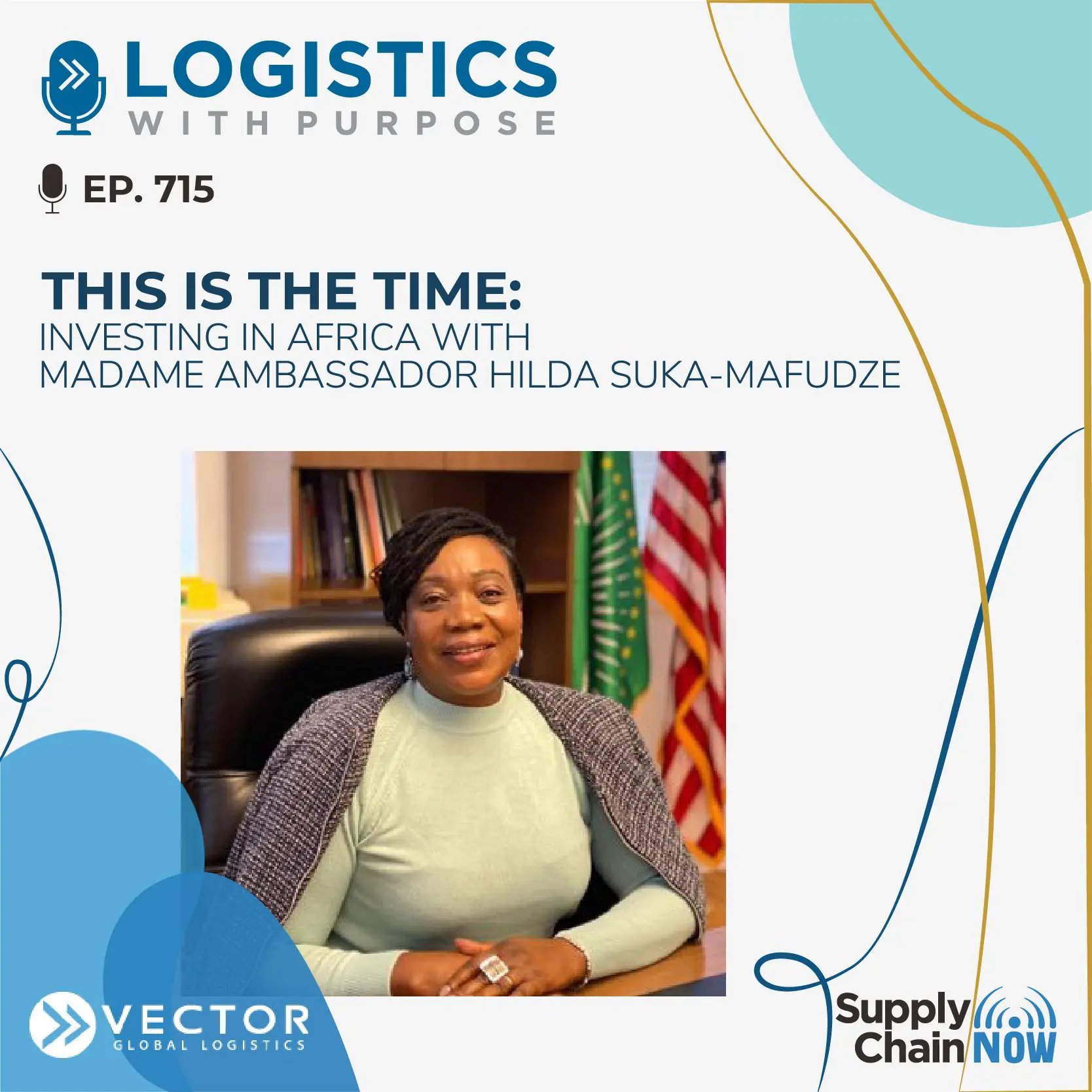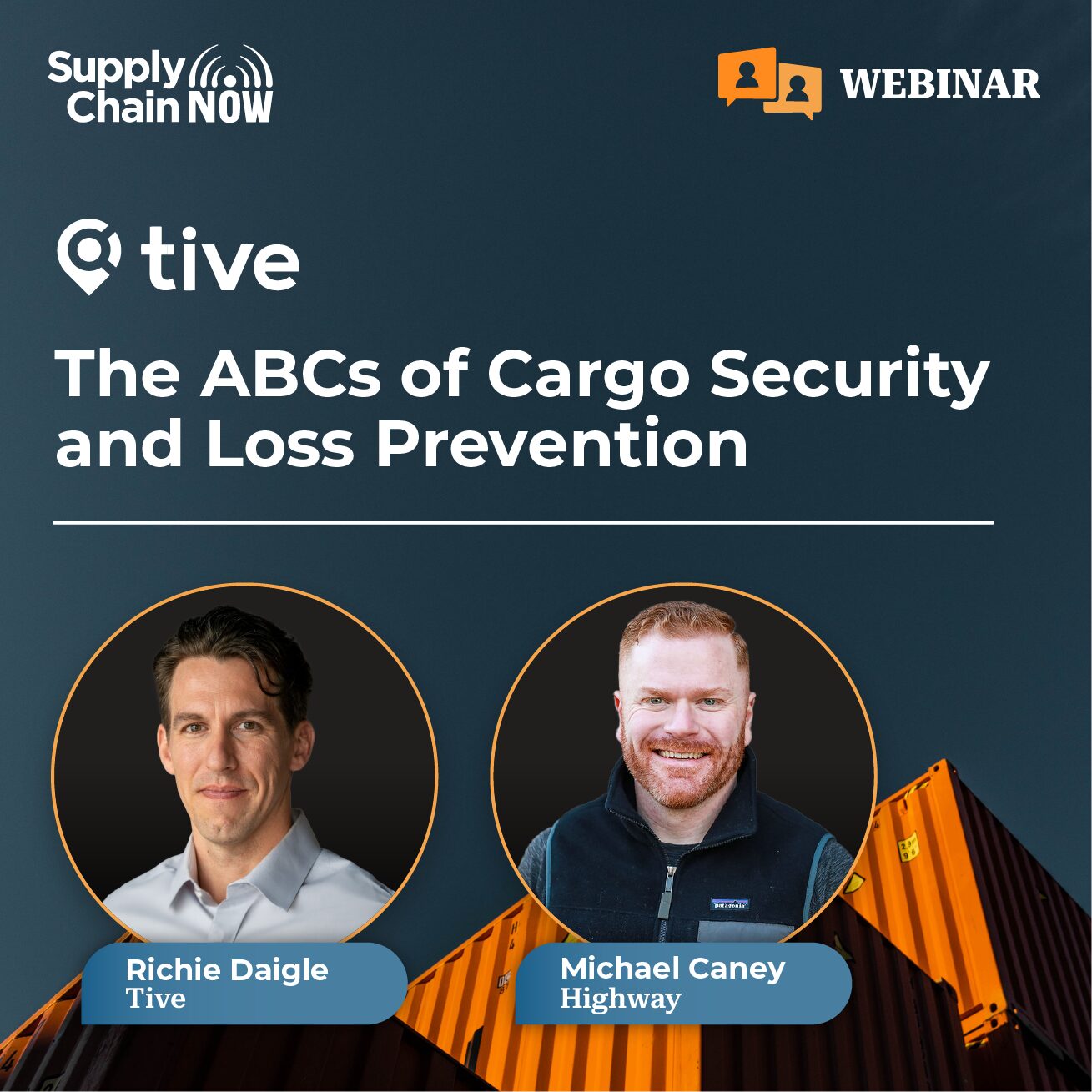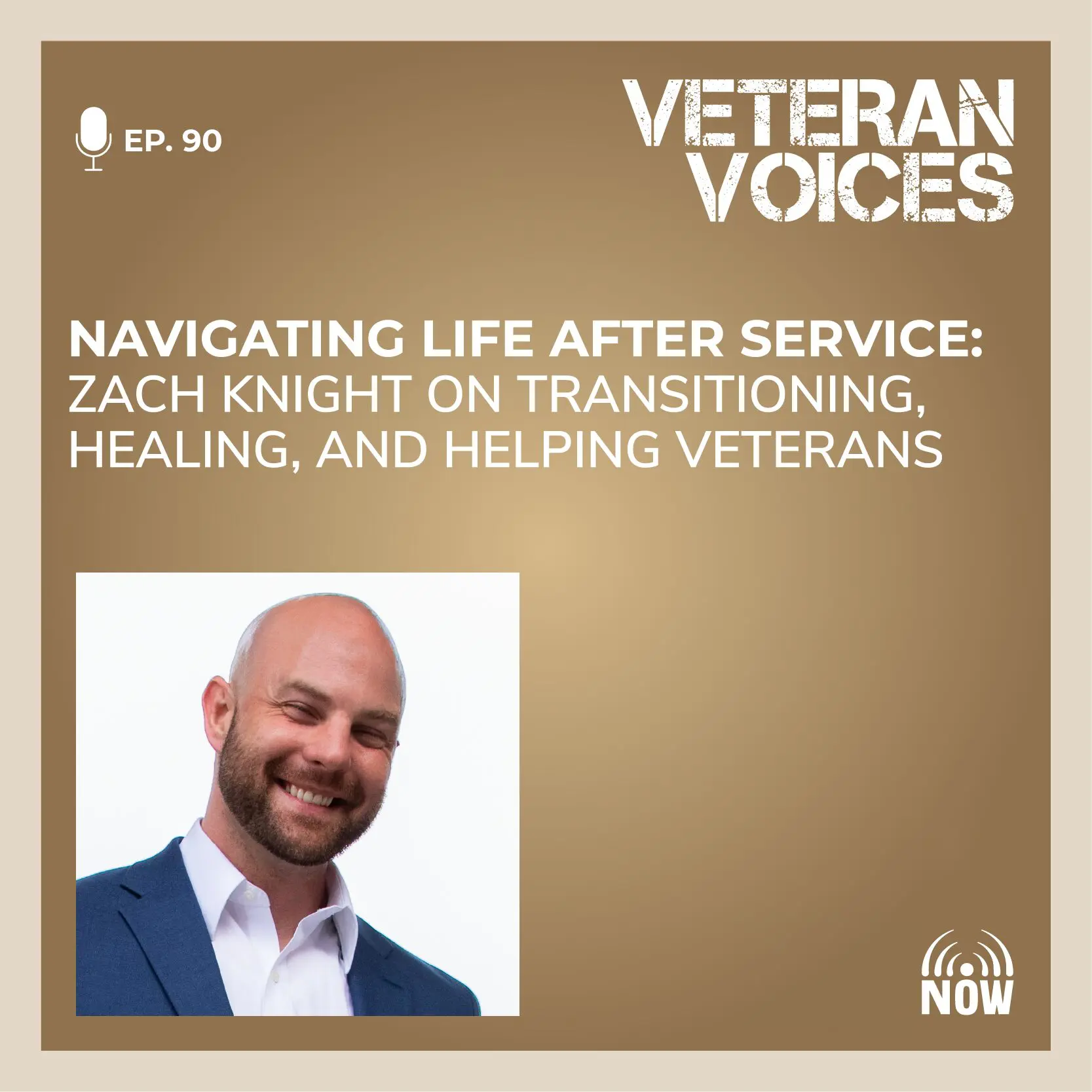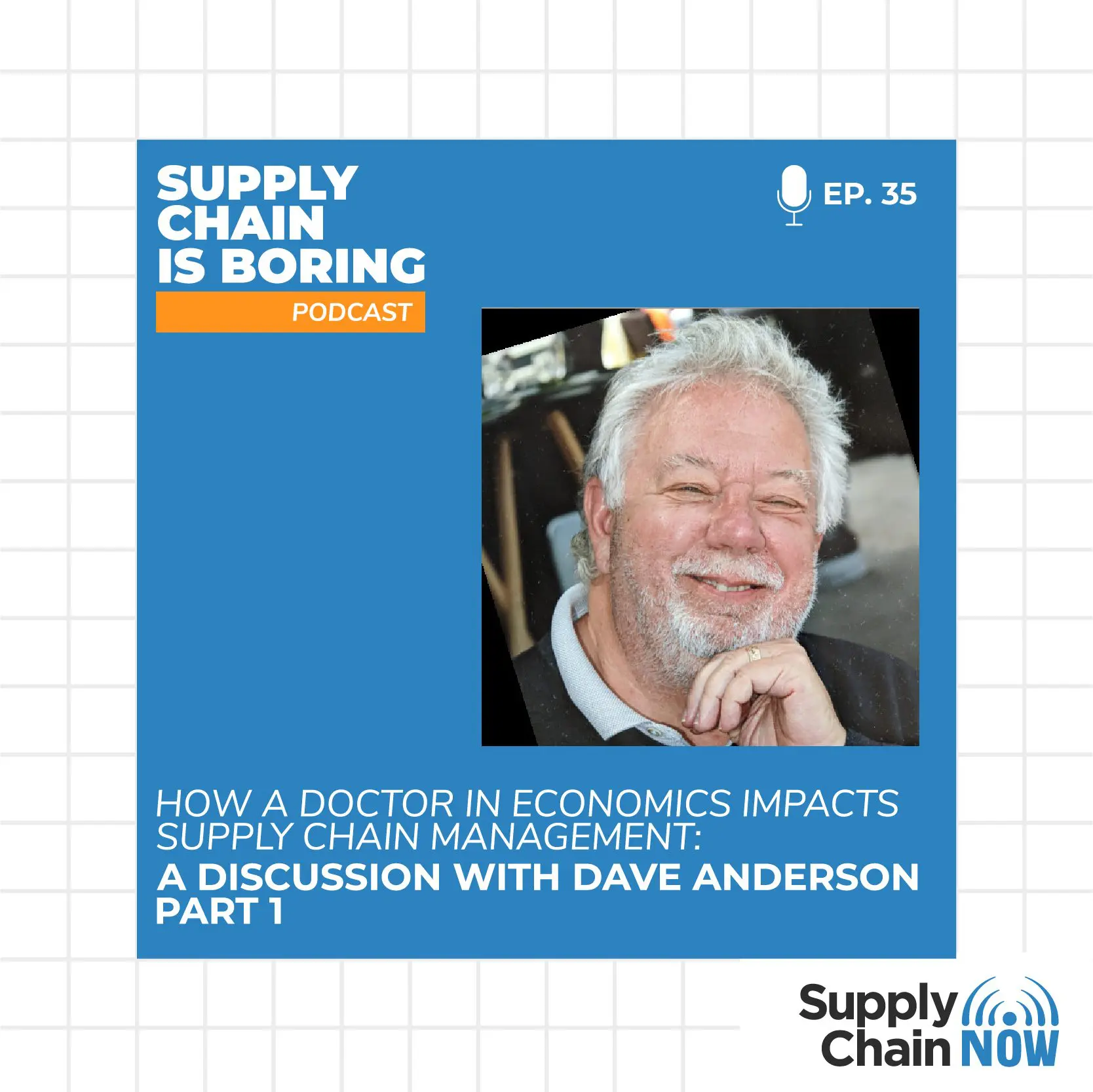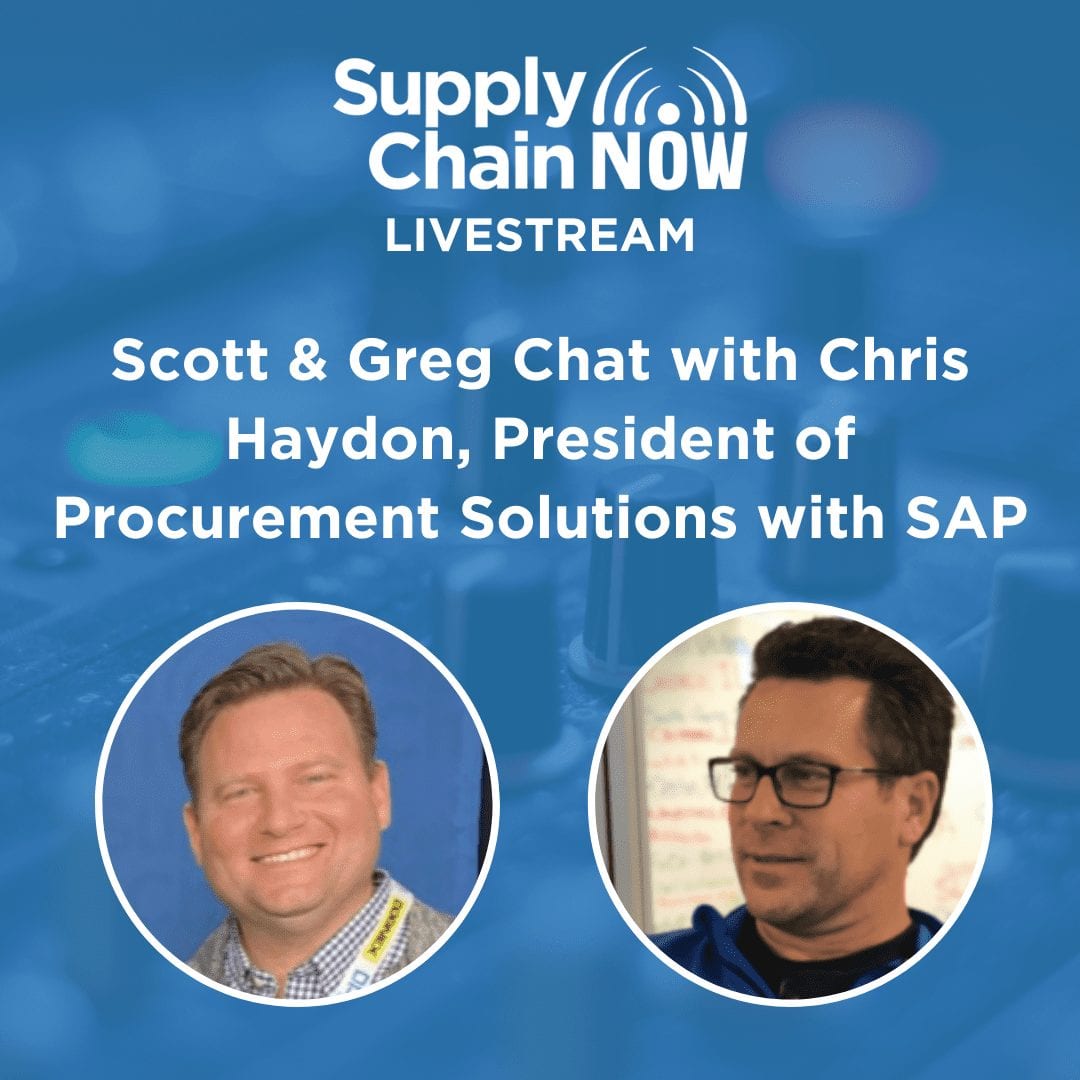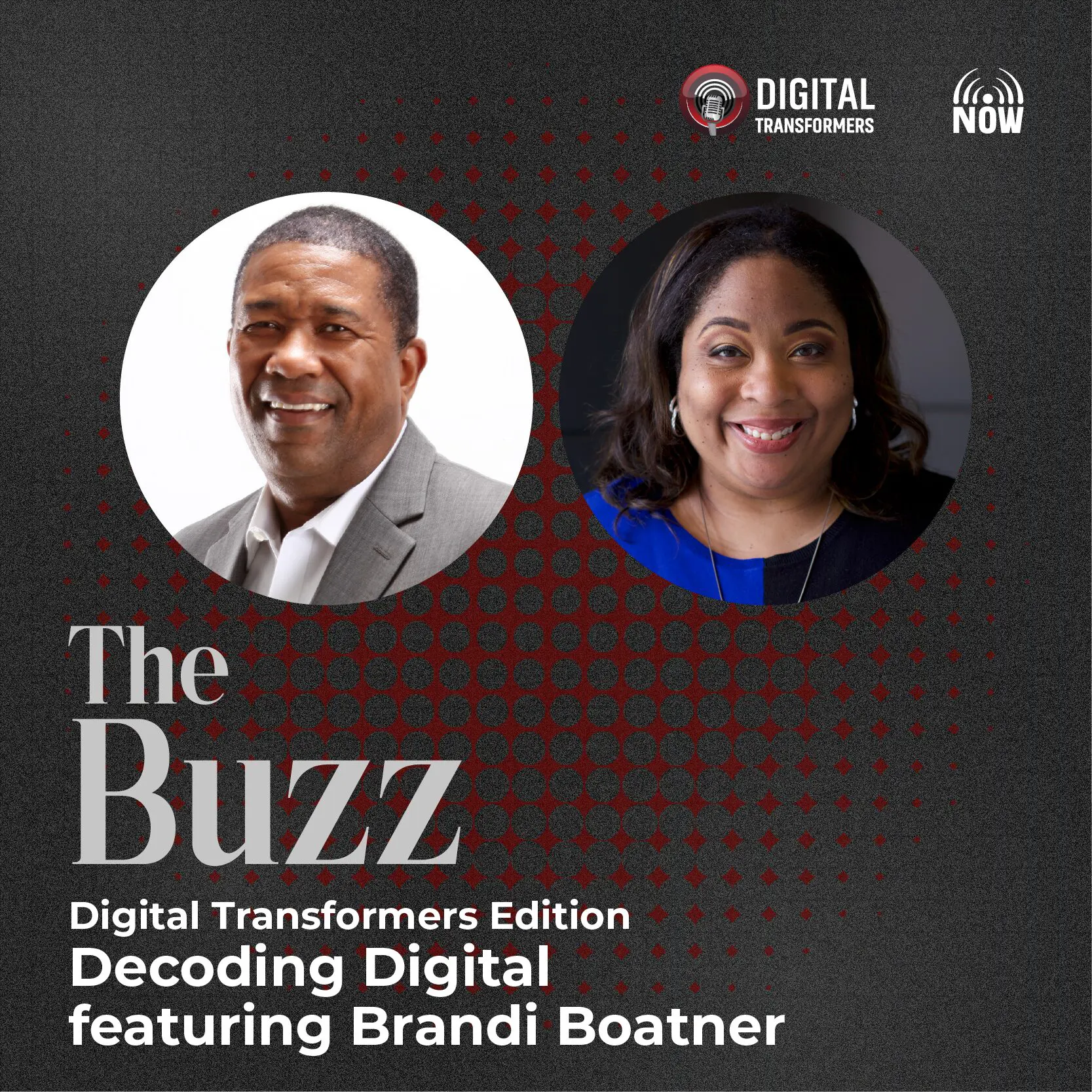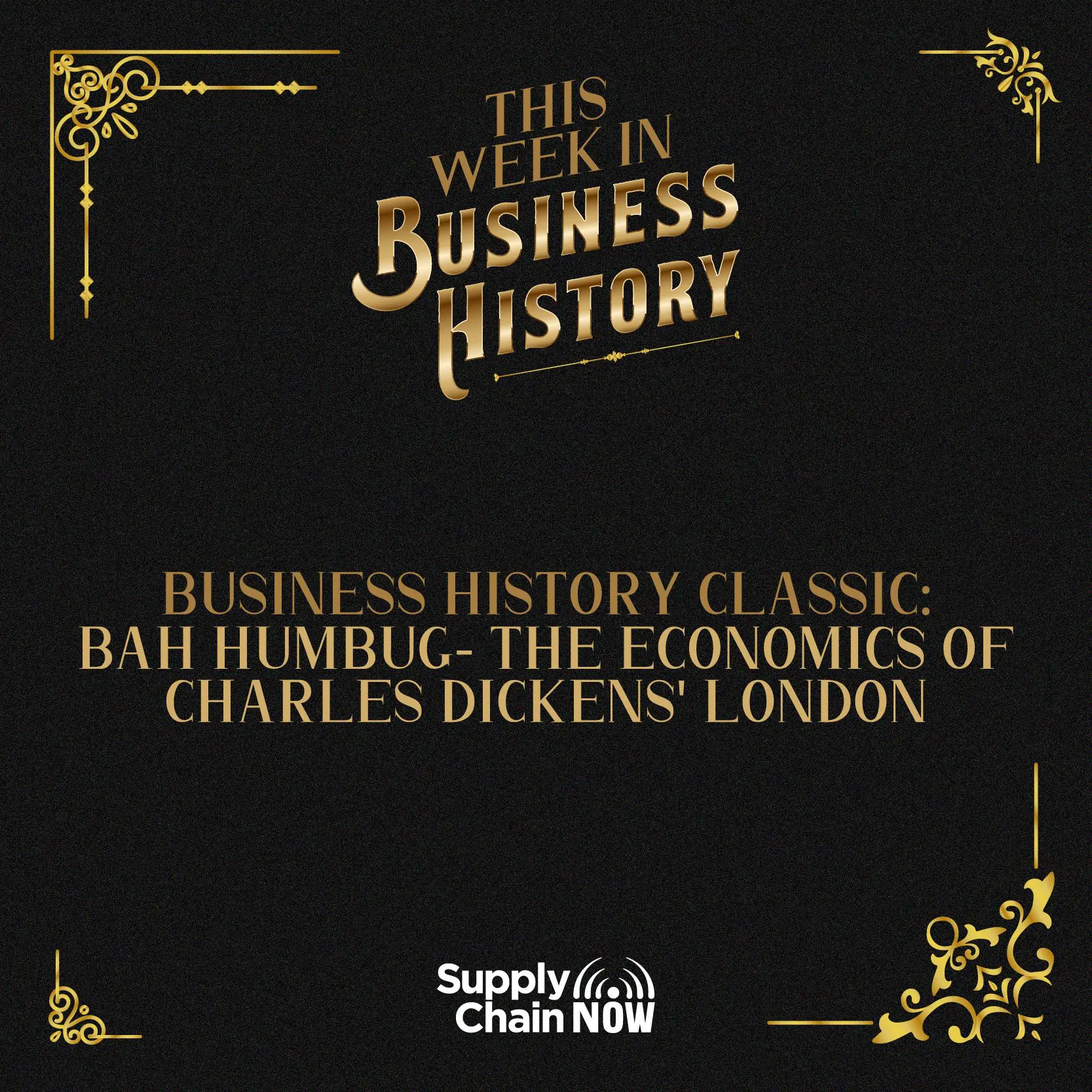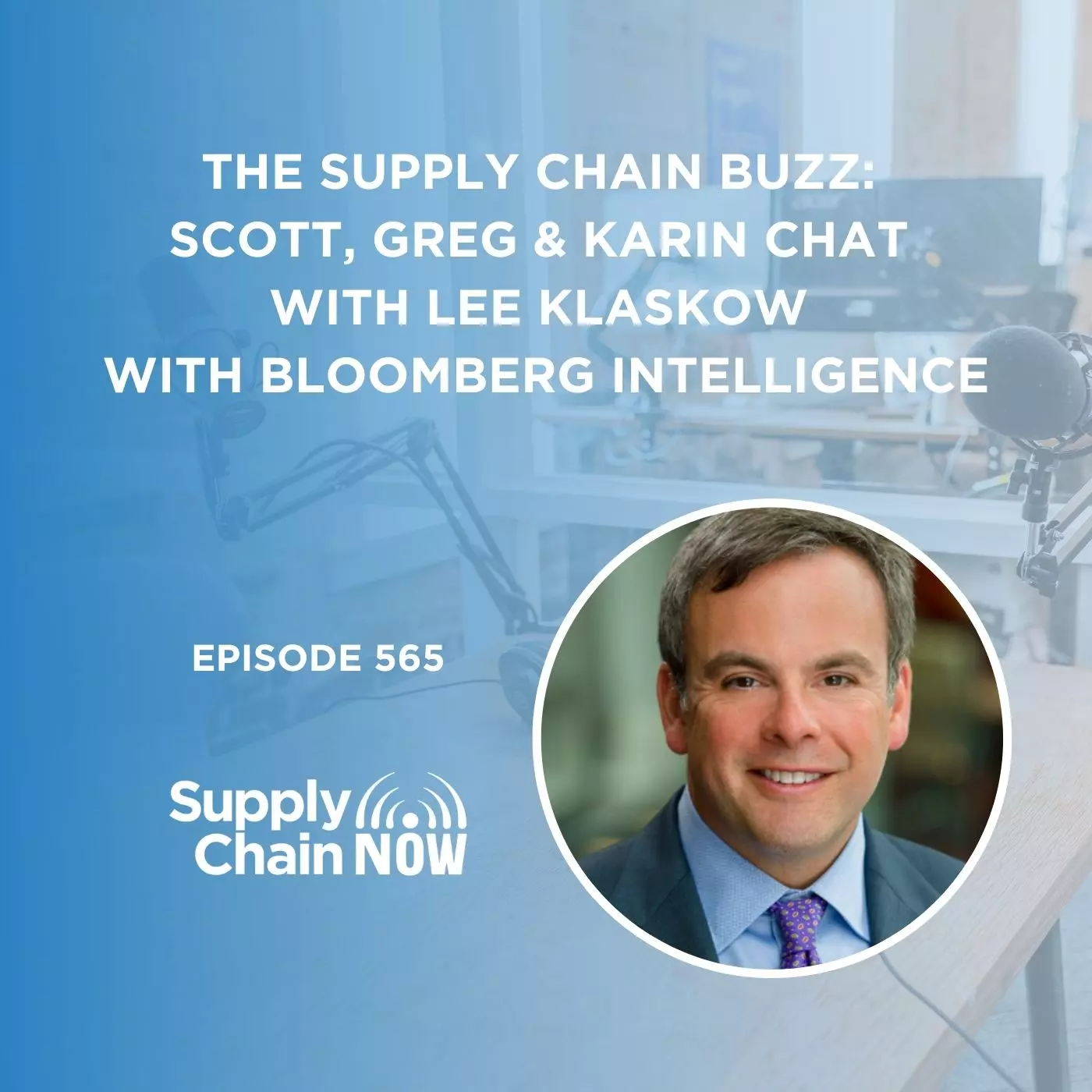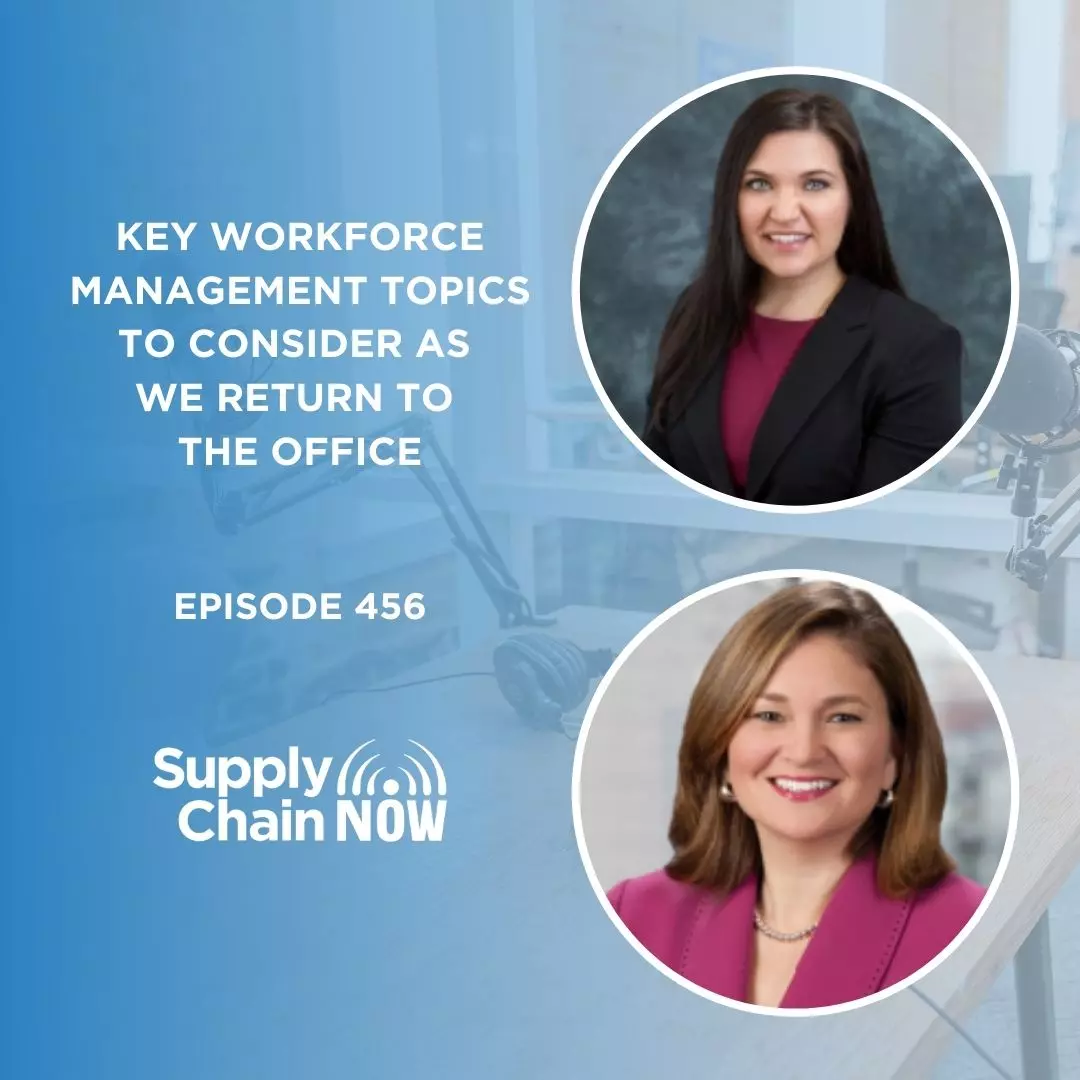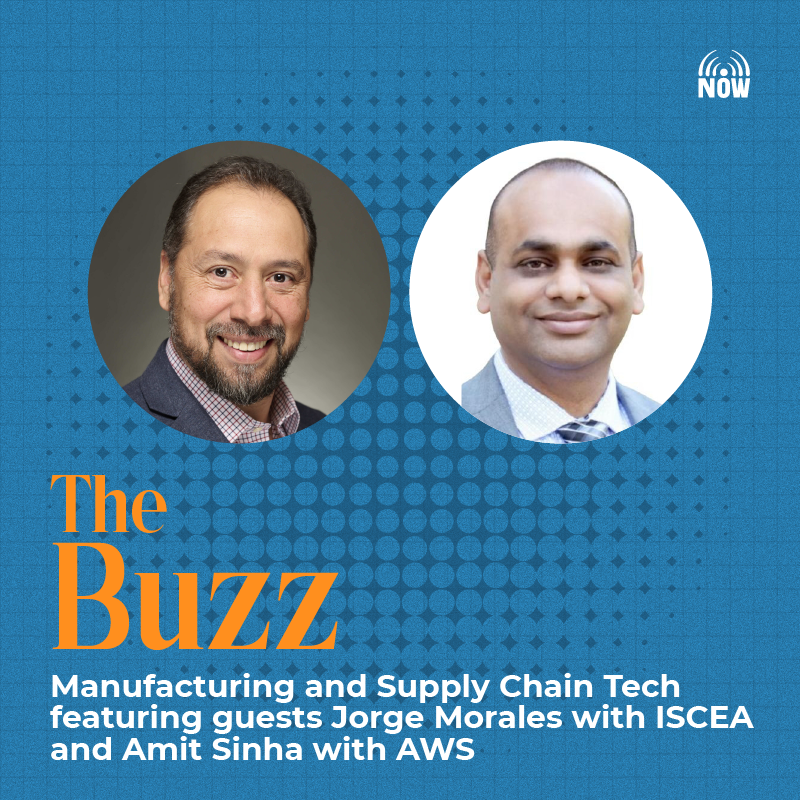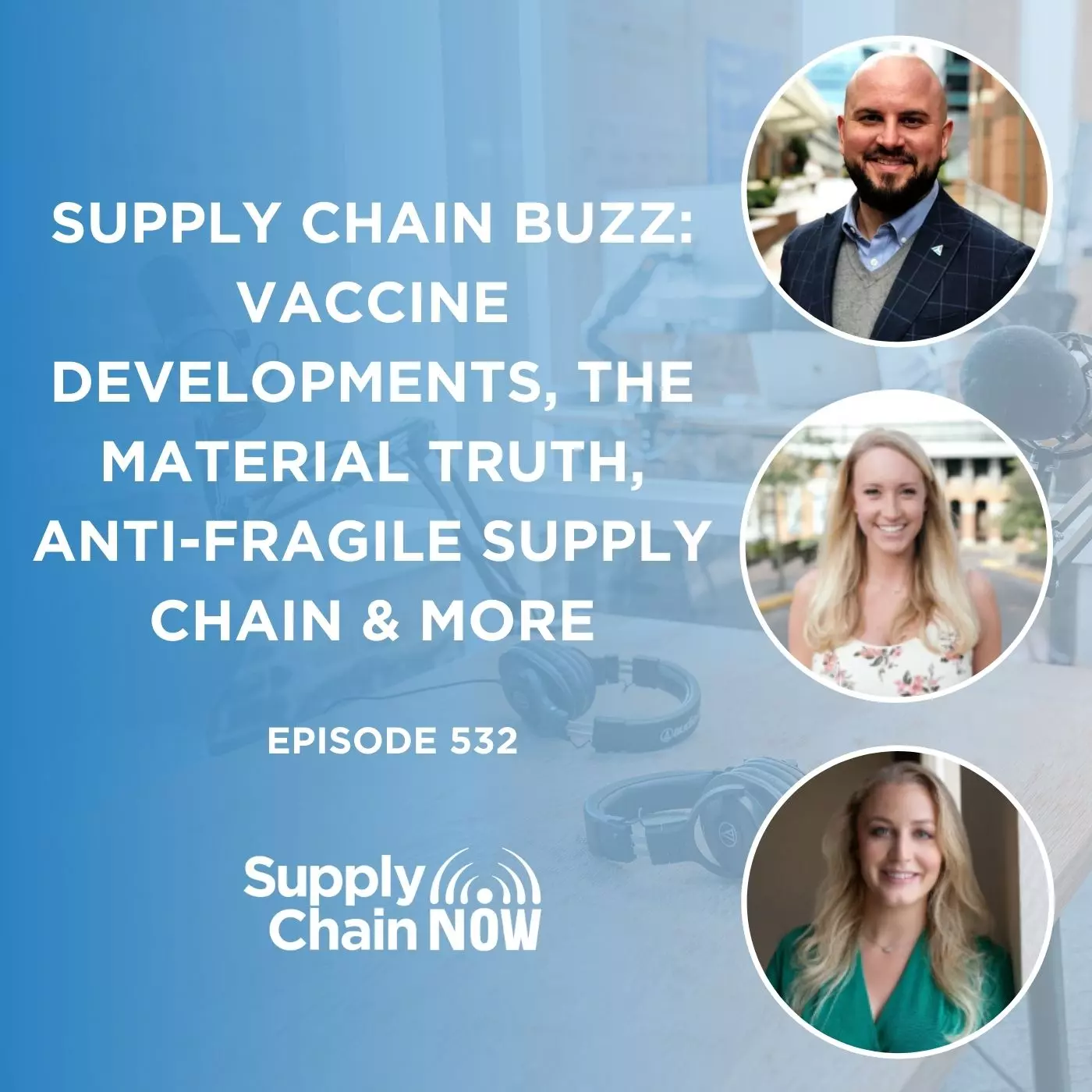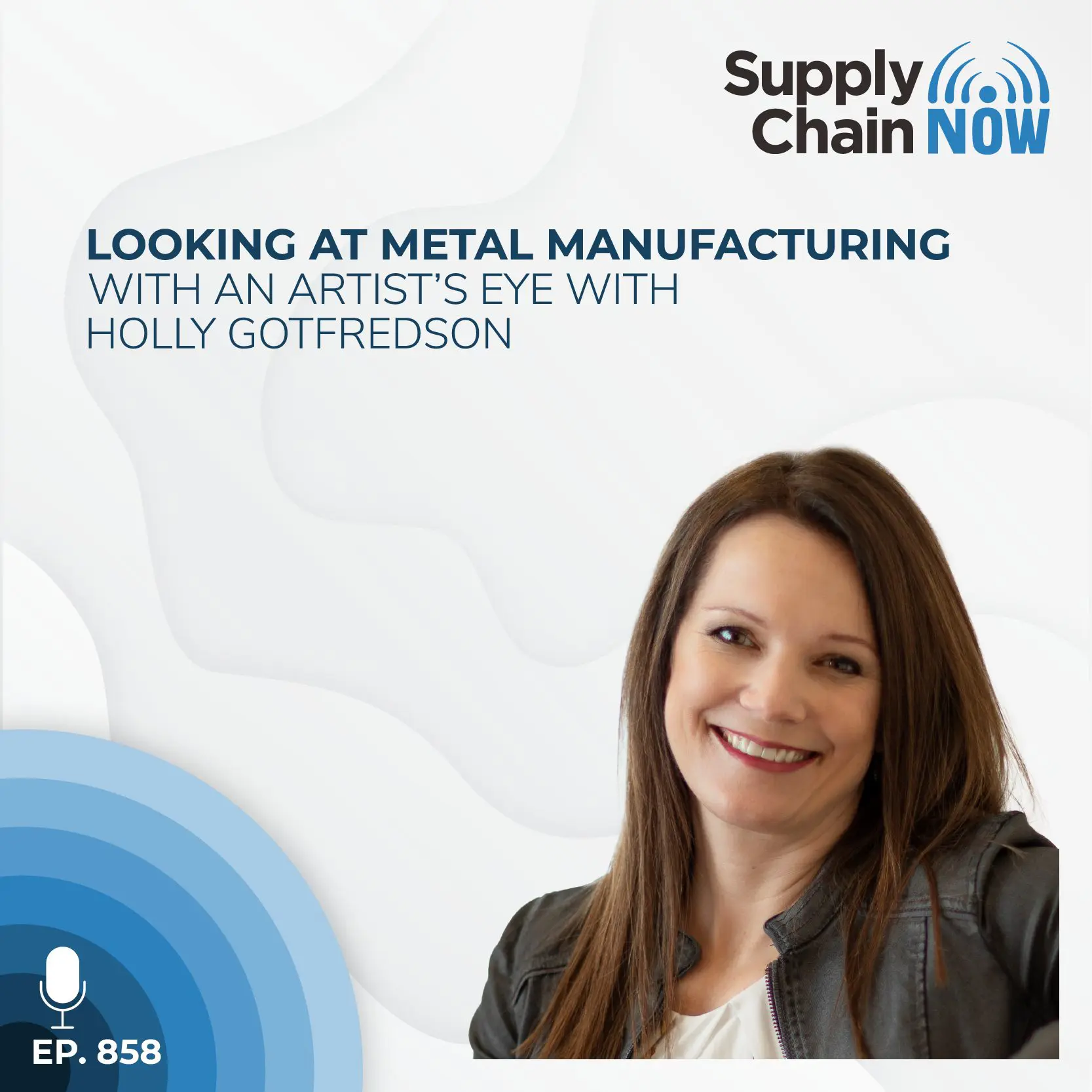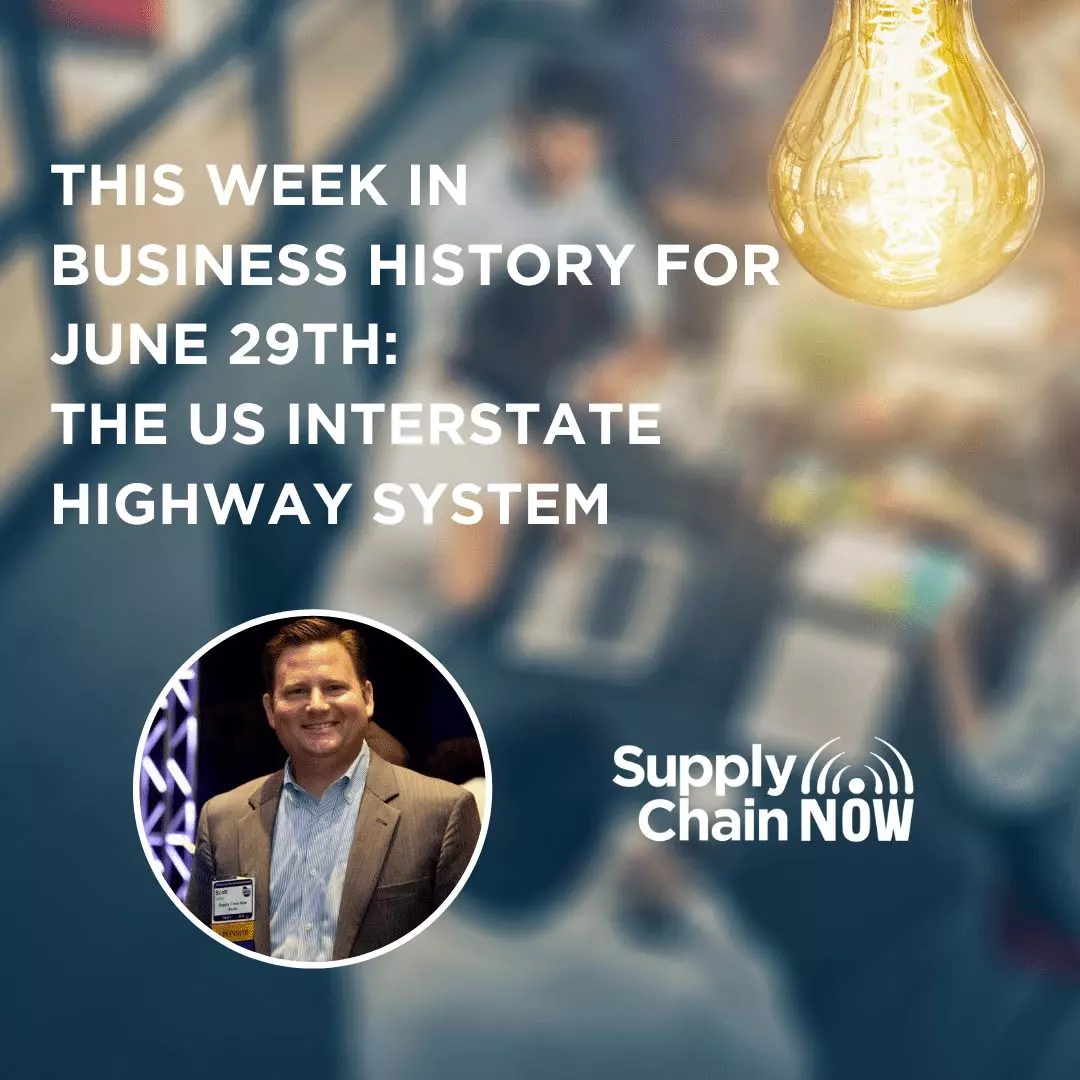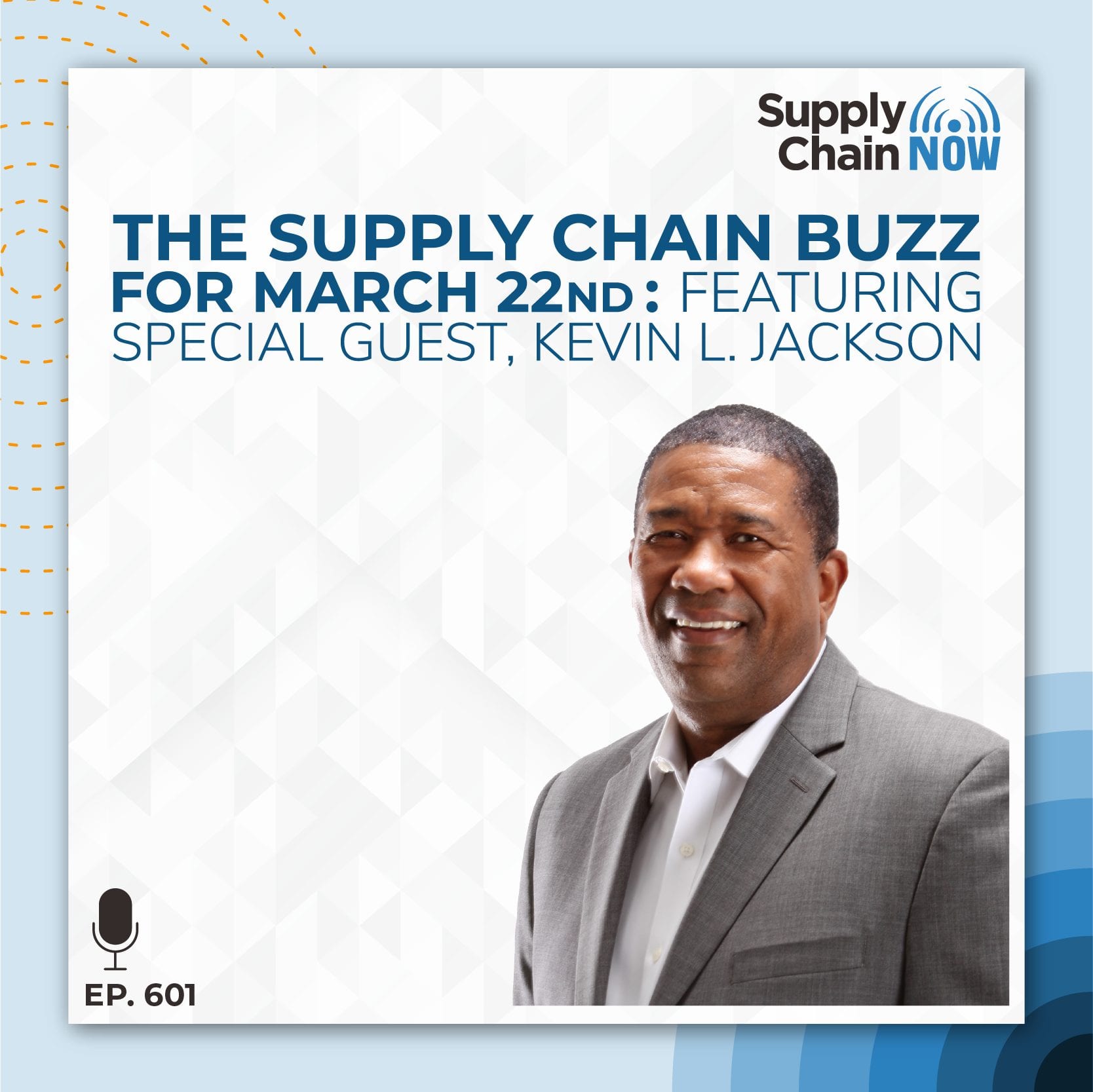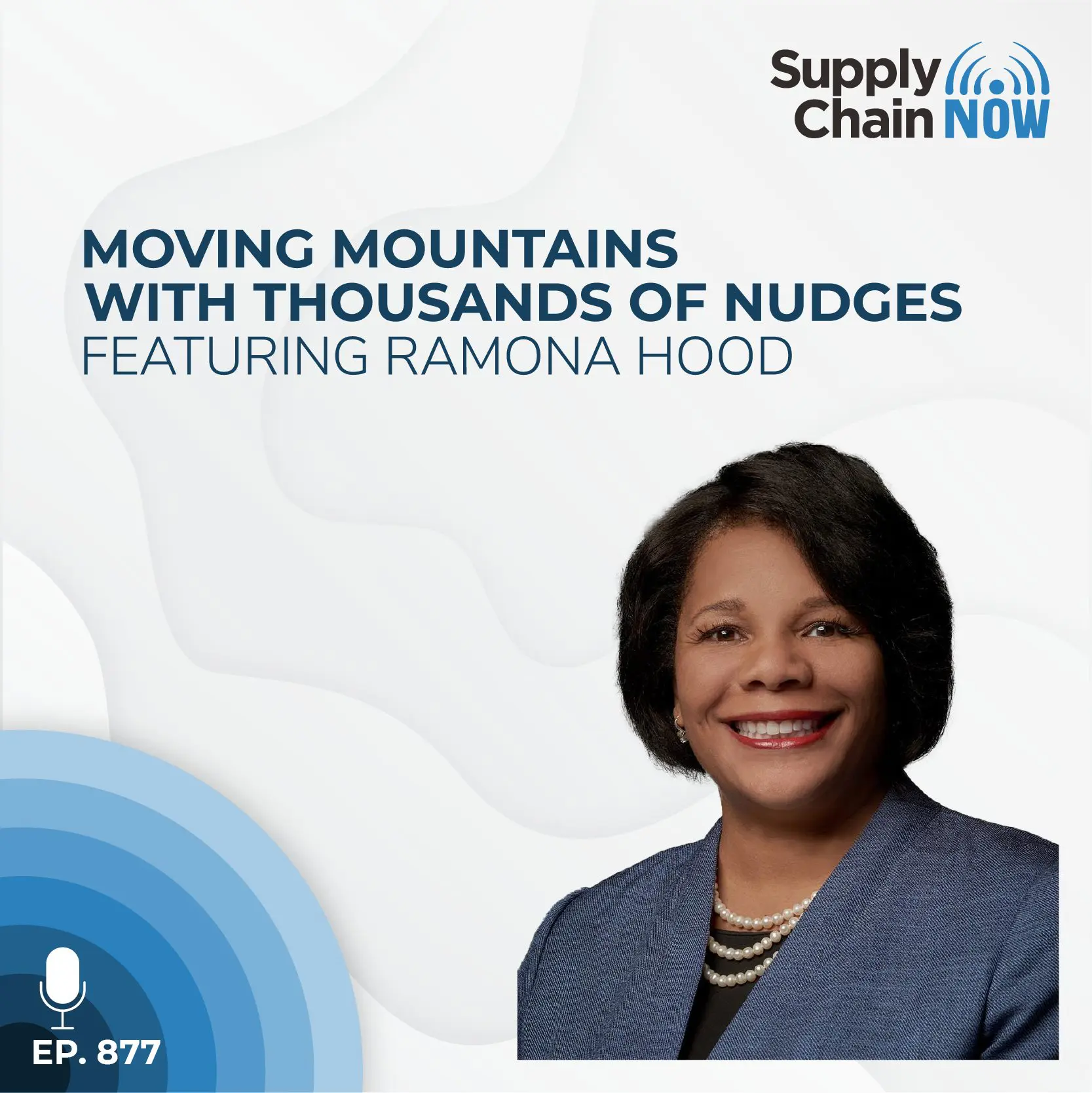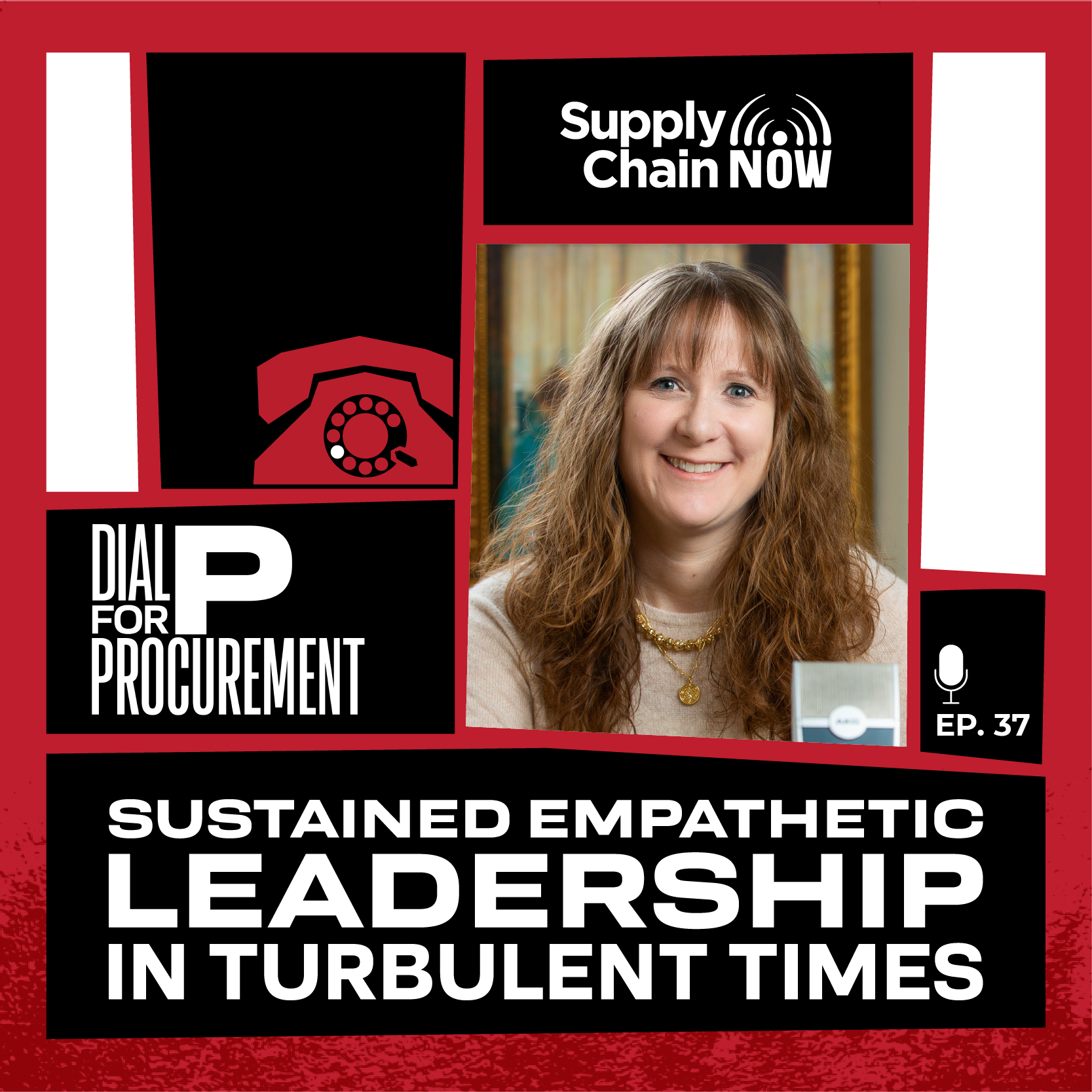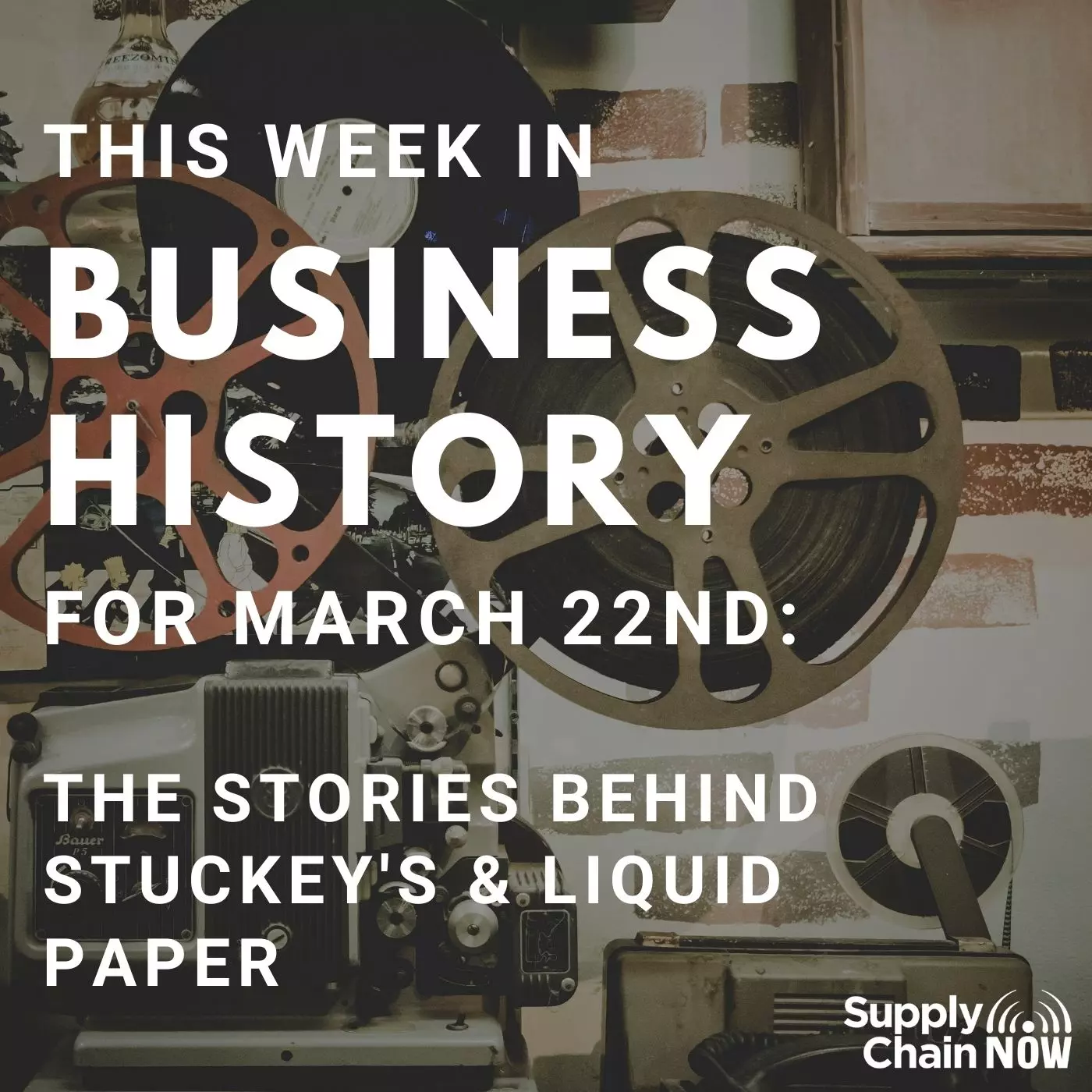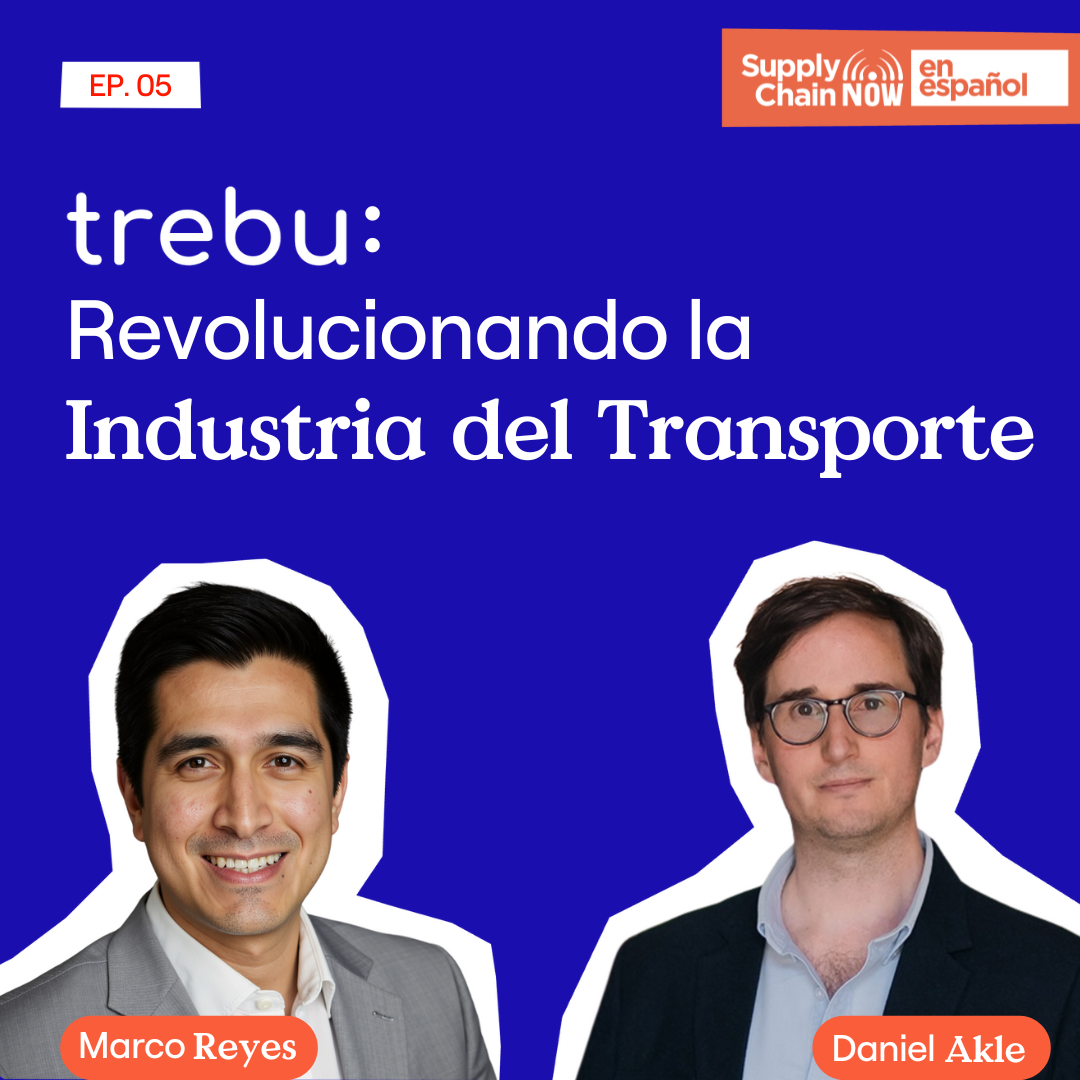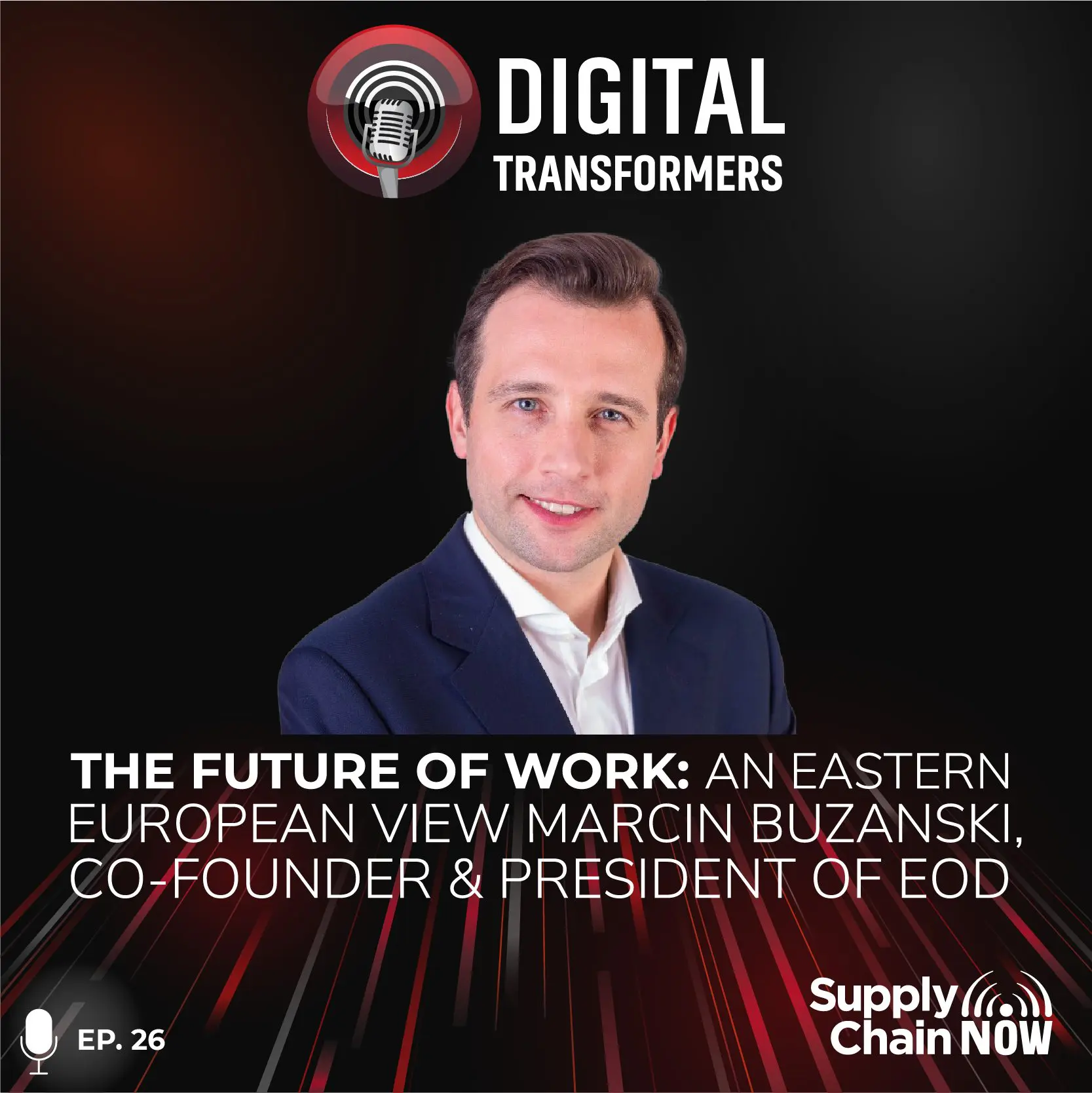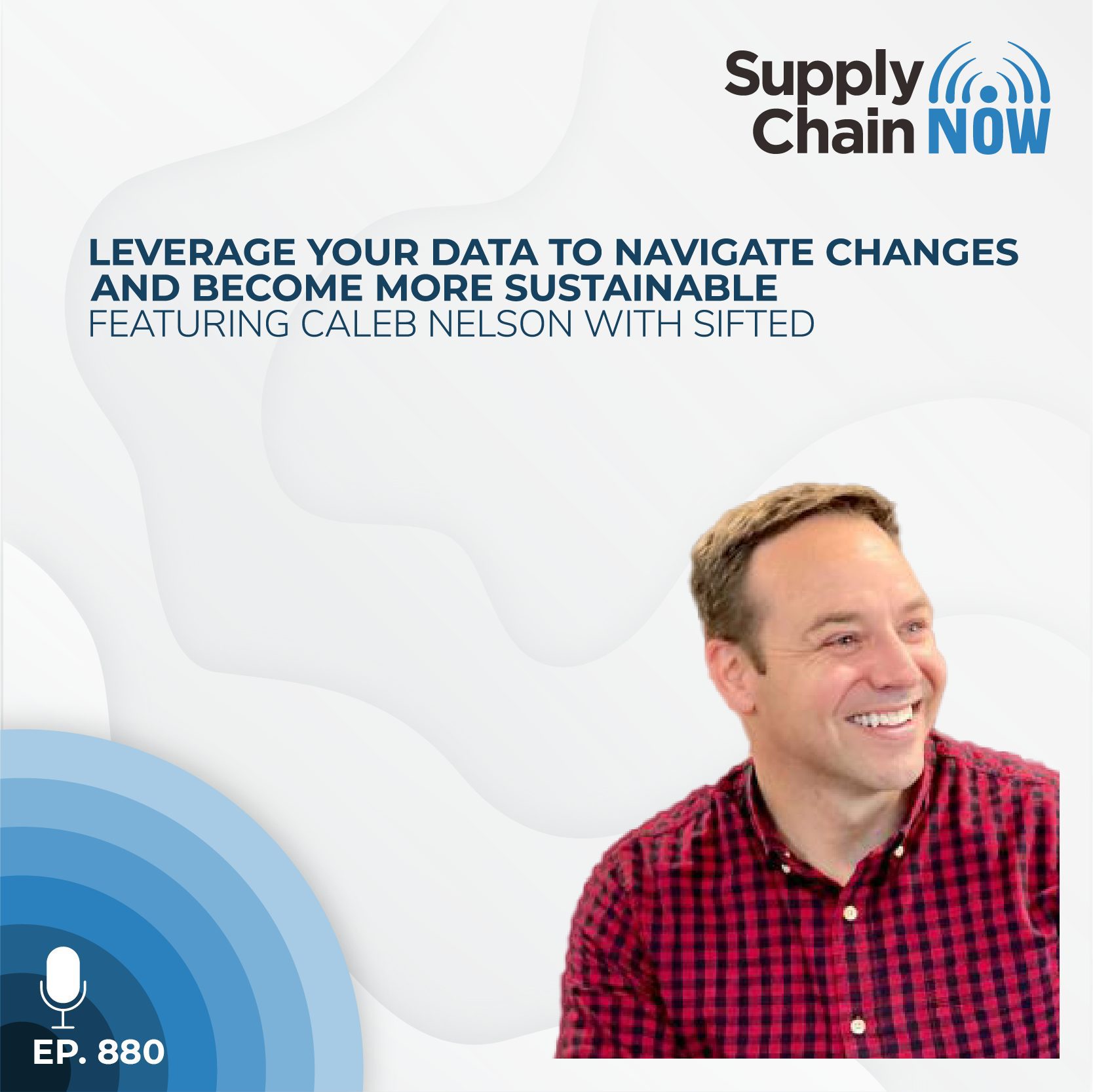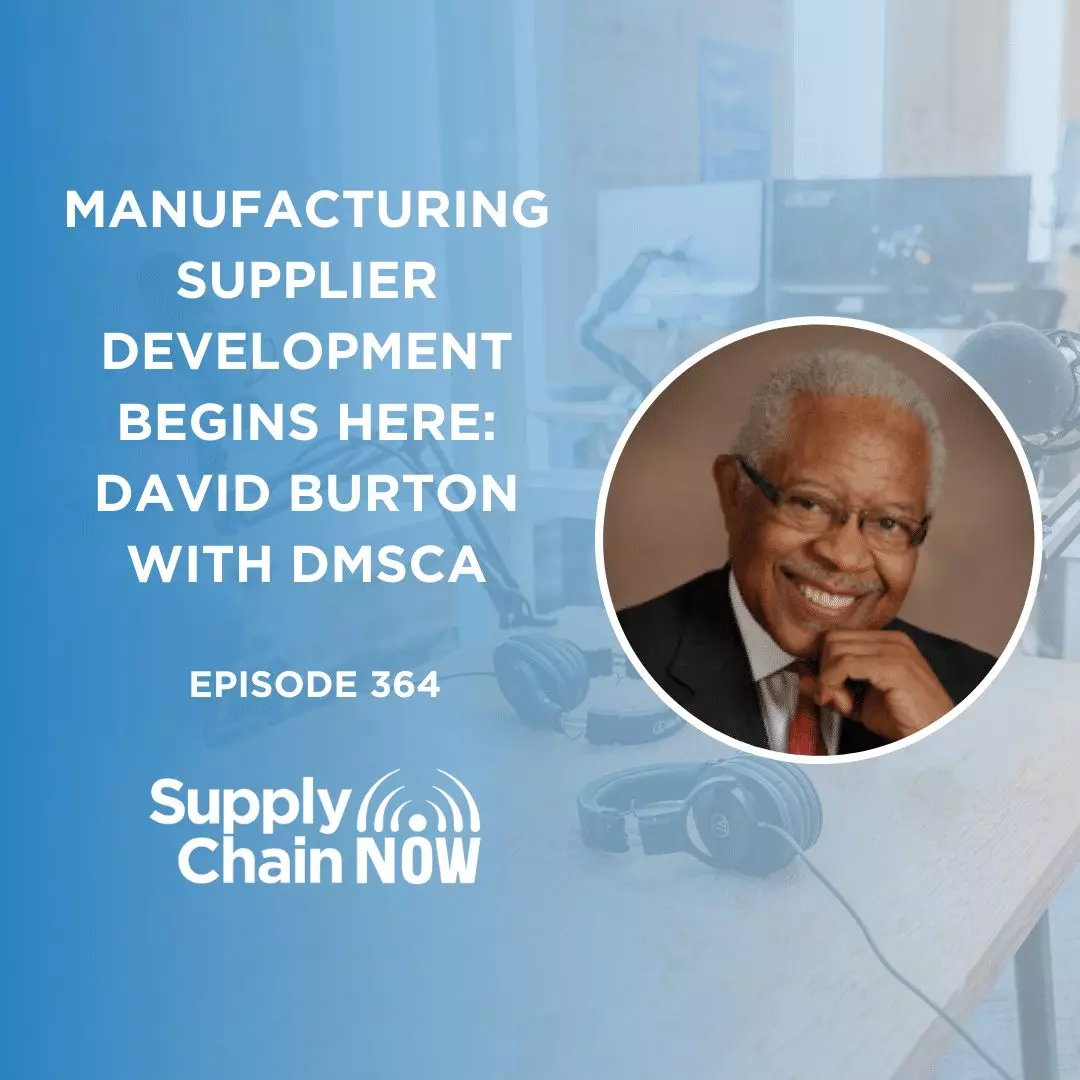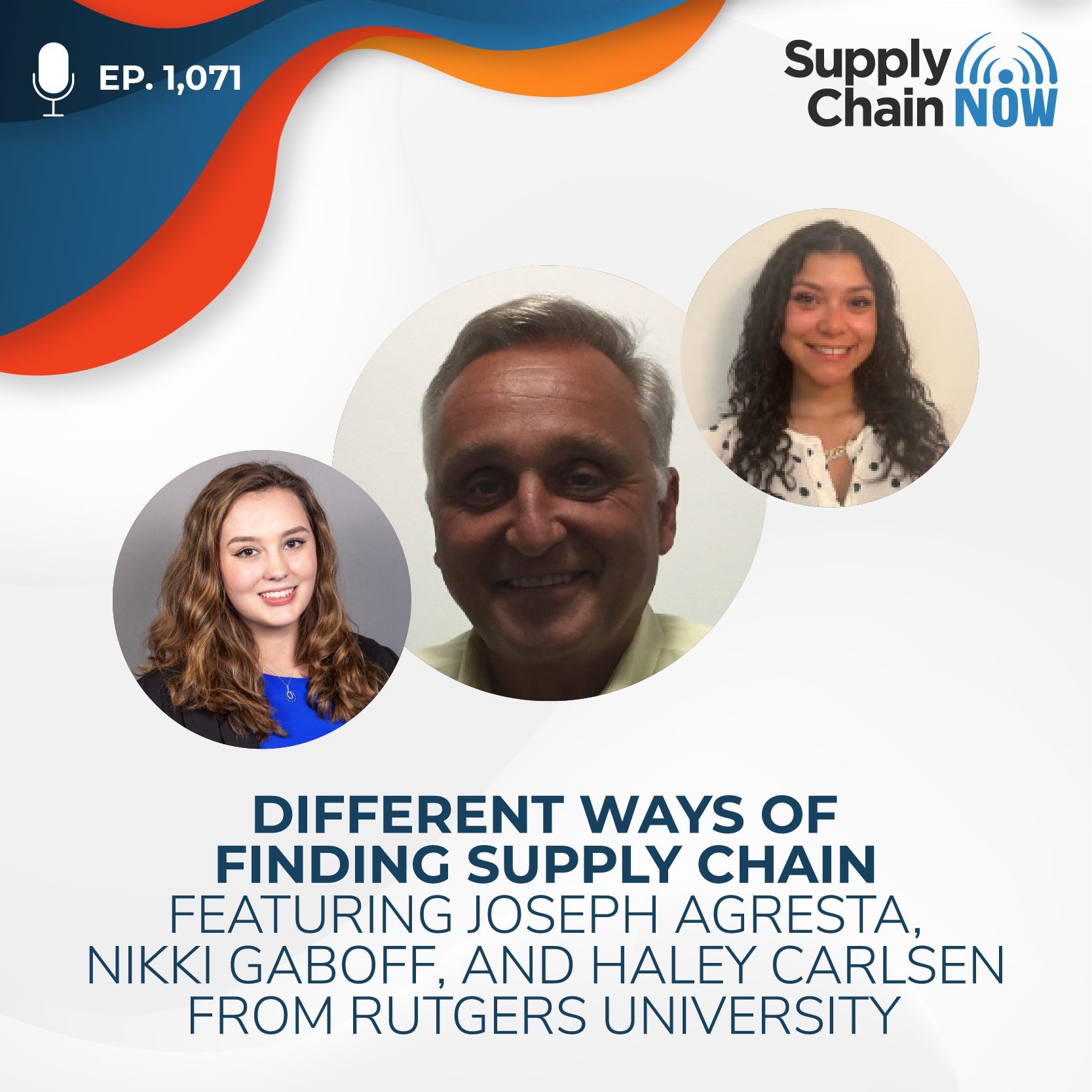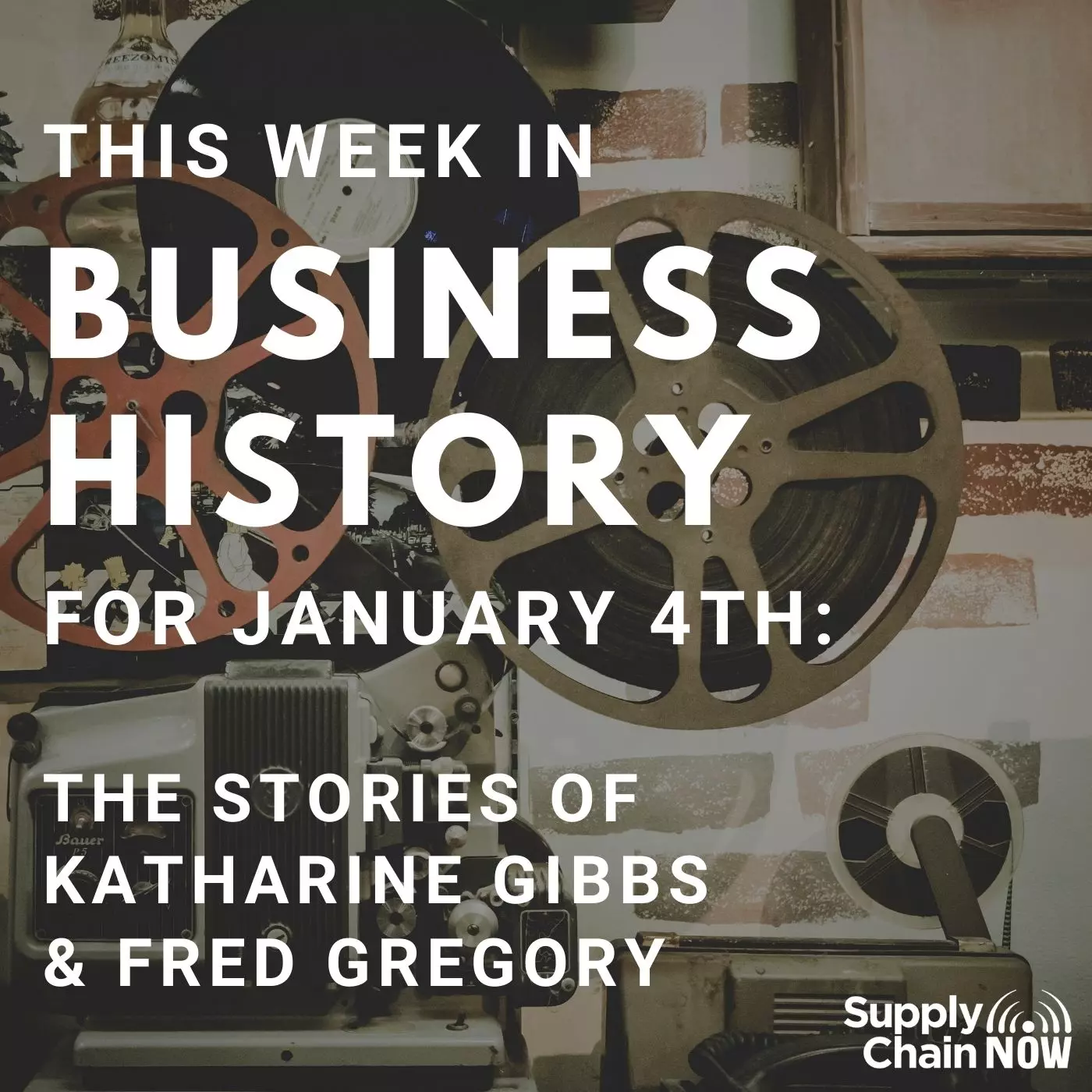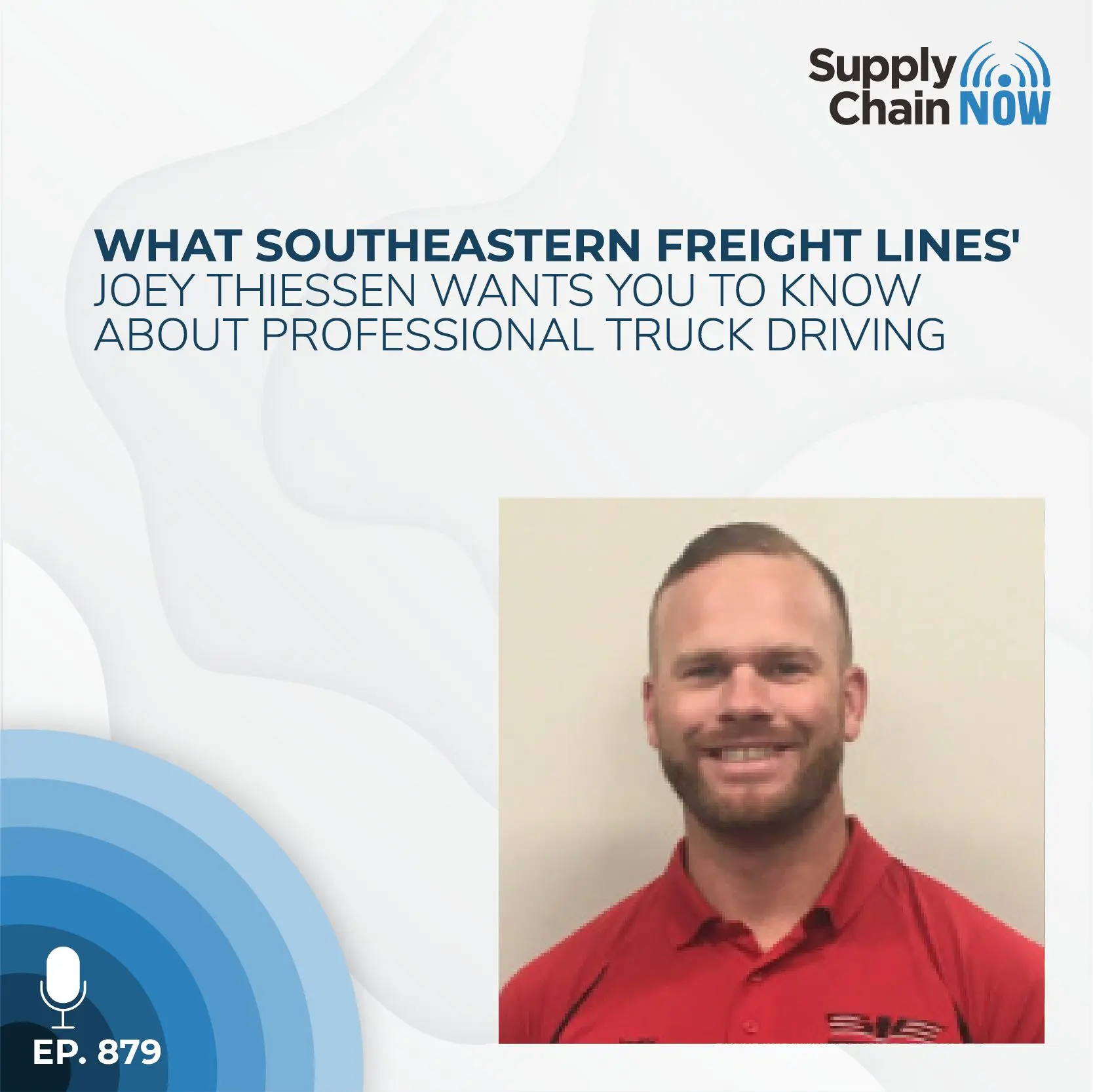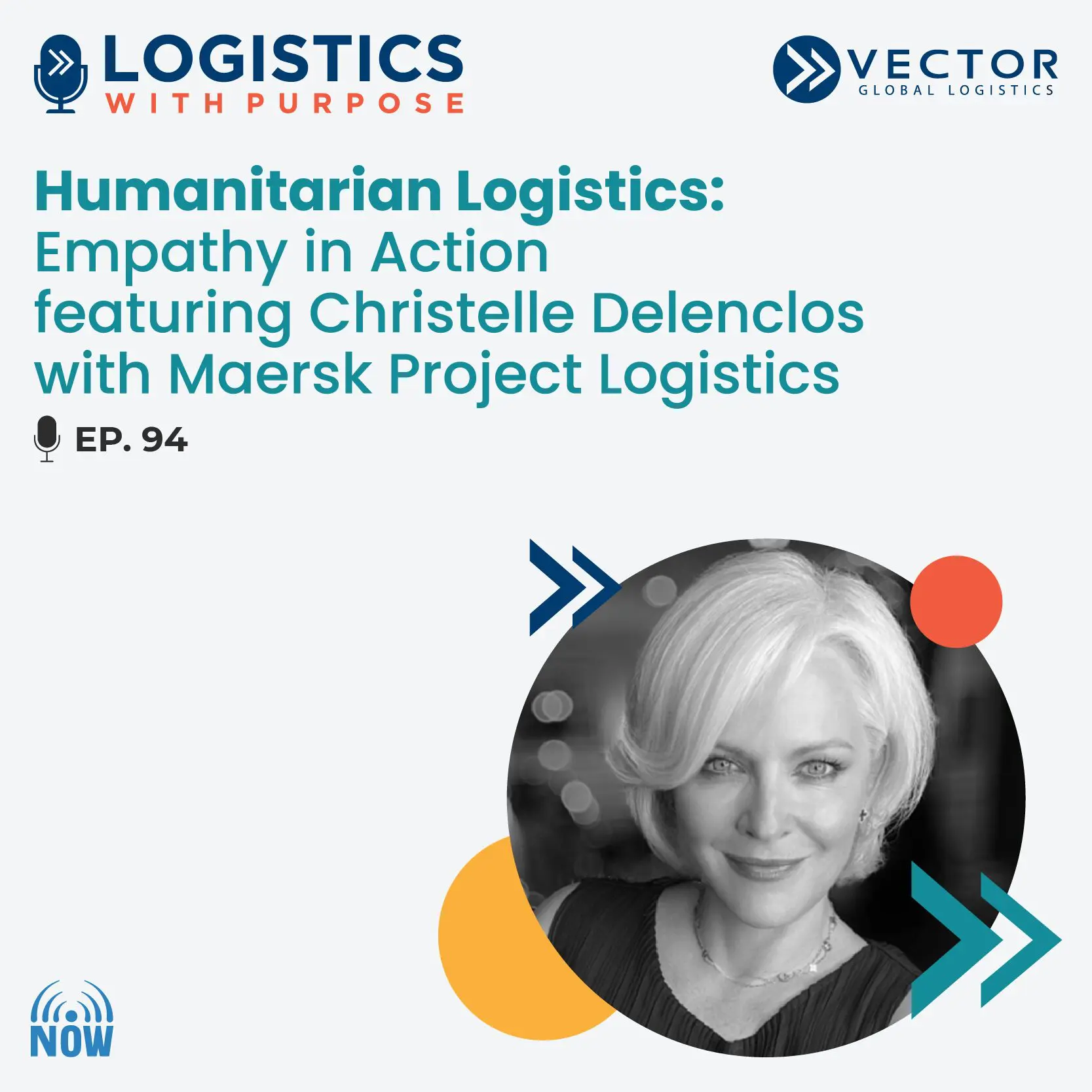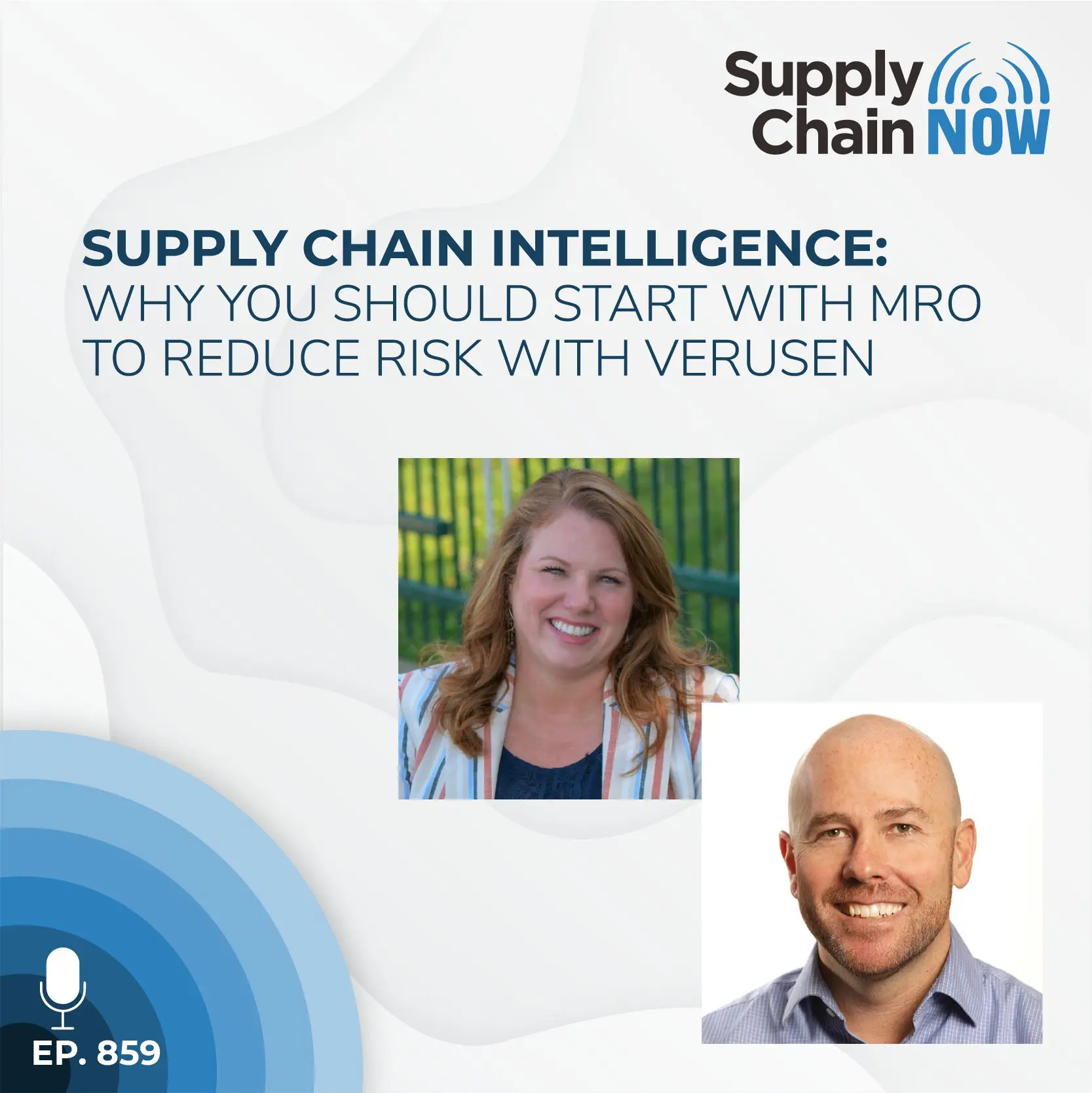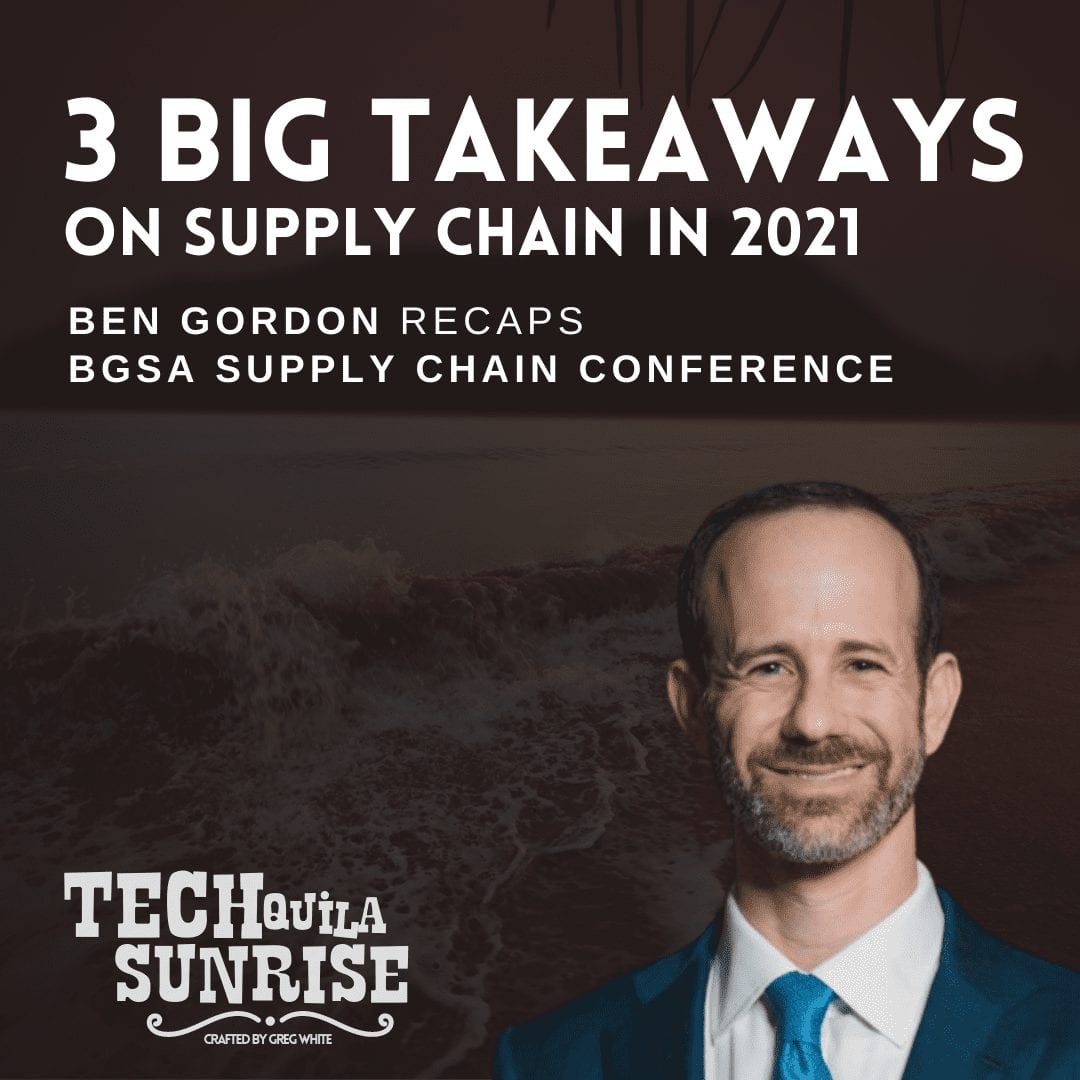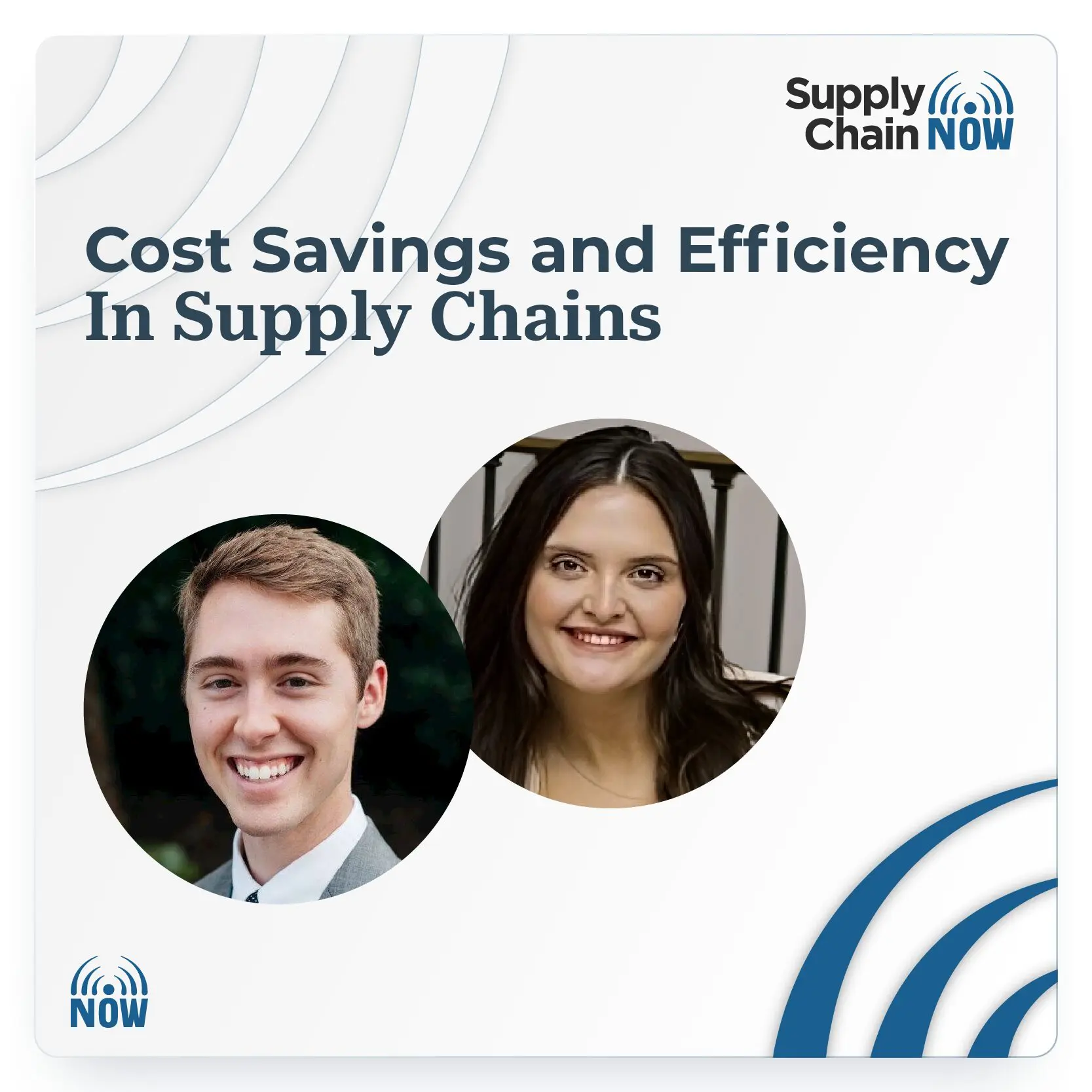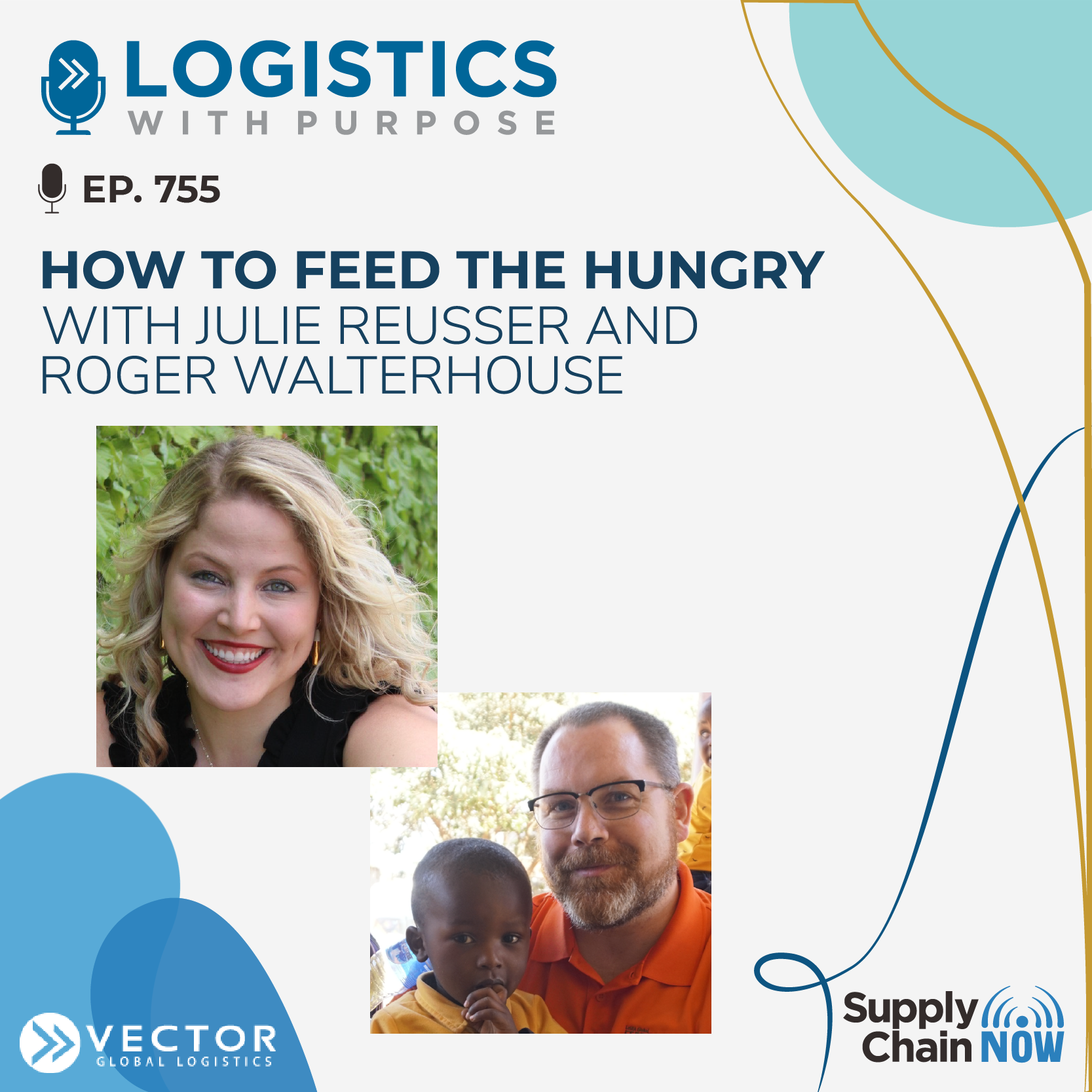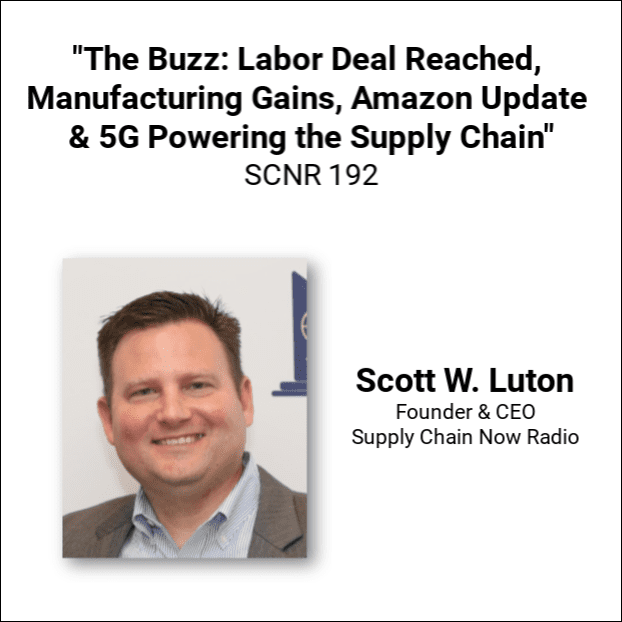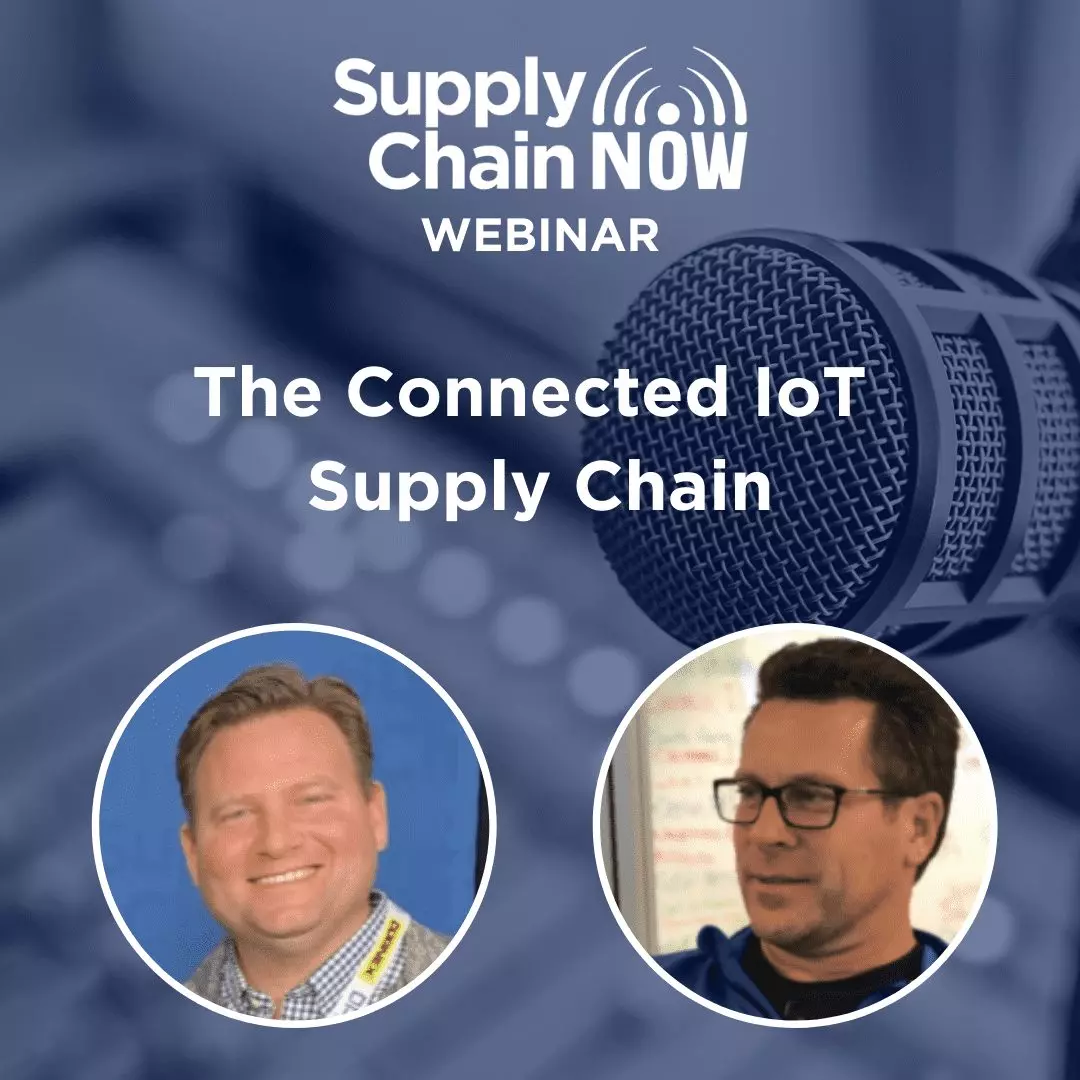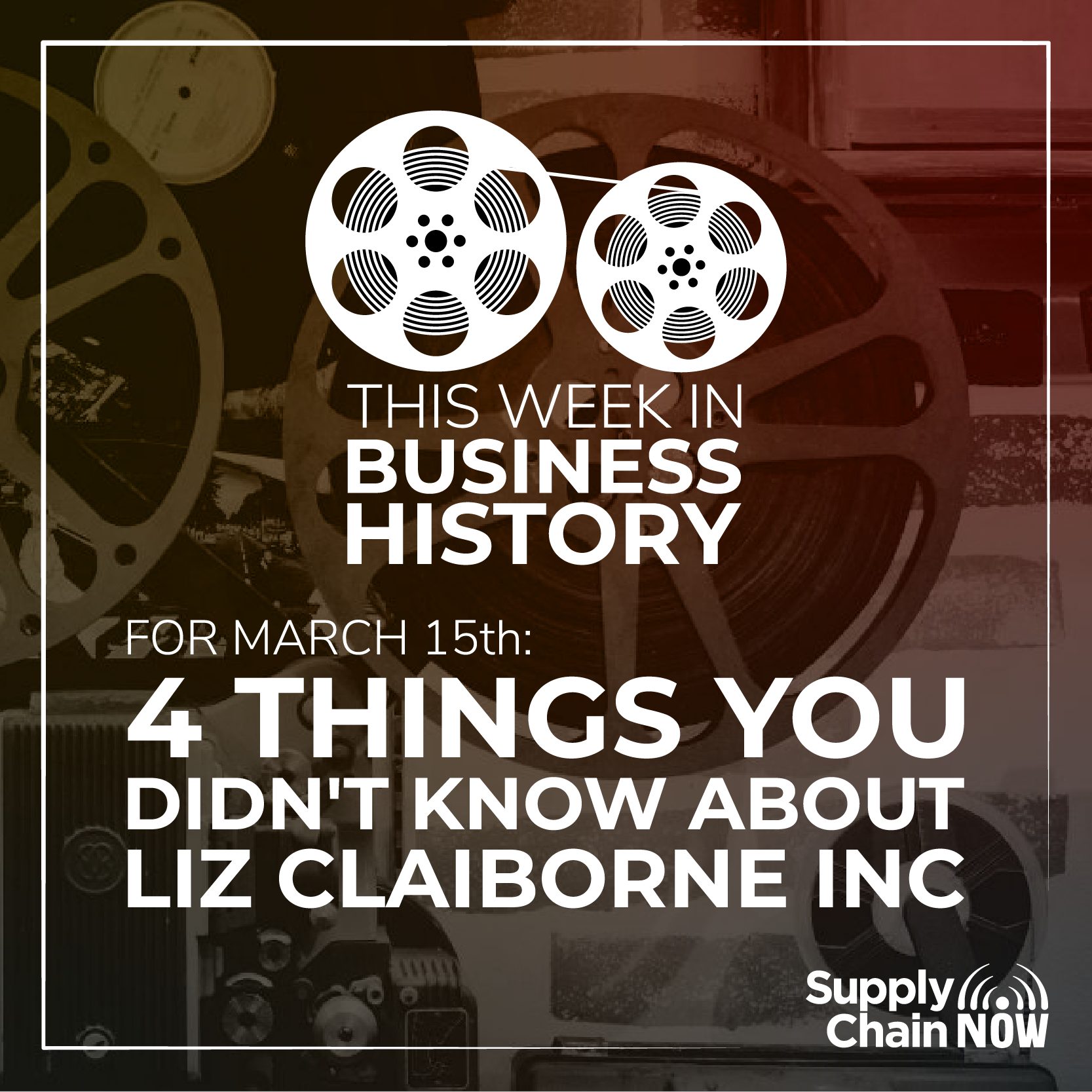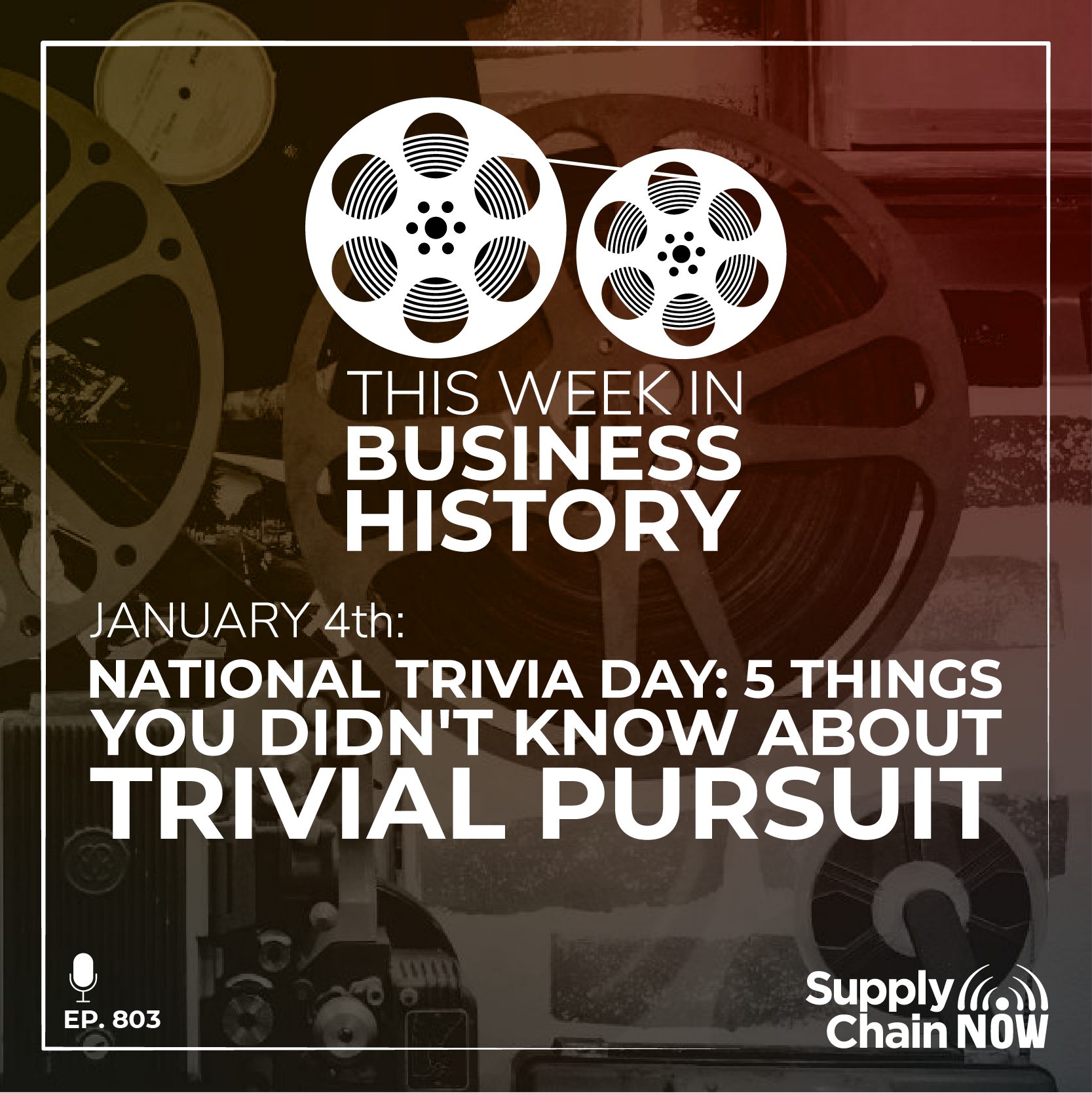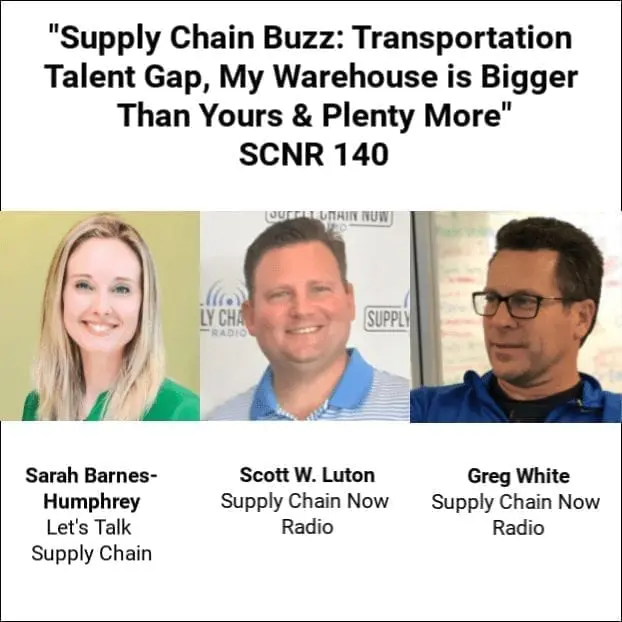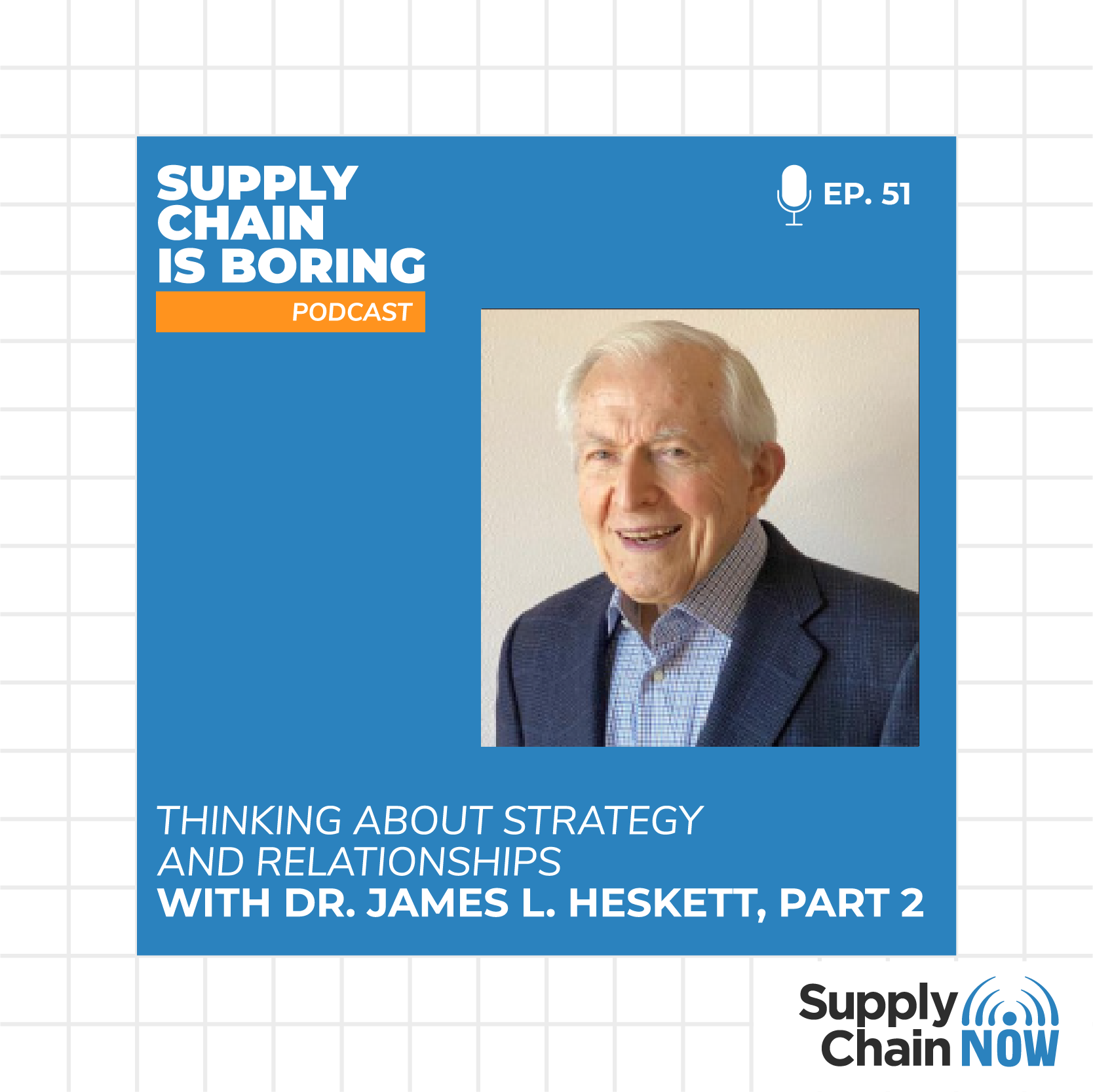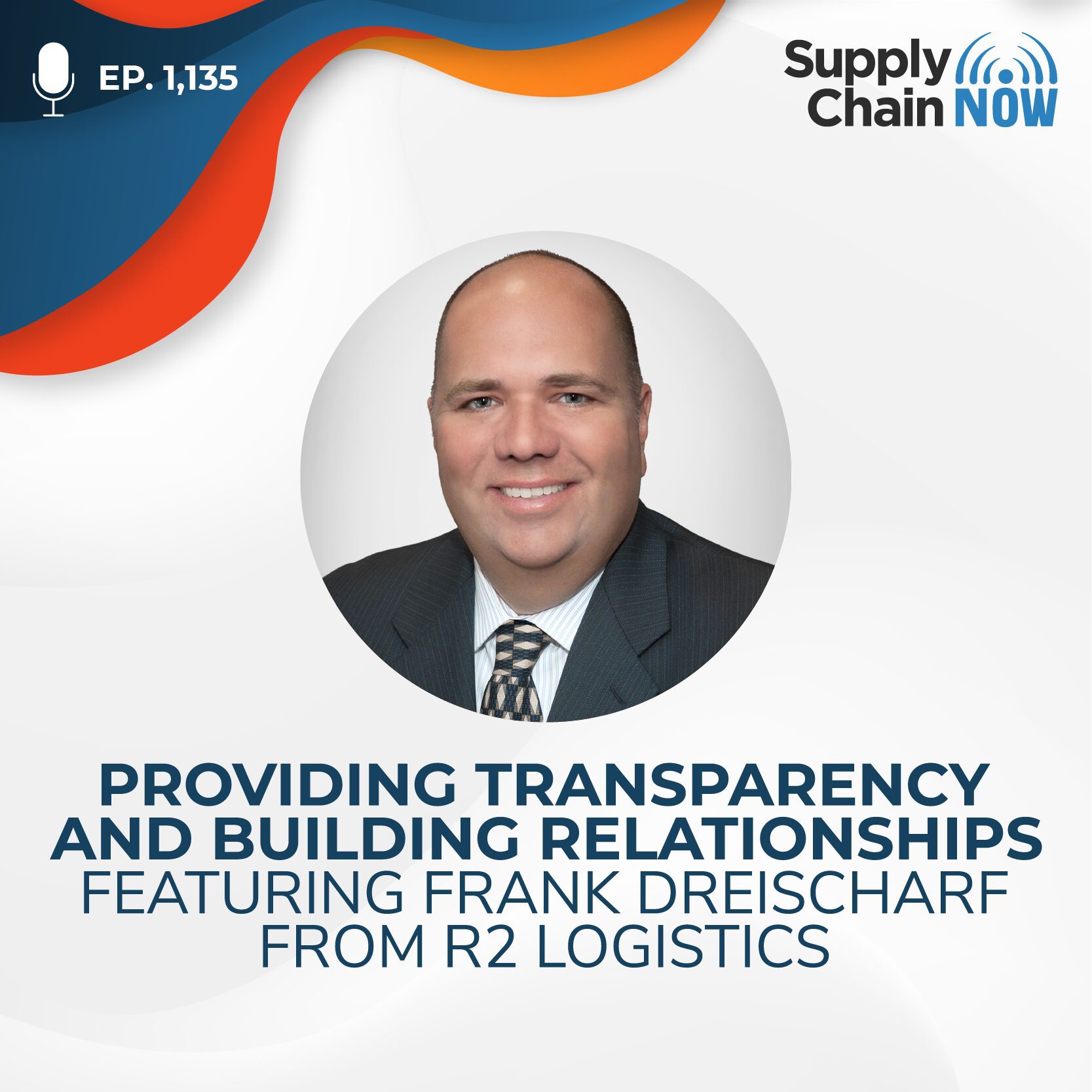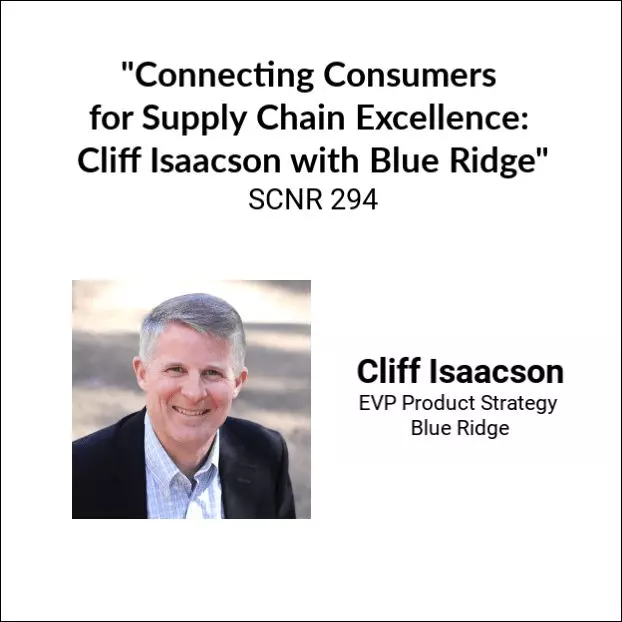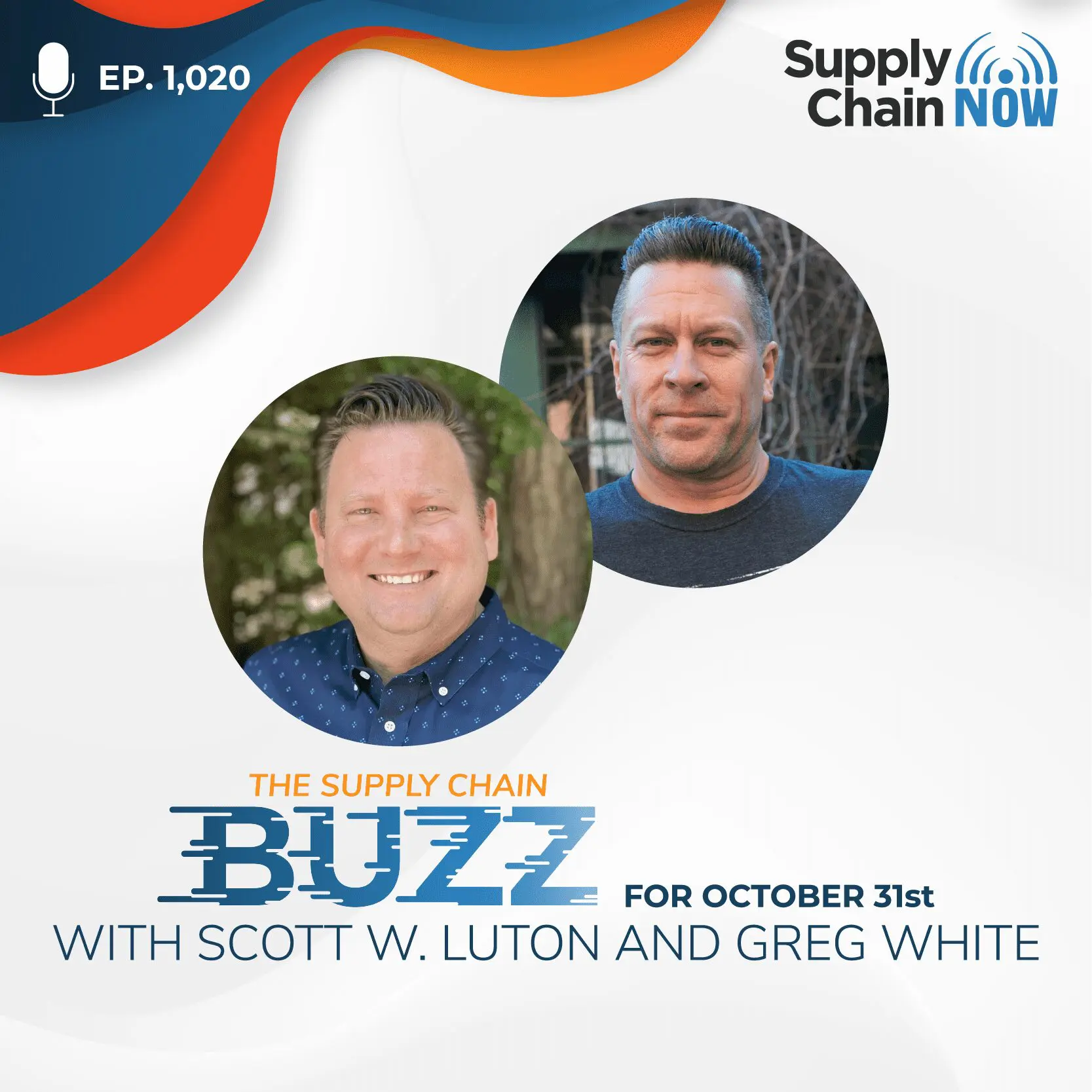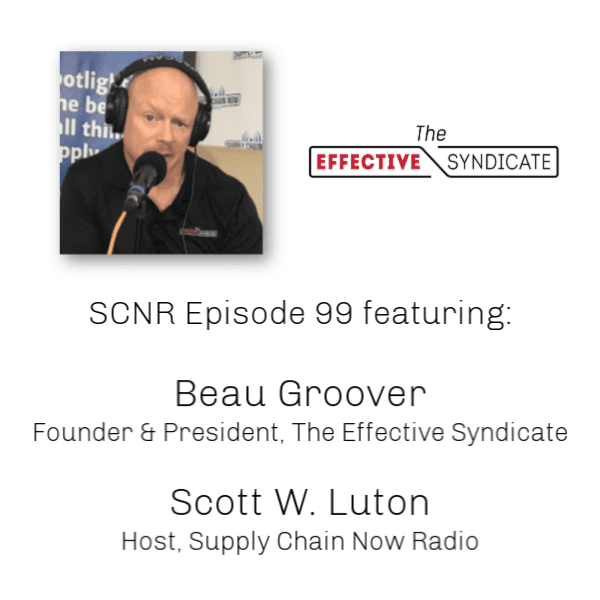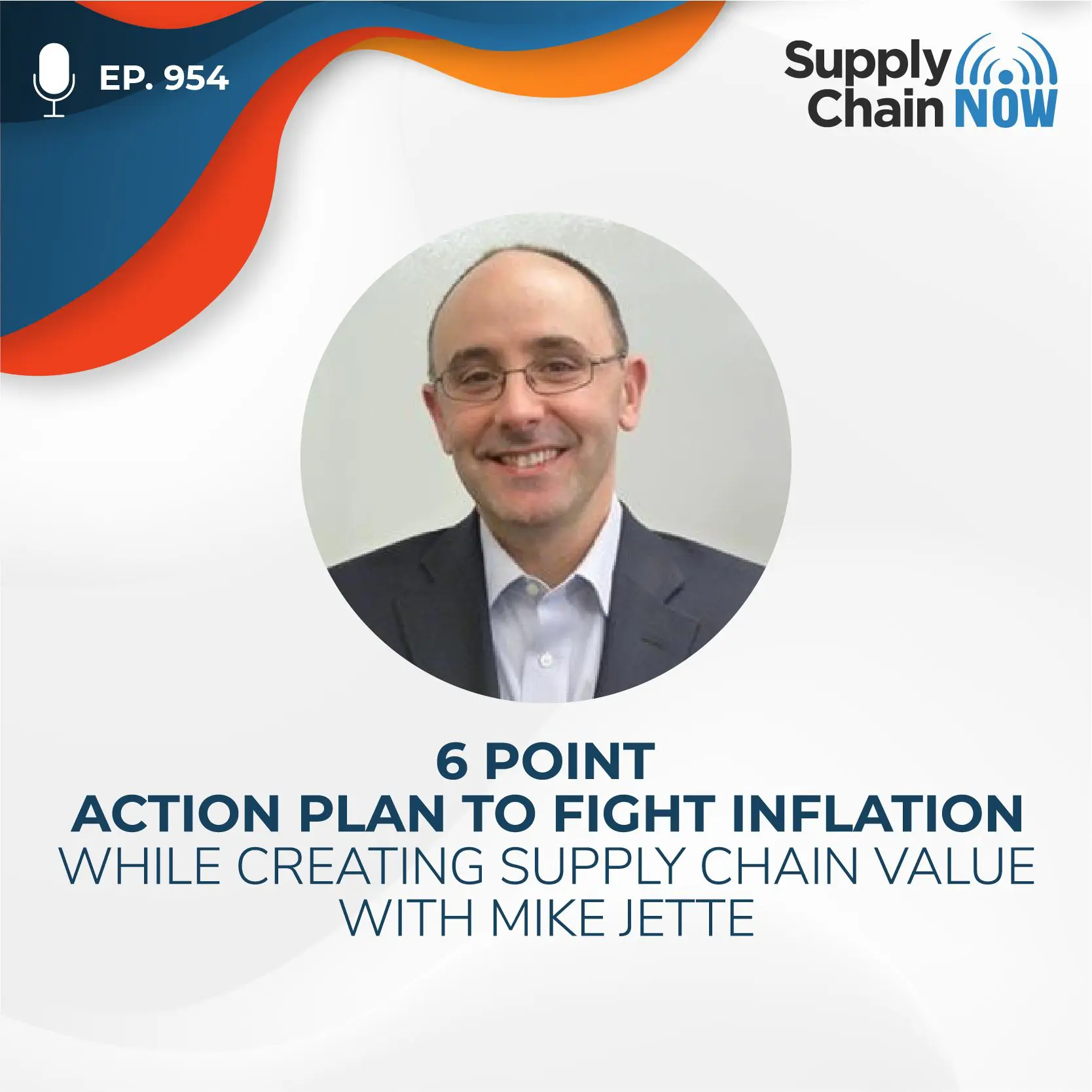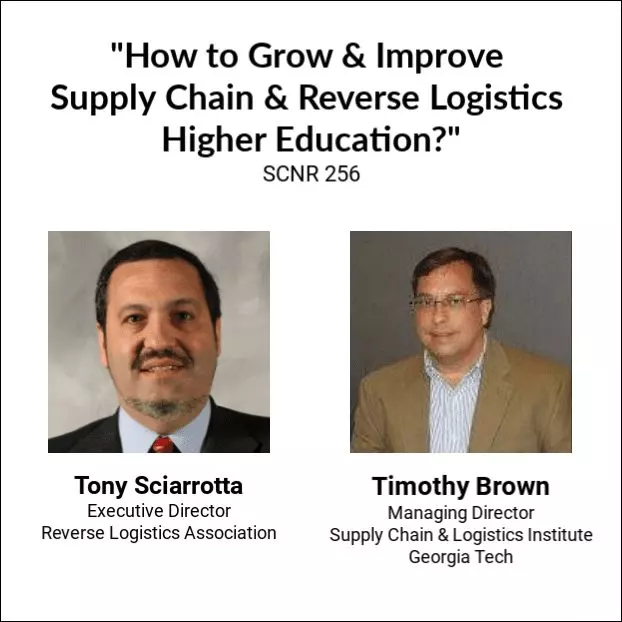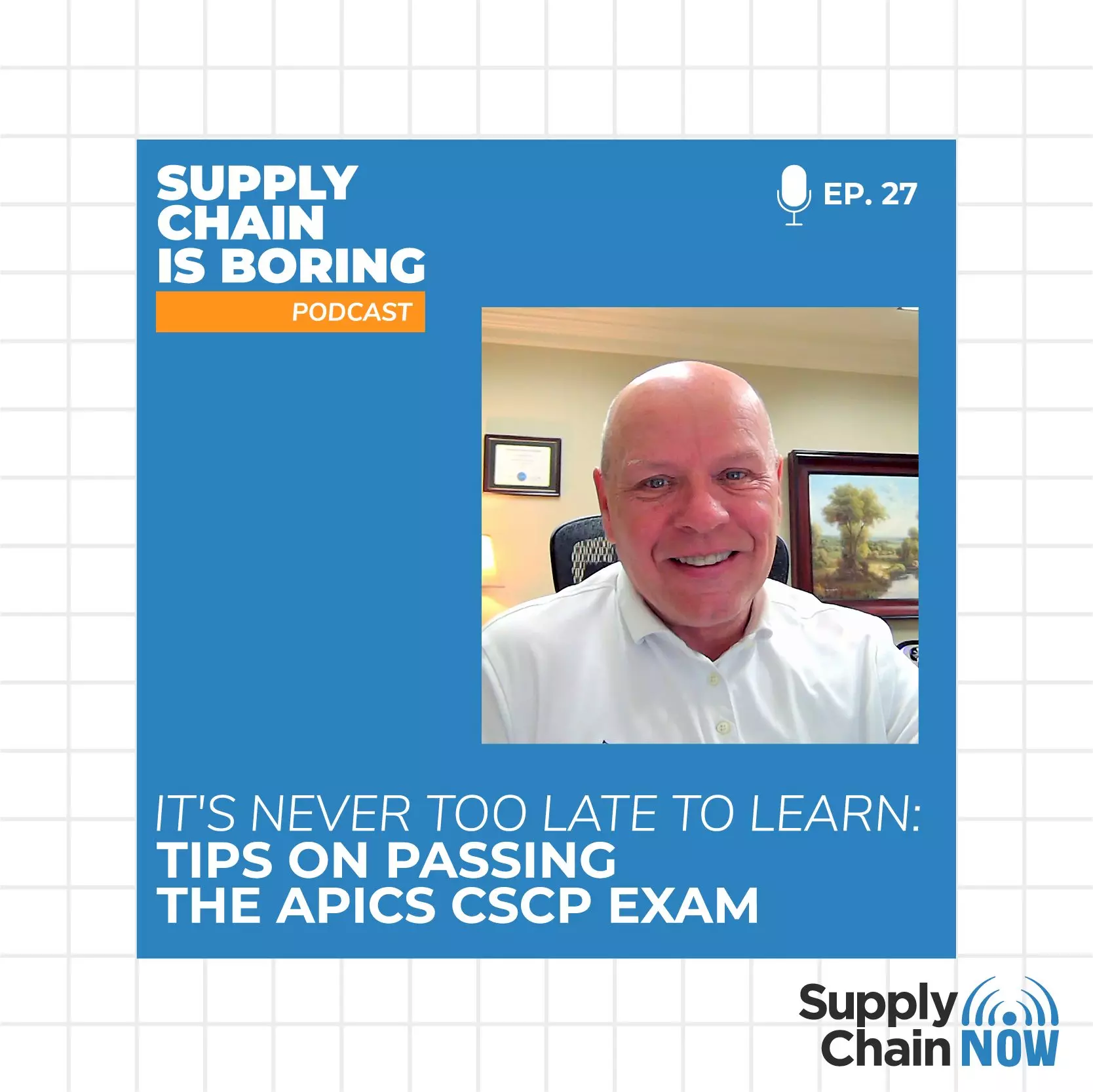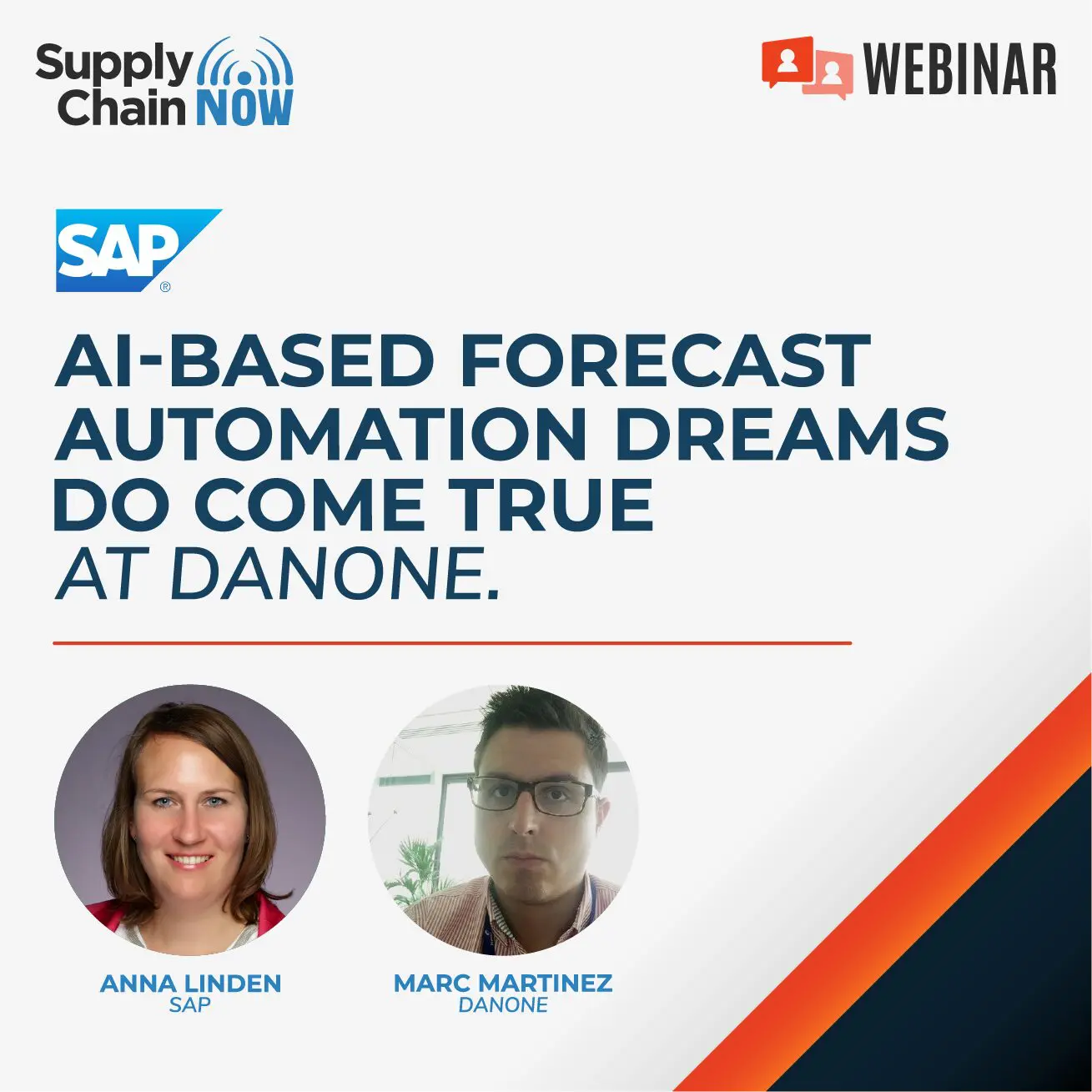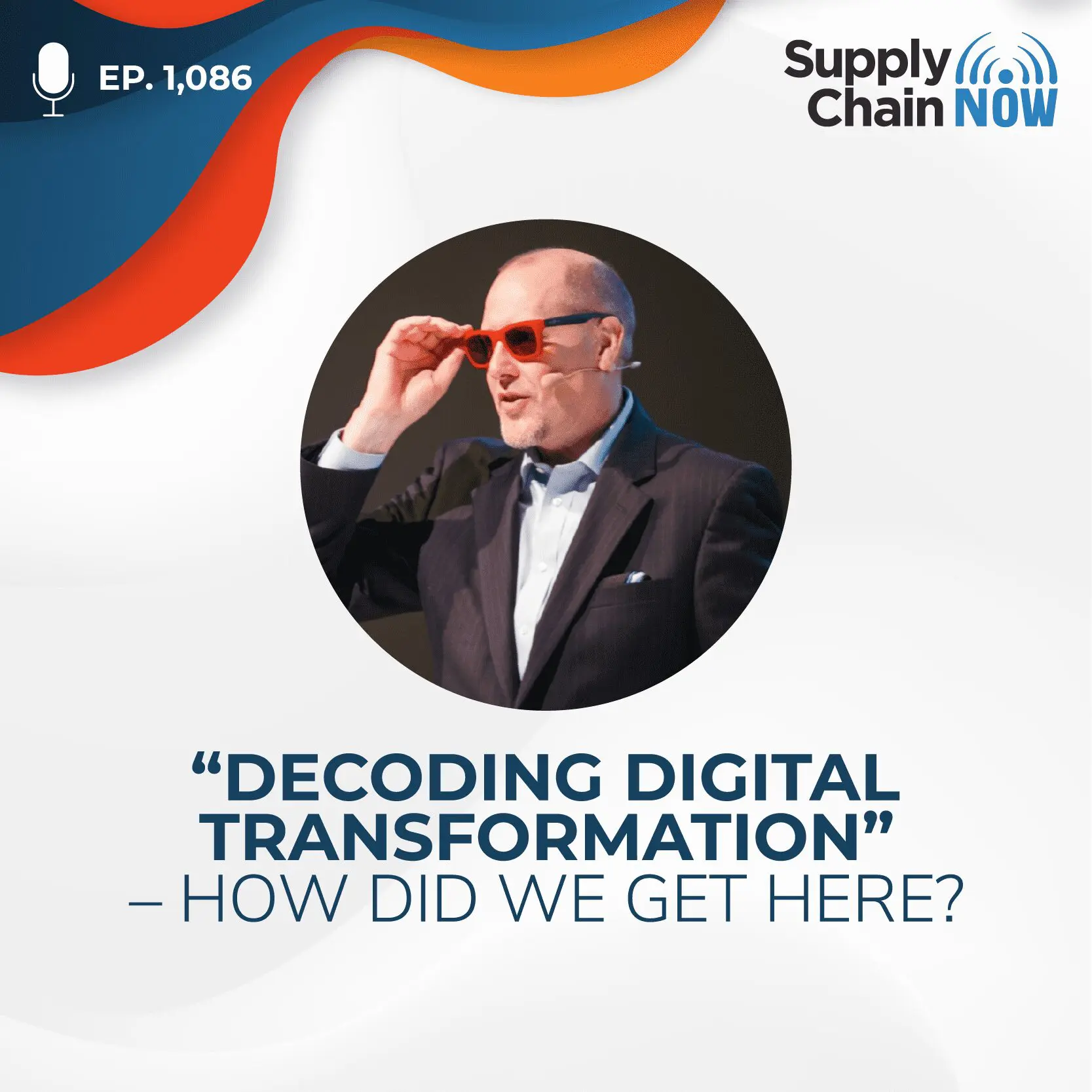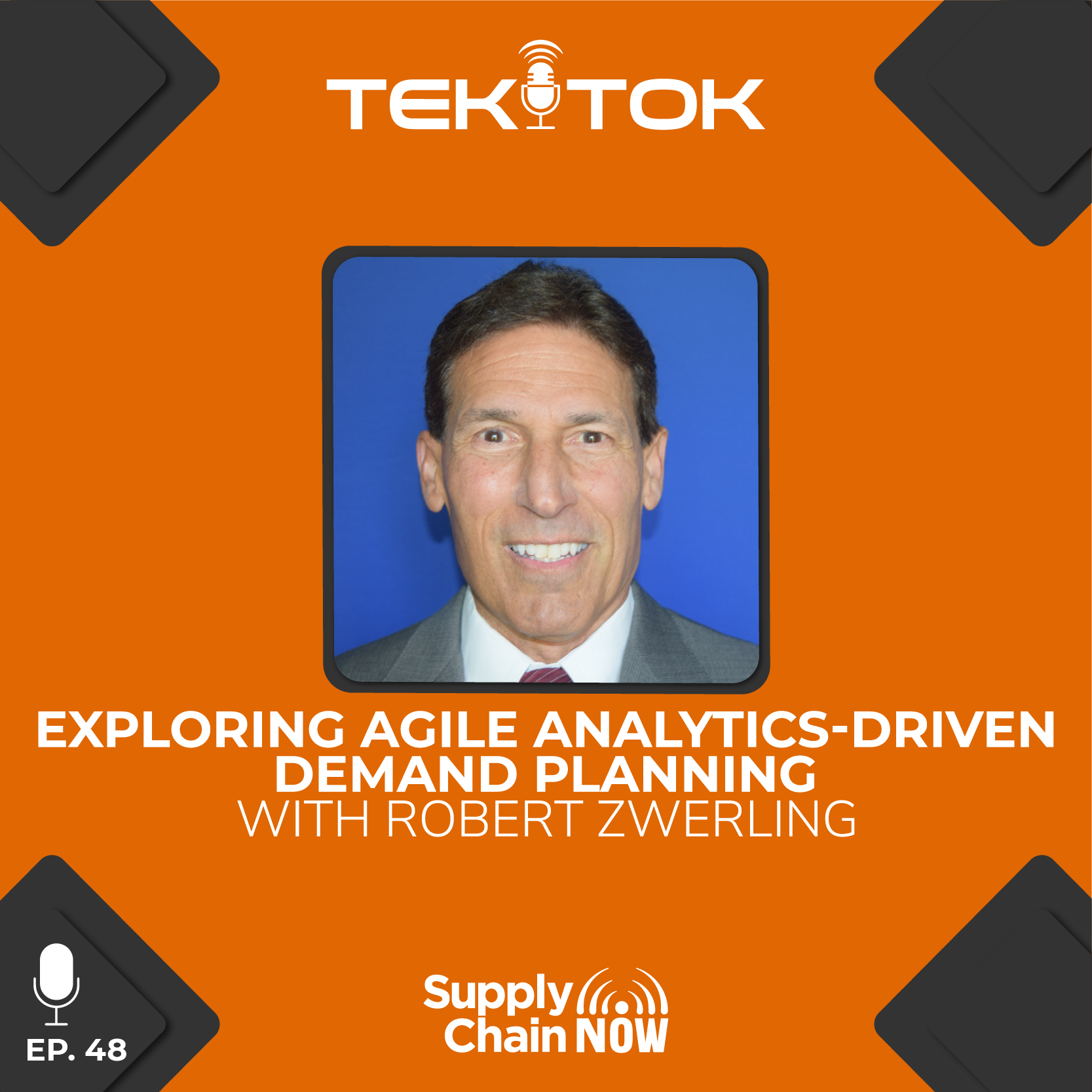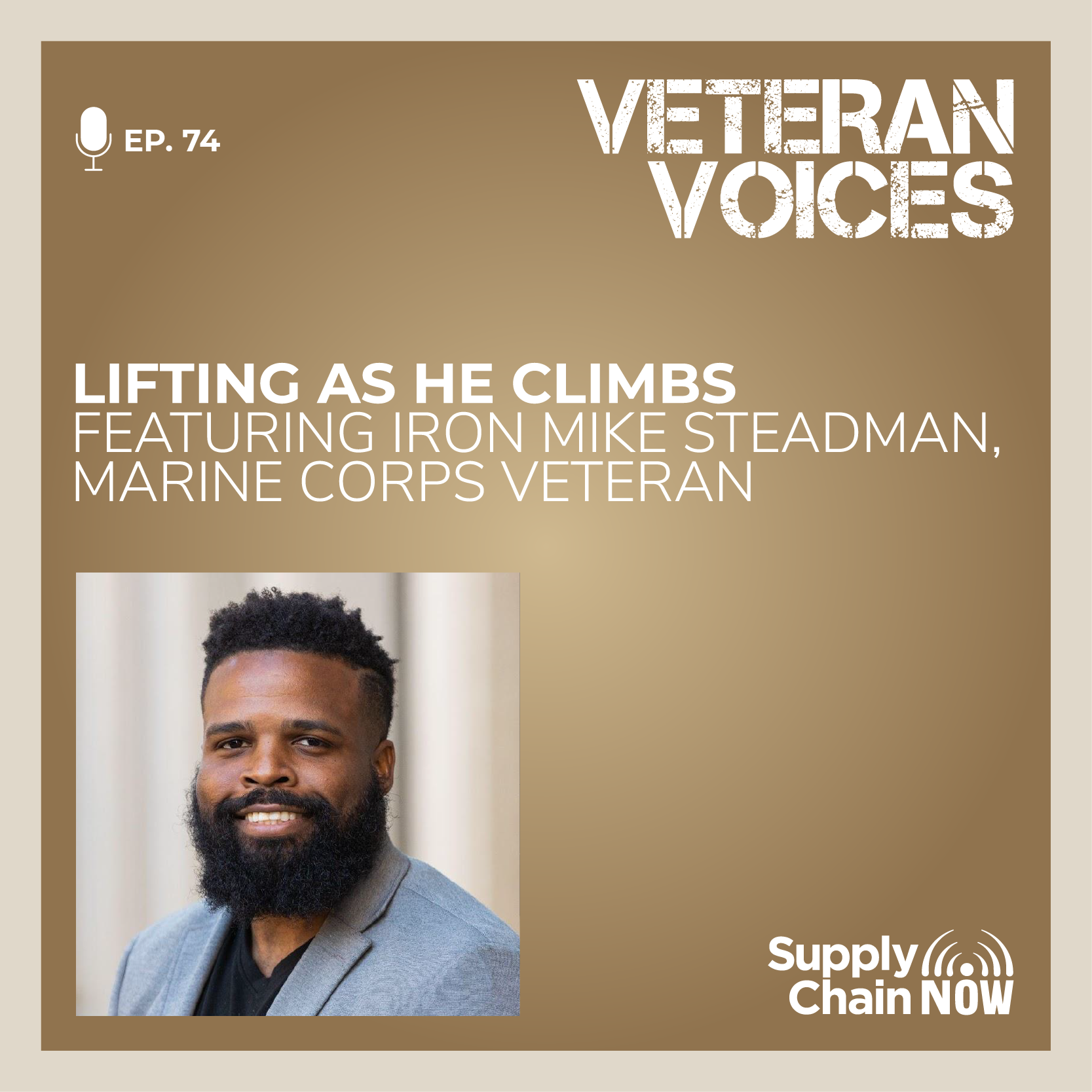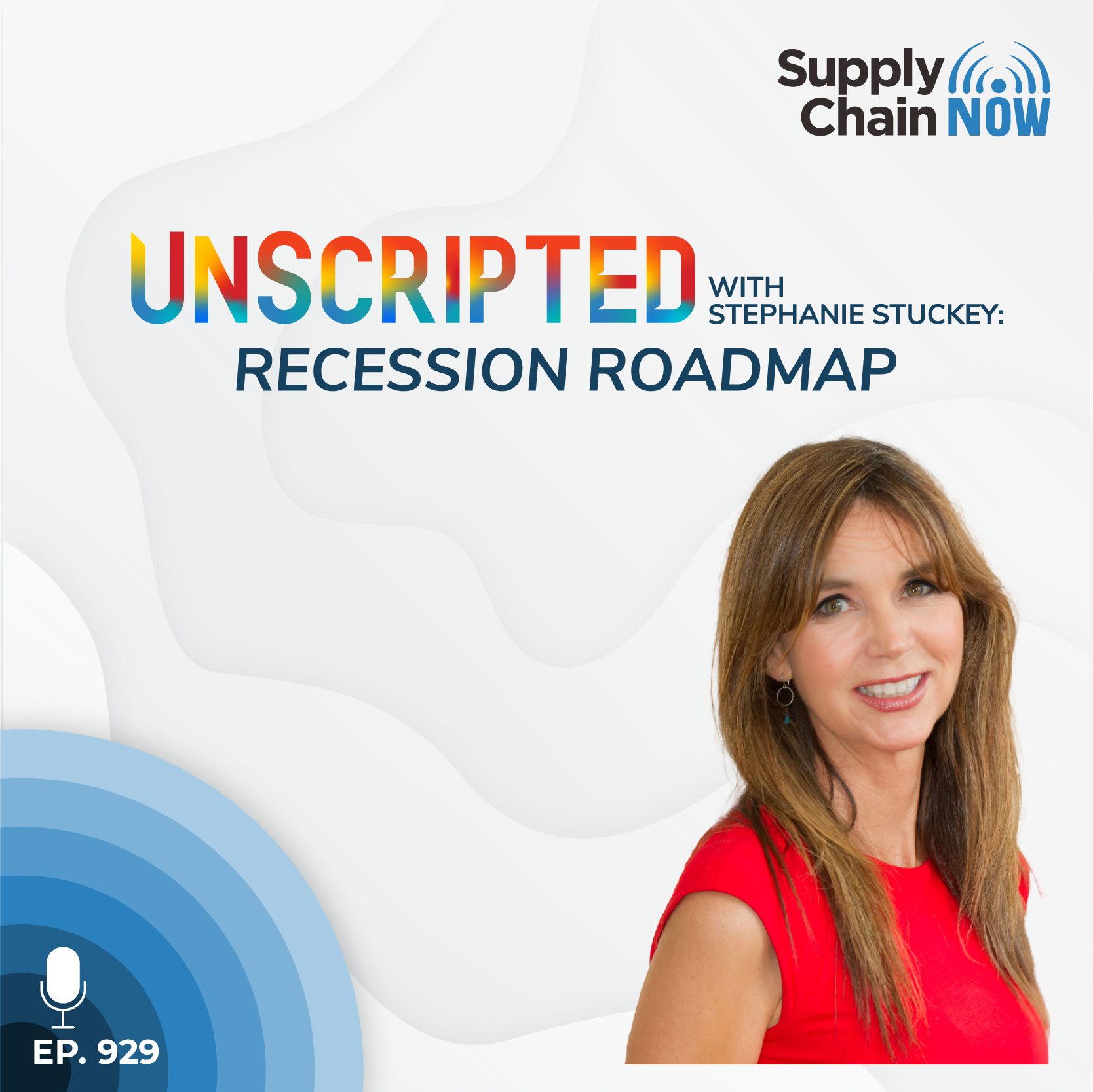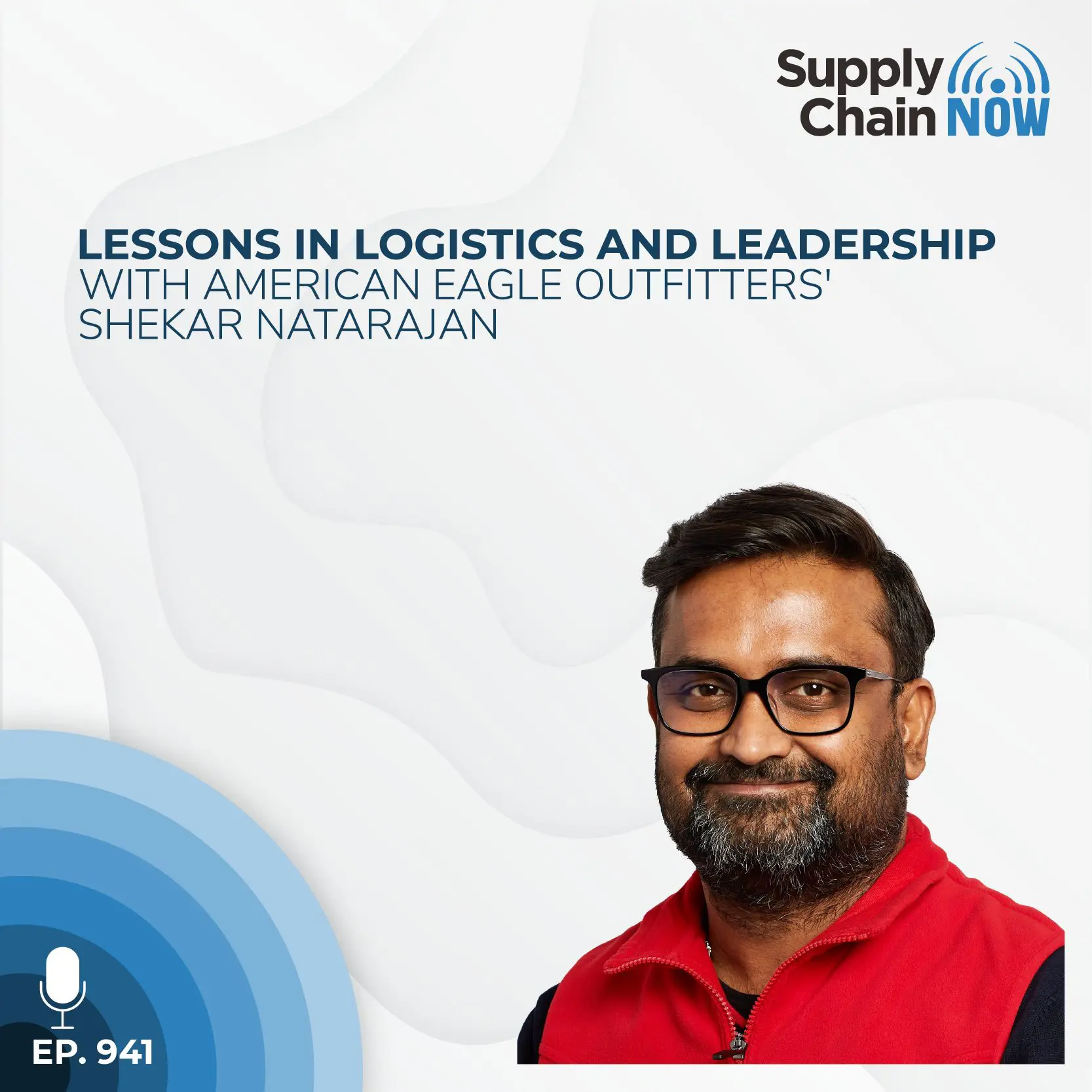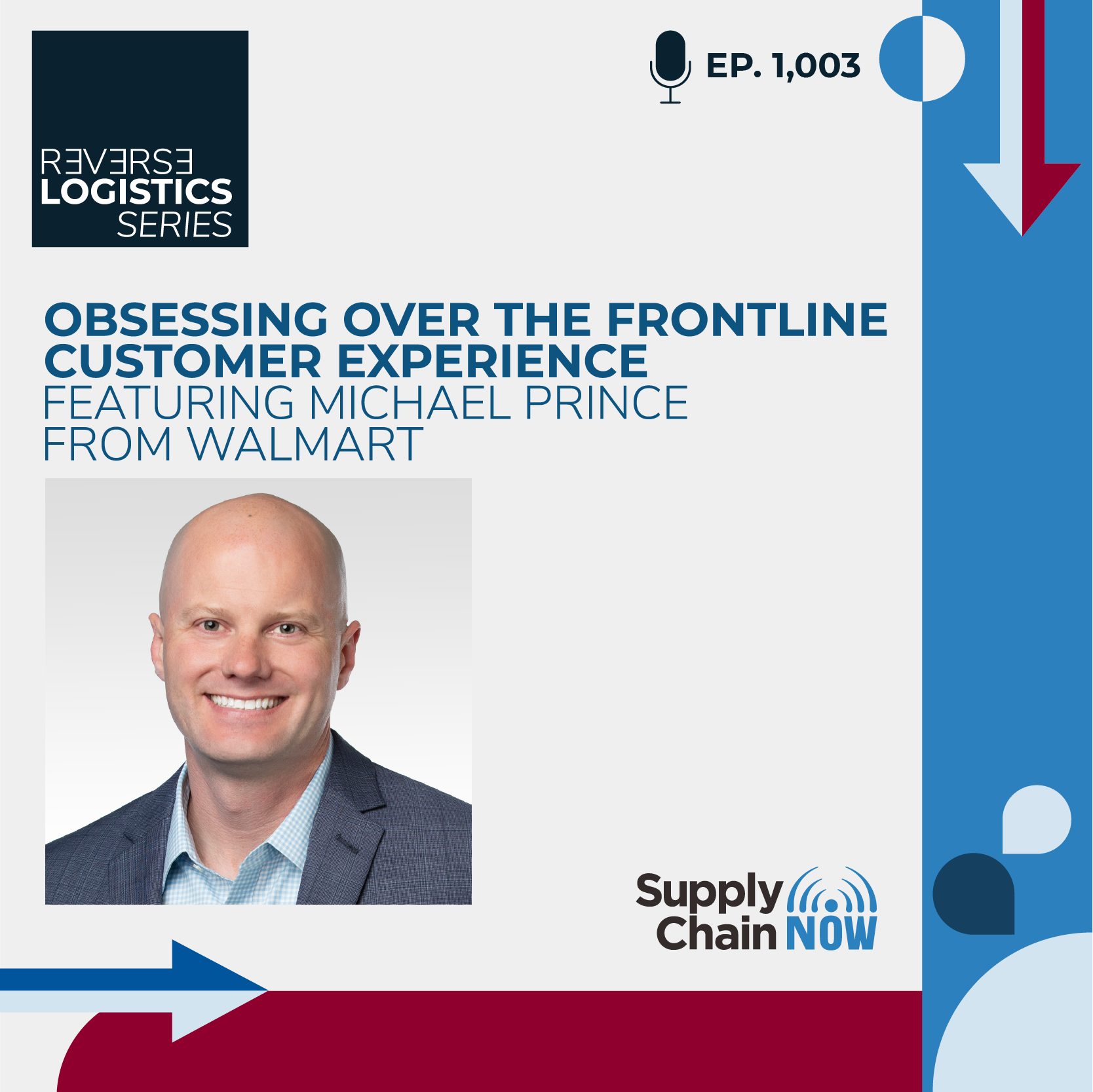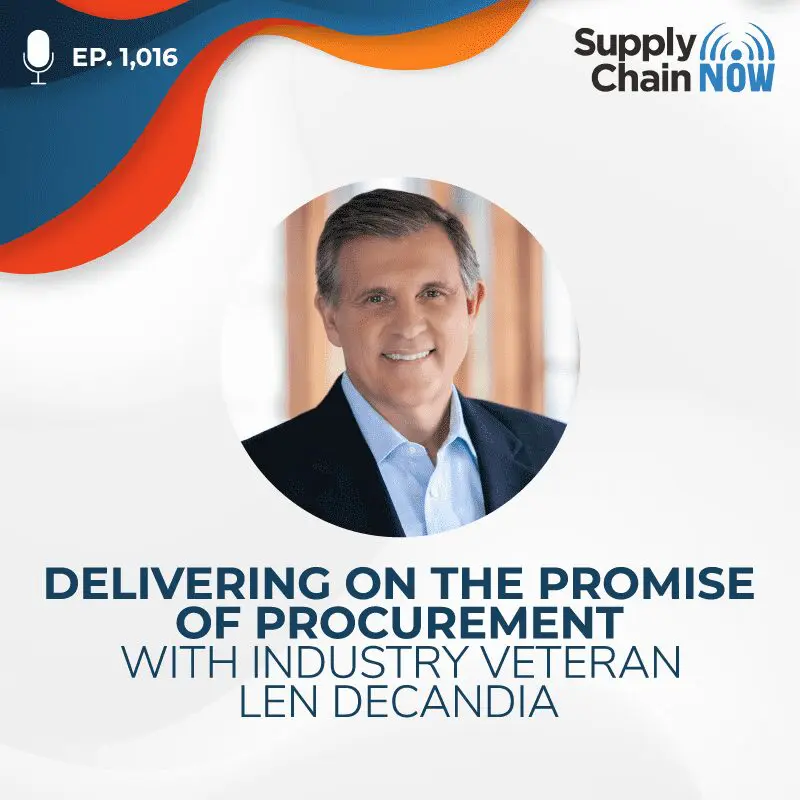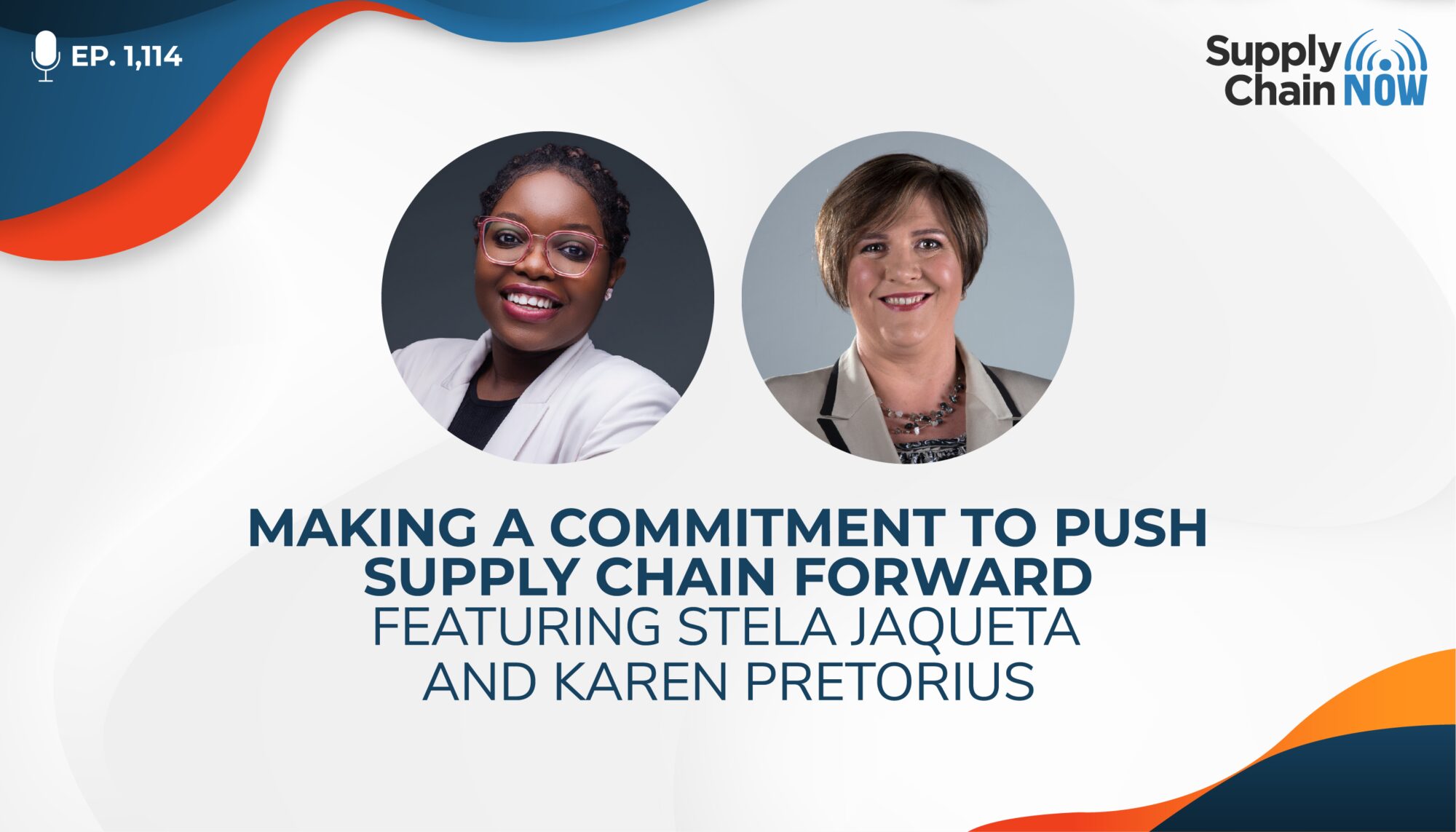
Sharing information and knowledge and working with people to make sure the next generation can take over when we are no longer there is important to me. I want to share my knowledge. That's one of my key drivers.
-Karen Pretorius, Founder, Owner, and Executive Consultant of KPI Cubed Supply Chain Consulting and Training
Episode Summary
Supply chains are increasingly dependent upon digital tools, data, and automation. And yet, for all that progress, it is still people who ultimately make global supply chains work and ensure that progress continues to be made from one generation of professionals to the next.
Stela Jaqueta is a podcast host, procurement professional, and supply chain enthusiast who is passionate about being an advocate for the development of African supply chains. Karen Pretorius is the Founder, Owner, and Executive Consultant of KPI Cubed Supply Chain Consulting and Training, where she applies her 20 years of industry experience.
In this session, part of the Supply Chain Leadership Across Africa series, Stela and Karen join hosts Scott Luton and Jenny Froome, Chief Operating Officer at SAPICS, to discuss:
• Why they support the supply chain community in different forms and what they have learned from their experience
• Where they find the inspiration for their continued work in supply chain
• How they feel about the role of mentorship in professional development
Episode Transcript
Intro/Outro (00:00:03):
Welcome to Supply Chain. Now the voice of global supply chain Supply chain now focuses on the best in the business for our worldwide audience, the people, the technologies, the best practices, and today’s critical issues, the challenges and opportunities. Stay tuned to hear from Those Making Global Business happen right here on supply chain now.
Scott Luton (00:00:30):
Hey, good morning, good afternoon, good evening, Scott Luton and my dear friend Jenny Froome here with you on Supply Chain. Now, welcome to today’s show, Jenny, how are you doing?
Jenny Froome (00:00:41):
Doing very, very well. Thanks, Scott. Feeling like I’m running towards Christmas already <laugh>, but still doing well.
Scott Luton (00:00:47):
Well, and hey, we’re lucky today. This is my second conversation with you today. So we’re, we’re feeling like a million dollars. And as, uh, you know, Jenny, I love these Jenny and Friends episodes we got here. It all makes up our continuing our long-running supply chain leadership across Africa series in conjunction with a whole bunch of friends. Jenny, we’re gonna have to give you some clones given all the roles you play. Uh, some of our listeners and, and viewers may, uh, may remember your director of the Africa Supply Chain Excellence Awards, co-chair of the Africa Supply Chain in Action. You’ve been recognized as one of the top 100 women in supply chain in Africa a few months back. Very proud of that. And of course, part of leadership team for the long running and successful SAPs annual conference in South Africa. 45 years, I think, Jenny, is that right?
Jenny Froome (00:01:34):
Yep. This year will be the 45th, and I think it’s horrifically the 27th one that I’ve managed, but the 25th in person. Wow. So it’s a, it’s a big milestone and it’s very exciting.
Scott Luton (00:01:47):
Well, as always, thank you for what you do. Uh, blessed all the connectors out across the, the, the global industry that bring people together for, so we can push industry forward, we can push networks forward, we can push individual success forward, and it takes people like you. So, Jenny, you know, you know, I’m the co-chair of the Atlanta, uh, Jenny Fr fan club, so <laugh>. All right. But Jenny, you’ve brought two wonderful friends here today, leaders, professionals, interesting personalities, and more. I want to go ahead and welcome in, uh, both of our guests. So up first, we’ve got a podcast host, procurement professional supply chain enthusiast who is passionate about being a voice and advocate for the development of the African supply chain. Please join me in welcoming Stela Jaqueta. Stela, how you doing?
Stela Jaqueta (00:02:33):
I’m great, Scott. Thank you for having me. Thank you Jenny, as well for having me. I’m super excited.
Scott Luton (00:02:39):
Well, we are too. We are too. Enjoining Stella. Today, uh, we have the founder, owner, and executive consultant of K P I Cubed supply chain consulting and training. She brings more than 20 years of experience doing big things in ministry. Please join me in welcoming Karen Pretorius. Karen, how you doing?
Karen Pretorius (00:02:58):
Hey, Skype. Very well, thanks. Thank you for having me. Very excited to be here with Stela and with Jenny, and with you, Stela and I talk weekly, so this will take place of our weekly chat <laugh>. So very excited to be here together.
Scott Luton (00:03:13):
Well, Karin, uh, we understand about those, uh, those weekly discussions and the power of those, and we’re gonna dive into those l later in today’s conversation. So thanks so much, Stella and Karin for joining us. So, Jenny, I understand we did, we did some homework, some due diligence, some market intel gathering before today’s show. And Stella, starting with you, we understand that you created a fa back in university. You created a fashion show that benefited charity, and a lot of folks don’t know that. So tell us, tell us that story.
Stela Jaqueta (00:03:45):
Yeah. Um, I was part of a society, which is like a club, for example, students, right? Yeah. In university to join in. It was a Christian society, and, uh, we wanted to create, we yearly we would create a fashion show. So it was my first time being head of creative parts with a friend of mine. We managed to organize a whole fashion show that had like 600 people in attendance. And lemme tell you the logistics of it, <laugh>, it was impressive out of this world because you had to manage models, you had to manage, um, artists, you had to manage the designers in itself. It was such a logistics. But at the end of the day, when we had the whole show, when we gather everyone around, it was such an amazing experience because it was all worth it. It was for kids which had underprivileged kids in orphans. Mm-hmm. <affirmative>. So at the end of the day, it was all worth it. Distress. I remember once, like, I cried <laugh> because everything was just going wrong. <laugh>. But, but
Scott Luton (00:04:47):
You persevered.
Stela Jaqueta (00:04:48):
It all worked out, right? Yeah. Persevered. And
Scott Luton (00:04:51):
It, it’s for great calls. And we’re gonna have to dive into a separate episode about the parallels between, uh, the high industry of fashion and supply chain, because it sounds like there’s lots of common in themes there, but it is, uh, Stella, I really appreciate, um, what I’m picking up, kinda a passion for giving back and giving forward, as we call it here. So thank you for sharing that. Um, Jenny, your quick comment before I move on to Karin and some, uh, book reading.
Jenny Froome (00:05:17):
Yes. Stella’s preaching to the converted here, event management of any nature is stressful and often causes tears. So well done
Scott Luton (00:05:26):
And underappreciated, frankly underappreciated as we’ve all been in that space. Uh, so mm-hmm. <affirmative> Blessed. Again, blessed are those that help connect, uh, others and, and help, uh, fuel, um, support for those in need. In your case. Tell us, thanks so much. Uh, alright. Karin, we were gal. I was like writing down a book list of things I gotta check out and pre show we understand, again, a little market intel gathering. You’re really big in the obscure books, uh, primarily fiction. You are dropping some titles. Tell us more about that.
Karen Pretorius (00:05:56):
Yeah, uh, Scott, I really enjoy reading. Um, and especially reading for fun. I read a lot for work and for other purposes. So I allow myself to get some read reading in for relaxation purposes. At the moment, I’m reading the original Agatha Christi collection work of fiction, Agatha Christie, of course, very well known for mysteries. And of course, one of the first female writers books, mostly published around about 1920s zbars Wow. A hundred years ago. Uh, very interesting to read those books. And what I find is that nothing has changed <laugh>. The problems that we have in the world are the same. Uh, in the one book I’m just reading the key characters hotel room was broken into. We still have that. Uh, it’s just the technology that is a little bit different. They still fraud, they still corruption, they still murder and maim. Mm. Um, and to see the world through different eyes, I think also gives a fresh view for oneself and to put things into perspective. So I really enjoy that.
Scott Luton (00:07:02):
Oh, kan man. We could really, man, both of y’all, this is gonna be a great conversation. There’s so much comment on there, Jenny. I, uh, what pull something out of what Kan just shared. I think y’all also, uh, share that, um, kinder spirits and, and, and voracious readers, if I use that phrase, that word, right. Jenny, your thoughts. Mm-hmm. <affirmative>.
Jenny Froome (00:07:20):
Yeah. I mean, I’ve, I’ve known Karin for a very, very long time, and every conversation I have with her, I learn something new. So there’s, there’s, I’m very excited for, for the ongoing conversation we’re gonna have here, because I’m gonna learn lots of new stuff.
Scott Luton (00:07:35):
Oh, man. Well, lemme just double check. Voracious appetite and voracious reading values that phrase, right? <laugh>? Yes. I hope so. Uh, our listeners know we create words all the time here, and usually it’s my fault. So. All right, Jenny. So where are we going next with our two esteemed guests here?
Jenny Froome (00:07:51):
Well, we’re gonna find out what they’re currently doing in their professional careers. Um, and I think that there’s some exciting stuff, and I think that you’re both gonna have to work out the salient bits to share with us, because you both do so much. So let’s start with, with Stella and you tell us what you are, what it is that you are doing currently.
Stela Jaqueta (00:08:14):
Yes, thank you, Jenny. Um, so currently I’m actually working in an oil and gas company here in Mozambique, um, as a contracts engineer, uh, part of the contracts in procurement department, where based basically assisting with all the procurement process, like from acquisition to award. Um, basically also my roles have been in that area of procurement. And I’ve also, funny enough, I’ve worked in the recruitment company, <laugh> mm-hmm. <affirmative> during my time. Uh, and now also I’m doing has the podcast host for yas, which is your African supply chain podcast. So talking about everything concerning African supply chains.
Scott Luton (00:08:53):
And we’re gonna talk a lot more about that, uh, in a moment. And Jenny, right before you move on to Karin, just to paint a picture, we were talking kind of pre-show about, um, how as advances, uh, geographic technology has come. A lot of us are still geograph geographically challenged. So when, when Stella says Mozambique, that’s on the east side, uh, the southern eastern side of the African continent, and think about where Madagascar the island is. It’s, it’s directly across, um, uh, a body of water, I guess I’ll call it <laugh>, uh, from Mozambique. That kinda helps folks, uh, uh, paint a picture there. So Jenny, uh, that’s a great start. We’re moving to, uh, Karin next, huh?
Jenny Froome (00:09:33):
Yep. Karin just dazzle us now.
Karen Pretorius (00:09:38):
<laugh> <laugh>.
Karen Pretorius (00:09:40):
Um, normally when people talk to me, they say, how do you do it all? And then I say, I also don’t know. So at the moment, uh, I’ve got my own business, KPI Q Supply Chain Consulting and training, and we just celebrated on the 13th of April. Being in business for eight years as a small business, it’s very exciting to actually have survived for such a long time, especially when we had the challenges of the multiple years of Covid. In that same time, we had some, uh, riots in South Africa that disrupted our supply chains. And shortly thereafter, we had some severe flooding that disrupted our supply chains even more. And, uh, I did the millennial thing on LinkedIn, and I congratulated me for being in business for eight years, along with my business partner, also is my husband and my rock. And we do a lot of things together.
Karen Pretorius (00:10:33):
Um, we are working on some exciting projects in the R F I D space at the moment. We are working on a project where we are taking, uh, implementation of we ask management systems to the next level in a home homeware fashion group from where they normally do straightforward fashion. Homeware is a little bit different things that you need to look at there. Um, we are working on a long-term project with a three PL on improving processes and looking at their systems and creating a single platform. And on the side of that, um, a volunteer board member for sap, that takes up a lot of my time. And I train the C E C P, that’s the certified supply chain, uh, professional from A C S M. And that keeps me busy on Saturdays where I’ve got a group that comes to classes face to face. We also have some hybrid students. And,
Scott Luton (00:11:23):
And you gotta love supply chain. If you come to class, learn about supply chain on Saturdays, right, on the Saturday,
Karen Pretorius (00:11:28):
You’ve gotta love it. And who loves it even more is my group of self-study students, where we do group support classes on Tuesday and Thursday evenings to keep them straightforward or straight, um, and honest and being on, on the right path with these studies. Um, and then on the sideline of that, uh, I am studying further in sustainability. I just completed the A C S M building sustainable supply chains now in April. And in March I completed the I CS certified Sustainability Supply Chain Auditor course. I’m writing my exams for that soon, hopefully on the 26th of April. Um, and on the side of that, I’m a wife and a mother and a daughter and a pet owner. And I really keep my life quite busy. And as Scott said, a voracious reader,
Scott Luton (00:12:24):
Man. Okay. So Stella and Karin and Jenny, man, goodness gracious. All of y’all need more clones. You just need more clones. How we all all done
Karen Pretorius (00:12:33):
<laugh>? Yeah. And then I forgot to say, and I mean to Stella on the side of this Yeah.
Scott Luton (00:12:37):
<laugh>. Well, I bet
Stela Jaqueta (00:12:39):
I don’t want to get to Karen’s level.
Scott Luton (00:12:40):
There you go, Stella. Well, you know, I bet we’re gonna talk more about mentorship minute, but I bet that’s a healthy two-way street where y’all both are learning a lot about, um, about things in your blind spot. So, Jenny, before I move into, uh, the whys of some of these things that both Stella and Karin have both shared, your, your, um, your take on these full lives at both Stella and Karin lead.
Jenny Froome (00:13:03):
Well, I’m exhausted. I’m exhausted, and I’m, I’m inspired. And, you know, I, I, I constantly, continually, uh, am grateful to supply chain now for giving us this opportunity to be able to highlight the talent and the knowledge and the jolly hardworking people that we have got. I know they’re all around the world, but it’s lovely to be able to be given the opportunity to highlight African supply chain professionals who, who bring so much all the time.
Scott Luton (00:13:33):
Mm-hmm. Well said. A hundred percent, uh, Jenny. And we’re honored to do it. It’s been, it has been a, it’s, it’s, it’s given us so much as well. Uh, these are some of my favorite conversations. So, Stella, I want, I wanna move into the why’s of some things that y’all both shared. And I wanna start, though, I wanna start by correcting me earlier I said that body of water between Mozambique and Madagascar, that is actually the Mozambique channel. Uh, I got that right, Stella, the Mozambique channel.
Stela Jaqueta (00:13:58):
Yes. Yes.
Scott Luton (00:13:59):
Okay. All right. I, I, I li I’m a big geography nerd as well. I love zooming in <laugh>. Google’s been such a great, uh, great tool there. Let’s go to your podcast series, your African Supply chain podcast, which I bet as all of us podcast producers say, you can get wherever you get your podcast from. So y’all check that out. Um, why start with a why, why did you start that podcast, uh, podcast series?
Stela Jaqueta (00:14:25):
Yeah. Um, Scott, it really birthed out of the idea of finding my tribe, of finding people who have similar passions, uh, and interests as me, because I love this industry. I remember back in 2014 when I chose this course, it was like, why, why are you doing supply chain? Because I constantly had to explain to people, supply chain is <laugh>. Right? Right. So, uh, it really, for me, since then, and even when I concluded my studies, I did my master’s in supply chain, it just really sparked this fire and passion for this industry. Even coming back to Mozambique to come and work to this side, it really sparked this continue to spark this action. And I can’t, I can’t continue and say that what really happened unless I tell the story of how it really happened. Okay. Um, because it’s, I went to Karen, well, um, because I wanted to do a course on, I wanted to get a supply chain certification.
Stela Jaqueta (00:15:25):
And we had a conversation, we talked, and back then I couldn’t continue because I didn’t have the finances to continue with it. But we still kept in touch. And then thereafter, I gathered, I had like a group of friends who also had a, a passion for supply chain who were working in the industry for a couple of time, for a couple of some years. So we went to Karen for really advice cuz we wanted to study the association for supply chain here in Mozambique. And Karen really like highlighted things that we were like not aware of, you know, of starting an association of the cost involved, of the, the highlights involved. So she really brought down, broke down to us what really goes on in, in terms of creating an association. Mm-hmm. <affirmative> un unfortunately, we didn’t continue with the idea of association and the group kind of scattered, right?
Stela Jaqueta (00:16:19):
So I still continued with Karen, and, um, I was like, Karen, I want to continue with something. I want to do something that is mine, um, that, uh, brings joy to me. And I love supply chain. So we really started to debate with this idea, playing the, with the idea of podcasting. And really, it was not in my mind back then, but she challenged me to, okay, you should start a podcast. You should talk, find your tribe. You know, and it really, for me, it really started like that. I’m like, let me just try to find my tribe. Let me find people who are with similar interests. And I started to contact people just like that, like through LinkedIn, really <laugh> getting gas. And the more I did it, the first episode was like, thrilling. And the feedback that I got, I was like, oh, okay, maybe I should continue the doing this. And the why really is I want to become an expert in this industry. I want to become a thought leader, and what a better way to do it than to be, and asking those who have walked that, that path, who are walking that path and who know it to tell it to me and to my audience, how we can do it, and how we can survive as supply chain professionals. So yeah.
Scott Luton (00:17:30):
Love that. I love that. All right. So I gotta ask, um, give us a, a gem or two that you’ve really enjoyed from those conversations you’re having on your African Supply Chain podcast.
Stela Jaqueta (00:17:42):
One of the things that I, I love it is how with all of the guests is education and knowledge, because supply chain is consistently changing. And if we don’t have the education and knowledge that we needed in order to keep up with the pace of the industry, <laugh>, we’re not gonna, we’re not going to survive. Because like 10 years ago, the information available is not, Avi is not the one that is applicable today. And one of my guests actually highlighted in terms of how culture impacts supply chains. Um, for example, with Netflix, how before, like five years ago, you wouldn’t find a lot of content in terms of African, African content creators. But now you can go on link, uh, on Netflix, and you’ll find that a lot of African content creators movie series. So we can see a lot of companies adapting to that. So that’s what’s, that’s one of the things that highlighted to me and opened my eyes, I can say in terms of, wow, um, we are so diverse, even if people are in the us, if people are in Europe, we can connect into something, we can connect into those little factors in terms of culture. Yes. In terms of growing in this field and connecting with this passion. So that’s one of the things that I can say I’ve learned from my guests.
Scott Luton (00:18:59):
And, and we’re gonna have to connect if we’re gonna move the industry forward and tackle some of the old and new challenges that, uh, we’ve all been faced with in, you know, and for Millennium. But certainly in recent years, Jenny, get your, um, uh, what comes to mind as, as Stellar really unpacked that, uh, the genesis of our podcast, uh, and, and those gems that are coming out of, of the, of the growing digital media, uh, platform. Your thoughts, Jenny,
Jenny Froome (00:19:22):
Uh, just immediately struck by, as always, how wonderful it is to meet young supply chain professionals who have a vision, who have the commitment to push themselves forward, but more importantly, you know, you are the future of this profession. And to hear it being spoken about with such eloquence and such passion is just really, really inspiring. Liberating and, and reassuring. Yes. You know, really reassuring. So tha Thank you, Stella.
Scott Luton (00:19:54):
Yes, absolutely. G hun. A hundred percent echo what you just shared there. Um, all right, so switching gears, Karin, uh, as we, as you, I think you, uh, alluded to on the front end, you volunteered extensively in your career. Uh, you mentioned the sap, uh, volunteerism you’ve done for 18 years now. You recently elected as a director on the board in, uh, 2022. So what, what is your why for doing all that?
Karen Pretorius (00:20:18):
Scott? I want to be sure that there’s still a supply chain that can be run. Uh, at the moment, things are moving so fast, and we all aware of the sustainability issues that faces us, but at the heart of this, there are us, the people of the planet. There is nothing else. There’s no one coming, there’s no, uh, on a white horse, like on Qk coming for us to try and save us. And it’s up to us who work in supply chains to ensure that the knowledge is there and the knowledge has passed on. And I think, especially in Africa, there’s been challenges with passing on knowledge and access to information. And I want to make sure that people who enter the profession don’t have to face the same hardships that I had in trying to figure out everything. The wheel is there. We just have to make it turn.
Karen Pretorius (00:21:16):
And for me, sharing information and sharing my knowledge and working with people to make sure that there is the next generation that can take over when we are no longer in the position or able to be there, that’s, for me, is important. I want to share the knowledge. And I think that’s one of my key drivers. And Jenny knows I like to talk a lot, um, sometimes too much. But that’s how I, I give expression and I share my passion. And I think with supply chains, every day there’s something new in supply chains. Um, these small supply chains and these large supply chains, when you go to your local hairdresser who works from her home, she’s got a supply chain. When you go to one of the international chains, they’ve got a supply chain. Uh, in the news in South Africa, over the last few weeks, there’s been the incredible, fantastic, almost story of a serial murderer or serial rapist and serial and merger convicted murderer who escaped from prison by faking his own death and setting a body of light in his cell.
Karen Pretorius (00:22:14):
And I’m using that as a case study in my supply chain classes about how all of the supply chains come together. Even when we think prisons, wow, there are things to consider. Um, and all of the, the points of failure that had to go wrong for that magical story to come together, where eight months later the guy’s been arrested in Tanzania and brought back is facing his charges again. So supply chains are everywhere. And that’s the exciting part for me, is that you can’t look at anything, even if we had to go and live on Mars one day, um, and we eat pools instead of food, someone had to create that button on the spaceship, right? That could produce the pool and ingredients for that pool so we can stay alive. And that for me, is the exciting part, is I never studied supply chain to start off with. I studied a lot of other things, and I ended up in my career late on, and they, through training and systems and supply chains are just everywhere. You can’t look around without facing a new supply chain every day.
Scott Luton (00:23:10):
All right. Karin, you, um, I gotta go back to that whole prisoner, uh, faking his own death with his body. That’s a whole new lesson in provenance if, if I’m not <laugh>, if I’m not mistaken. So we to, we’ll, to visit that down the road a bit. Um, alright, so Jenny, uh, your thoughts on what, uh, uh, Kan just shared there, and then we are moving back to Stella and Mozambique. So your, your thoughts, Jenny? Yeah,
Jenny Froome (00:23:33):
I, I always love it when people highlight the people part. Um, and, and that is something that doesn’t get highlighted enough because we are all about digitization and AI and technology and all the widgets and gadgets and all the rest of it. But at the end of the day, the, the back, the background is, is people, it’s us. It’s the community. And, you know, that’s something that I’ve always respected with Karin, is that whole belief in the value of community. And it’s what, you know, it’s your background as well, Scott. It’s something that we have built during Covid was a great community. And, and it’s the essence of all of it, really.
Scott Luton (00:24:15):
Yeah. Well, um,
Jenny Froome (00:24:16):
It’s so well said.
Scott Luton (00:24:16):
Yeah, it really is. And, and I love that, the essence of all of it. That that’s certainly, um, I, I believe that I filled that in my bones. Uh, your comment there. Uh, Jenny, um, okay. So where we’re going next with Stella and Kan?
Jenny Froome (00:24:30):
Well, we’re gonna find out from, from Stellar a little bit about, about Mozambique. It’s not, uh, for, uh, uh, you know, for those of you who don’t know very much about Mozambique, it’s a complex country. I’ve never been, I’ve always wanted to go. And it’s not just the vision of beautiful beaches and wonderful deep sea, um, diving and all the ma magic that a coastal country has got. There are challenges. Right. Stellar. And, and from a supply chain perspective, what sorts of things share with us some of the, the day-to-day challenges that supply chain professionals face in your country?
Stela Jaqueta (00:25:11):
Yes. Um, Jenny, there’s a lot of challenges that there’s the beauty and, but also there’s like the thorns, right? And among the roses, uh, one of the challenges that we really face is the whole distribution process and scaling up because we, well, you have suppliers, they are, how can I say? It’s fragmented. You have suppliers that don’t know each other. You know, they might have the product, but they don’t know each other and how they can connect and how they can meet up to connect each other. Right? And also that’s kind of ch is challenging in terms of getting the transport of trusting your supplier. Um, apart from that, there’s also permits and insurances clauses, which also skills it up. It’s tremendous, especially for small, medium enterprises, informal market. It’s at an all-time time. I think it’s like 70%, if I’m not mistaken. And the formal informal market predominates the, the, the, the, the market.
Stela Jaqueta (00:26:12):
And makes it challenging as well in terms of access to the information for supply chain professionals. And, and I think one of the things that is not really talked about, but I feel like it is a challenge, is the recognition that we do not as supply chain professionals. We don’t have the visibility, well, supply chain here is still gaining ascendance. So you’ll probably hear people jobs. If you hear the jobs, it’s like procurement logistics or procurement or logistics. It’s not really <laugh>. You don’t have other than that. Or you just have someone who says, uh, a position for supply chain manager, but re really, it’s a logistics professionals that they’re looking for. So there’s, the recognition is still not there. And that also comes with the training and education in that sense. Um, because even up until now, I even had a test. I, I did a test.
Stela Jaqueta (00:27:10):
I’m like, I went to a local library. Let me just try to find, uh, books on supply chain in that, in Portuguese, I found none. Uh, it was really, it really broke my heart in terms of that because there’s so much information in supply chain, but it’s available out there. And if you’re not deliberate in getting that information, you won’t get access to it. And I think if, um, one of the challenges that we as supply chain professionals here in Mozambique, that we are now doing, it’s getting the information, getting the education, getting the knowledge, getting certified. Because otherwise, if we depend in the company or if we depend for the information to be thrown at us, that just doesn’t happen. So those are some of the challenges that I really saw that, uh, supply chain professionals we are facing and that we are fighting constantly every day.
Jenny Froome (00:28:01):
Mm-hmm. <affirmative>. Yeah. Great, great observations. Um, and I think, and I think it’s, you know, yes. It’s, it’s specific to you and also you’ve got the language, um, the, the language constraints as well. Um, but, but it is also something that I think we we’re all familiar with, with these problems and these challenges. Yeah. Right?
Stela Jaqueta (00:28:24):
Yes, yes. Exactly. It’s something that I also founded a little bit in South Africa in terms of the information. I remember I did a, a, a study in physical distribution countries in physical distribution challenges in emerging African countries. And guess what? Information was also missing. Mm-hmm. <affirmative>. So you might find it a lot of information in terms of the big, the big emerging companies like Nigeria, South Africa, Ghana, Kenya. You will find information there. But now when you come to the ones that are still not yet there, they’re still fighting. You won’t find that much information. And for me, that’s a passion. It really sparks that passion within me to, Hey, I need to make information available. That’s why I even started the podcast to, Hey guys, there’s things happening in other African countries, you know? Mm-hmm. <affirmative> that, um, there’s challenges everywhere. Some are nuanced, but we are overcoming, there’s great stories out there of companies, of individuals who are really doing what they need to do in order to overcome it. Yeah. Yeah.
Jenny Froome (00:29:28):
Absolutely. And I think, you know, I think it’s obvious the, the, the answer to my next question is, what inspires you to be a supply chain professional? I mean, really just every day and the air you breathe inspires you, it sounds like to me, <laugh>,
Scott Luton (00:29:43):
Right? Well, and then, and I gotta add, it is refreshing going, you know, going, uh, invigorating and refreshing, reassuring, you name it. The, the, uh, passion with which, you know, you, you’re talking about at Stella. Sure. There’s plenty of problems. There’s plenty of challenges, right? Yeah. But there are folks that, um, are putting boots on the ground taking action to do something about it that not only, again, improves the industry no matter where, what geographical location, but yes, opens the doors. What you’re speaking to Ella for opportunities for others. That dissemination of information, cuz that, hey, bless those folks. Do that too. Um, alright, so Jenny, man, we need, we’re gonna need, uh, so to our producer friends, we’re gonna need three more hours a day. Uh, there’s so much we get into with Stella, Jenny, and Karin. Uh, Jenny, we’re going next.
Jenny Froome (00:30:37):
Gonna ask Karen. Really? But you know, again, I think that that in, in the context of our conversation, we’ve, we’ve, we’ve felt it, uh, that, you know. But let’s ask the question. What keeps you inspired about being a supply chain professional?
Karen Pretorius (00:30:52):
I think it’s the last word. It’s the professional in supply chain. Uh, I don’t want to do anything that’s mediocre or just a me too or like someone else. I’ve got incredible drive. Maybe it’s the gen xus inside of us, like we spoke about at this thought, <laugh>. Um, you know, if I do something I have to be, uh, I want to say the best at it. I’m striving to be there. I’m not always the best at everything that I attempt. Um, but I want to get that into the hearts and minds of young people in supply chain and, and actually everyone working in supply chain. That this is a profession. This is something that you do as a professional. We spoke about where’s Mozambique in the Mozambique channel in Madagascar. And I encourage my students and I say, when you read something, when you listen, uh, to something on the radio, when you watch a movie, go to Google Maps, go and see where that city is, in which continent is it in which country is it?
Karen Pretorius (00:31:49):
What’s the closest sport? Are they train stations? Are they airports? How do they get their goods there? Uh, cause it affects all of us. We need to understand this environment that we are in. And we need to understand that the supply chain is also that it is a chain, it’s an area of, uh, lots of things coming together. And for me it’s just so exciting to think about all of these different areas and how we can get to know more about it and make things better. I’ve got also that internal strife always continuous, improving and seeing how can we change things If we do this, how can we do it better? And, and that links for me back also to resources and, and sustainability again, which are some of my other passions. Um, and that’s what keeps him going in this industry is that there’s so much to learn and so much to share. And let’s turn ourselves into the professionals in supply chain. It’s not just for other industries that professionals are there. Mm-hmm. <affirmative>, uh, we need to work on ourselves to get to that level and to get to the next level of supply chain professionals.
Jenny Froome (00:32:54):
Yeah. Well said. That’s brilliant. And we go, we go back always to the, the fact that Covid is probably the only silver lining out of all of it was, was the fact that supply chain management w is better understood. We’ve still got a long way to go, but, um, but, but Karen, what keeps you awake at night? Other than reading old books? <laugh>
Karen Pretorius (00:33:17):
Old books. Yeah. Um, I must, I must mention this, um, when I first studied photography, I diversity for that and then after that, straightaway I wanted to study astronomy and applied mathematics. And uh, I never got to do that cuz my mother said, if you read a book, you may as well write a test about it. So that’s one of my mottos in life. And then if you’re gonna write a test about something, you may as well get paid for that knowledge. So then I changed my majors and started studying into systems analytics and information systems and programming and that kind of thing. Um, later on, supply chain came. Um, so with that, what keeps me awake up night is absolutely sustainability. I know it sounds like boring, everyone’s talking about it, but as I said earlier, we are the people of the planet. There is nothing else.
Karen Pretorius (00:34:12):
Um, a few years back I watched, uh, cows Percy and Kiss the Ground and those kinds of documentaries and I stopped eating meat and I watched Seas, Percy and all of those. And I stopped eating fish and then I watched dead white man’s clothes and I cried for a week because I can’t stop wearing clothes. But what do we do now with those problems? Where do we go? We have to find solutions for these things cuz it affects all of us here in South Africa. We’ve got tremendous problems with the power grids and everyone is putting up solar panels on their roofs of their houses. And everyone has got an inverter, oh show everyone that can afford it has got an inverter that has either slow lead acid, motor battery. What is that doing to the environment? Those who can’t afford us got less in batteries cause it lasts longer.
Karen Pretorius (00:34:59):
What’s that doing to the environment? What are those photo panels doing? The solar panels on the roof of your house, who’s thought about and planning for the reverse supply chains of those panels when they stop working after 15 or 20 years? Because my child is still growing up. I’m a pension and mom, my son is 16 and I’m 51. So I have to think about things that will enable an earth and environment solutions for him and his children in 15 or 20 years time because those solutions are not there. Right. And we are focusing so much on other things that we are not getting back to original first principle thinking of solving the actual problem. Uh, back to the, for example, the, the solar panels, right? Instead of getting to using less electricity, we’re just getting to what alternative electricity can we use? And that for me is not the right answer. We need to get you the innovation of what can make us use less energy and less electricity. Does that mean I want to sit in the dock at night? You save electricity.
Scott Luton (00:36:04):
<laugh> no.
Karen Pretorius (00:36:05):
<laugh>, no. Do I want to burn a candle? No. Do I want to make fire with wood? No, because that’s releasing all kinds of greenhouse gases and that’s wood bad for the environment. And <laugh>, you know, you get to almost into an in, in, in infinitely loop, right? When you start worrying about those things. But that for me is that we, we have to collectively start focusing our energies on to see how we gonna solve those problems. We can’t just find alternatives. Cause those are just substitutes.
Scott Luton (00:36:31):
Karin, uh, you pointed out the lithium batteries, of course, uh, globally, the, the push is on the movement is on whatever you wanna call it, the revolution for all things ev or electronic, uh, electric vehicles. But you po you rightly point out, we’re gonna have some really big challenges, growing challenges in our hand with the, with the infrastructure and the supply chains behind these EVs. That, that probably, and I we’re all consumers here, right? Many consumers maybe that have the, the few that are late to the party that haven’t made, you know, connected to dots behind the supply chains behind certain products. So they feel good about, Hey, we’re buying this a it’s a ev right? Um, but it all comes with tremendous challenges and we, we, to your point, we’re gonna recognize that and more importantly, do something about it. Get to root cause. Right? All right. Gosh, Jenny, um, I’ll get your quick comment here and then I’m gonna shift gears out of the nece out of the necessity for time. Cause I wanna talk mentorship with both of our guests. Jill, your thoughts? Yeah.
Jenny Froome (00:37:29):
Yeah. Just very quickly, I was just gonna go, go back to Lorraine Jensky. We had the privilege of, of chatting to you who’s been kept awake at night for, since the 1960s, worrying about sustainability and the issues and everything else. And your point kan about stop scratching the surface. We have to actually educate, discuss, but think about the repercussions of the solutions. Um, very, very real food for thought. Thank you for that.
Scott Luton (00:37:58):
Yes. Uh, you gotta dive beyond headlines, right? Gotta gotta think holistically and critically about the, the challenges of our day and look past the, some of the feel good stuff as we’re, we’re kind of alluding to. Uh, alright. Enough, uh, about that for now, Scott. Man, I can go down a tangent and for, for days it feels like. But, but really Stella Karn and, and Jenny, I really appreciate what you’re sharing here today. So let’s talk men mentorship. Uh, Stella, you are also passionate about mentorship. So why do you think that, um, mentorship is so important, especially to, to everybody probably, but young professionals too, your thoughts?
Stela Jaqueta (00:38:36):
Yes. Uh, Scott, for me, mentorship really helps you to fast grow your career. As Karen was saying, there is certain things that she did during her path, during her journey, mistakes that she have made, victory that she had won, that she now wants to share. And I don’t have to, if I have a mentor, I don’t have to make the same mistakes that Karen did because now I’m learning from her. And I’m the type of person where I like to learn from other people. I like to learn their experiences. I like to learn what, what were their victories? What were their successes? What, what were the key success factors, I can say? And mentorship allows you to have that as a young professional. You’re starting off, you, I really don’t know how the industry really works. You don’t know who the bad guys are, <laugh> or what the potholes to avoid.
Stela Jaqueta (00:39:29):
So having a mentor allows you to that, to fast track that you don’t have. They will tell you, okay, you know this, don’t stop here. Don’t, don’t do this. Look out, look out for this. Oh, I think you should consider this or think you should consider that. So a mentor allows you, it gives you that, um, wider view I can say. And another thing is that it gives you another perspective. I remember I had a section with Karen because I got a job offer and she really helped me to break it down. What, what really that entails. She really helped me to look at advantages, the disadvantages, and not in a way that persuade me to take it or not, but to really look at the full picture. You know, because sometimes as a young professional, you might be tempted to just take the next thing or just to take a quick buck, you know, or the easy way out. And having a mentor like Karen, it allowed me to really see the full picture and to really sit down and analyze mm-hmm. <affirmative>. So your mentor gives you that another perspective, another the voice. Because again, they’ve walked the path. They have seen many people make the same mistake or even taking another route, which did not work out for them. And finally, mentorship allows you to be challenged. I was challenged during this time because I remember I had to do homework, <laugh>, <laugh>, I had to do homework and everybody
Scott Luton (00:40:56):
Hates homework, right?
Stela Jaqueta (00:40:57):
I used to, I had to do homework. But again, is that taking out of taking you out of that comfort zone? Because sometimes you get so comfortable if you find, uh, as a young professional, sometimes if you are find a good job, you, you, you are very prone to just relax. But mentorship allows you to be challenged. What’s the next thing? What are you gonna do about it? You know, you have this challenge, you have this passion. What are you gonna do about it? So a mentor allows you to spark to, I can say stir up the things that are inside of you. So I think those three things are really what yeah. All young professionals to strive for in a mentor.
Scott Luton (00:41:37):
Oh gosh. All right. So, so much there. You shared, but, you know, <laugh>, um, r really two, two thoughts come to my mind, uh, Jenny, number one, the true super, super hero skills mm-hmm. <affirmative> that mentors bring to the table. You know, you see things differently. You hear things differently. You perceive and think things differently. You, you, uh, you shine a big, bright, um, spotlight in your blind spot that we all have. That’s the power of mentors. But the second thought Jenny comes to my mind and hearing Stella talk about this, is we gotta fight back that, that natural human, uh, resistance to change and resistance to feedback. And we gotta, we gotta actively manage that to, to make the most out of these mentoring relationships. Right. Jenny, your thoughts, and I’m gonna switch gears over to, uh, Karen.
Jenny Froome (00:42:22):
Yeah. I, I just wish that, you know, I had had the opportunity of a mentor and that I had identified a career and that I’d had that sort of guidance. Um, but then again, you know, well done stellar for listening to the advice. There are so many people who get given advice and still decide that they’re gonna make the same mistake because they can only learn from their own mistakes, right. Not from other peoples. So, you know, I thi I think it’s being selective and using the information and advice and that that takes, that takes talent.
Scott Luton (00:42:57):
I would add it takes talent, it takes maturity, it takes humility, right? Yeah. Uh, and if you, if you can really focus on those things, man, mentors can take you miles and miles faster. Mm-hmm. <affirmative> no further. Um, okay, Karin, uh, let’s talk, uh, so you, I know you’ve spoken previously about the intercultural intergenerational mentorship that, uh, that’s been developed with your relationship with Stella. So tell us more about what you’ve learned there and why, why is this all important to you?
Karen Pretorius (00:43:28):
Okay. Yeah. It was a magical journey actually with Stella. We’ve been walking this route now for, I think about eight or nine months. Say Stella. It feels like it’s yesterday, but it’s been a long time. And what’s important about mentorship is that it works both ways. Uh, you have to be open for also your mentee to be able to challenge you. Because I grew up in a world that is much different from what Stellar was growing up in. Um, I’m a white woman in my fifties, well, 51 in South Africa, which is a fairly developed country. Stella has half my age and grew up in a developing country with its own sets of challenges, uh, challenges and different experiences. Where I am also in my life stage is nowhere near where Stella is. And I have to also be able to embrace what she’s looking after and what she wants to do.
Karen Pretorius (00:44:25):
And I can’t allow myself, because I’m a mentor, to try and live my life vicariously through her. I have to be sure that if she comes with a question, I can guide her. I can show her a path and I can enable her to make the right kind of decision without influencing her on what the decision should be. Because it’s not my decision. It is still hers. And we have to look at it from that side. When we also started the podcast and the, um, inclination of the young to do things quickly, I remember when Stella first decided on the podcast, she was like, okay, and let’s record our first session next week, and you are going to be my first guest. And it was literally nice like that. And I said, Stella, let’s just slow down. We want to do this fast. We don’t want to be troubled by all of the necessarily bells and whistles.
Karen Pretorius (00:45:18):
And you don’t have to have that to get your voice out there, right? But let’s think about this. You have to actually go and do a little bit of homework. You have to go and do a bit of a script. You have to do a bit of research. I can’t come in cold and have a conversation with you for an hour. We have to test our technology. We have to make sure that this is working and how will it work? And in the end, it took instead of a week, I think st it was then a month before you then settled on the first guest when you started doing the homework. But that is where the openness needs to come in and from both sides. And Estella said, you must be able to also take the advice from someone else. And as the mentor, you have to realize that you can give advice, but it’s the mentee’s decision whether to take it.
Karen Pretorius (00:46:04):
You mustn’t now try and increase that upon them. Mm. It’s important to also take the feedback from them to say, well, I have considered it and I am not in favor of this, what you have suggested. And they are also allowed to go their own way. So Stella and I together learned a lot about ourselves in our conversations. Sometimes we just had a conversation and we didn’t have a specific topic that we wanted to solve. Cause not everything is a problem. Not everything needs to be solved. Right. And Est Stella also went through a a, an area where she was a little bit, uh, rejected, feeling rejected from the podcast, not getting enough viewers, immediately not getting enough business. We all, and we all go through that, of course, we all go through that, right? So, and we said, okay, now it’s time then to recoup and to regenerate and reflect on what you’ve achieved and give yourself the rest.
Karen Pretorius (00:46:56):
Because we also live in a world that is now so busy that we are not allowed to take rest. It’s frowned upon when you take rest. And then we worked together and Stella took some time off and decided what she wants to do and how she wants to position it. And I also had to hold back from our side to not say, I’m going to pressure you in your weekly session when you are not ready for it. Sometimes you need to allow for that. And I think that was the beauty from, from our relationship over this last almost nine months from, from the time that we started and the time that launched the podcast was about three months in total from when you had your first episode. So there was a lot of hard work that went into it to become the overnight success of the Yes podcast.
Karen Pretorius (00:47:41):
Mm. But there was a lot of work in the background that of course, most viewers and listeners will not see. And it’s fantastic to work along that. And seller could also call me out about where I had my blinkers on, right? From the biases that I have in the world that I live in, and that we are together work and see how does it work in your area? How does it work in Bay Area? Where can we find where the roads come together? Where can we merge and find something that works for both of us, or that works for her? That works for me. There’s a lot of reverse mentoring going on as well, and I think a lot of mentors sometimes neglect Yes. To ensure that they also have mentors from different generations or from different cultural backgrounds or different languages that you have to work with and that you can understand. Um, in, in Africa, it’s very important to realize that we are all E S L in South Africa or in Africa mostly, which is English, second language
Scott Luton (00:48:35):
Right
Karen Pretorius (00:48:36):
There also
Scott Luton (00:48:37):
Few places. Me too. I’m, I’m ESL here. Yeah. <laugh>, just so you know.
Karen Pretorius (00:48:41):
Fantastic. You know, so you don’t have to get everything right every single time because it is not your home language. It is not your first language, but the knowledge out there is a lot in it. And I always encouraged Stella, and she actually did a post recently in Portuguese, and I went, yay. Fantastic. You need to do more of that. Because we also need to preserve our languages as part of sustainability for those who come after us, especially the technical language. It’s easy to switch back to English where everything is already documented. It’s hard work to take your home language where the technical vocabulary does not exist. Right. And to put it in there, but now I’m preaching. Yeah. That’s not what it’s about. That’s an exciting journey is to see, oh, Stella, how about you do something in a different language? How might you challenge yourself? Um, and from my side as well. And I think that’s where we really gelled and we came together and we realized what does it really mean to be working together in, in this kind of situation. Mm-hmm. Sometimes it’s a fun chat and sometimes it’s a moan session, and we want some sympathy, but mostly we have to put in the work to get something done.
Scott Luton (00:49:46):
Yes, exactly. Do the work. Do the work, do the work. That was pizza advice at one of our guests, uh, told us a couple years ago that that’s always stuck with me. Um, there’s no shortcuts and very, very few shortcuts. Um, okay, so I wanna give, I wanna give Stella a chance to respond, and then Jenny, I’m gonna get your take on what we on, on all the goodness that, uh, Kan just shared there. Um, but before I do, I wanna just point out something that Kan said, you know, we’ve all seen that mean of the iceberg and how we all see the, the first, you know, 10 feet or a hundred feet, but none of us really see the thousands of feet below surface level. Yeah. And that’s so true. Whether it’s digital media, you know, or if it’s new risk taking ad uh, ventures, if it’s supply chain doing new things anywhere. You know, folks don’t understand a lot of times the struggle that is behind even the smallest bits of success. So, uh, so Stella, uh, Karen just shared a lot there about clearly a relationship that she highly values. Uh, with what you said earlier, y’all both said it’s, uh, y’all have, uh, both gained so much. It seems like from y’all’s relationship, your comments on what she shared, and I’m gonna get Jenny’s as well.
Stela Jaqueta (00:51:00):
Yeah. Um, for me, the whole relationship, I loved it because it was so natural. You know, even though we are from different culture, one thing that really bound us was the passion for supply chain and the passion for this industry. And to grow. For me, all of my sessions with Karen, I went with my pen and paper literally every time <laugh>, <laugh>, because
Scott Luton (00:51:24):
I didn’t wanna miss a thing, didn’t wanna
Stela Jaqueta (00:51:26):
Miss a thing. Yeah. I did not, because even now, I’m, I was like, okay, I sh I should write down some things that Karen is saying, because every time that she would share something, she would share an idea. Um, I might, I wouldn’t, I might not per se take it at that moment. For example, she has been pushing me for TikTok, <laugh> <laugh>. For me, social media, it’s a work, and I have to sit down and like actually research. But it’s that sometimes you don’t take it immediately the advice, but you come around, you know, because you understand the importance and why sh and why your mentor is saying what they’re saying. Mm-hmm. And it’s that part of understanding of, okay, if they’re saying this is, it’s probably most, probably a hundred percent for my good. You know, they don’t want to hinder us at the end of the day.
Stela Jaqueta (00:52:11):
They want us to see grow. And one of the things that I’ve, I’ve seen also with, uh, Karen, how not only has she been a mentor, but also a sponsor, and in terms of pushing me, you know, to, to get that visibility, to get that voice, you know, with her connections with even introducing me to Jenny, you know, Jenny has also been a sponsor because in life you can have mentors, but also sponsors, they take you to another level that you, you wouldn’t get there if they were not there already. Yes. So, um, it’s being open to that relationship. You don’t know where it will take you. At the end of the day, be open, learn, and you just might find yourself at the top just like that. <laugh>. Mm-hmm.
Scott Luton (00:52:54):
All right. So Janelle, we’ll get you, but I wanna point something out that Stella has shared there. And look, I’m very optimistic, but we gotta keep it real. Stella, Stella has shared that eventually everyone will come around. Unfortunately, there’s some folks that won’t ever come around, right? It takes a bright self-aware, intelligent, motivated, uh, persevere, passionate individuals like Stella that realize the value and walk through that door. So, Stella, uh, I I love y’all. Y’all should write a book eventually together about, um, yeah. About, uh, kind of relationship and how, you know, all parties have benefited. Jenny, your comments here.
Jenny Froome (00:53:31):
I agree. The, the, the one thing that Karin said was that to, to enable and not influence. I think that that is something that, it’s such a nuance. It’s such a subtle, it’s such a subtle thing, but it’s just so incredibly important. Um, and also to your point with, with Stellar, yeah. Not everyone comes around. And one of the things that you have to learn is who does and who doesn’t? Who will and who won’t. And we never get it right. But at least by having the strong community of like-minded individuals that we are building it, it helps to Yes. To, I didn’t, helps to hide any sort of nasties that are looming <laugh>.
Scott Luton (00:54:14):
Uh, well, it’s what kind of what, uh, someone was said on the front end. Uh, we all have to find our tribe. You know, some folks get it, some folks don’t. Uh, that’s a big part of the journey. So, um, okay. I really hate to start to wind things down, but I, I definitely wanna make sure that folks know how to connect with all of y’all. And I wanna start with, uh, uh, Karin, let’s start with you. So, Karin Urus, uh, k p i, cubed supply chain consulting and training. Congrats on those eight years, by the way, eight years in small business or our startup or whatever, that’s like worth, um, 30 in everywhere else at Fields. So, uh, Karin, how can folks connect with you?
Karen Pretorius (00:54:52):
Yeah. So, um, you’re welcome to reach out to me on LinkedIn. I’m Karin Pretorius, C A C P, so for Certified Supply Chain Professional on LinkedIn, you’re welcome to reach me there, or you can reach me via email at corrin k kr e N K three. So for k corrin, k three.co dot. And you’re welcome to reach me through any of those areas, or my website is www dot k p3 co. So welcome to reach me on any of those channels. It’s
Scott Luton (00:55:28):
Just, uh,
Jenny Froome (00:55:28):
Just gonna do a quick, just again, do a bit quick bit of translation Thereza, just for those who need to know
Karen Pretorius (00:55:36):
Z oh, Z a z a. <laugh>.
Scott Luton (00:55:38):
That’s right. Hey, uh, Jenny, I appreciate you taking care of our, uh, multilingual, uh, listing audience. Thank you very much. I remember the first time I heard Zed, and I’m like, what? I’ve never heard this. Zed is Z It blew my mind. This was just a couple years ago. Um, but hey, I also wanna point out before we go to Stella, um, man, y’all brave individuals, all of y’all, and many of our listen audience that are bilingual or trilingual, and you’re doing things outside of your, your primary language. I mean, that takes a brave, um, passionate soul that is willing to put themselves out there. And, you know, that often goes under-recognized. Uh, yeah. And, and unrecognized. And underappreciated. So, uh, I, I have a lot of appreciation cause as I mentioned, and I’m only k kind of halfway kidding, I still struggle with, with my primary language <laugh>. So, um, Stella, let’s make sure folks know how to connect, uh, Stella Shakta, uh, your African Supply Chain podcast, amongst other things. How can folks connect with you to, who knows, have you come in and speak, uh, to be on your podcast? Uh, compare notes, you name it.
Stela Jaqueta (00:56:45):
Yes. Um, you can reach out to me, uh, at the podcast, Yas p um, your African Supply Chain podcast on LinkedIn, but has a good Gen z. I’m also on the Instagram <laugh>.
Scott Luton (00:57:00):
Well,
Stela Jaqueta (00:57:01):
So Yas, it’s Yas, uh, Y A S C P, uh, underscore SJ on Instagram. Also for my personal, uh, LinkedIn is Stella Jata. And on also, uh, Instagram is Stella Dotta. So you’ll see my name, my name, insert surname.
Scott Luton (00:57:20):
Wonderful. And you know, we’re gonna make that really easy. We’re gonna drop all those links, uh, in the episode notes of folks, your one click away. Um, thank you so much to both of our guests. Jenny, no one go anywhere. We’re gonna, uh, ask Jenny a couple questions as well. But, uh, Karin Urus, uh, Stella Shakta, thank you both so much and we look forward to having you back on and do an update session maybe later in the year. Thank you both. All right, so Jenny, man, you brought two incredible people here today. Uh mm-hmm. <affirmative>, I really enjoyed the conversation. I wish we had a couple more hours, but I wanna make sure folks know, um, about the 45th CEX annual conference that you and the team were leading. Um, you know, how can folks learn more about that and, and hey, join us all maybe and attend.
Jenny Froome (00:58:04):
Absolutely. A hundred percent. Um, so the conference is the 11th to the 14th of June, and it’s in the beautiful, um, district or city of, of Cape Town. If you haven’t been, you need to come. And I know, Scott, that you are going to be totally converted <laugh>. Um, I’m particularly excited because Stella and Karin are going to be sharing this story at the conference. You are gonna be there. So maybe we can replicate this in i r l in real life, <laugh>,
Scott Luton (00:58:36):
Which we love our acronym, which
Jenny Froome (00:58:37):
Don’t we, which very exciting. We surely do, we surely do <laugh>. But yeah, I mean, the, the event is fantastic. It’s been going for 45 years. It is the place where supply chain professionals meet other supply chain professionals in Africa and, and around. And there’s something very, very special about being in a room full of people who have exactly the same passion and the same ne desire to learn. It’s really stimulating. It never gets boring, and we are really looking forward to it. We will never take an in-person event for granted ever again.
Scott Luton (00:59:11):
Never again. You’re so right. And we’ve all, you know, it’s been great to see the world in many ways, reconnect in person and i r l kinda as you put it. And I can’t wait to see Stella and Karin and of course, Jenny, you and, and your team and all the other folks that, that come in and wanna talk, um, how we move global supply chain forward and leadership innovation and, and a whole bunch more. So, uh, Jenny website for folks learn more. Yeah. Is
Jenny Froome (00:59:37):
Www dot saex, that’s s A P I cs org, og, and then z.
Scott Luton (00:59:46):
Oh, wonderful. And folks can connect with you on LinkedIn, that via that side. Is that how, how would you suggest?
Jenny Froome (00:59:52):
Yep. LinkedIn is the best. Jenny Froom with an f, um, and like room and I’m there and I’m reasonably responsive. <laugh>, and for the time being, I’m still quite active with my Twitter community. How long for, that’s all for another discussion, but Twitter’s also good. And it’s Jenny room.
Scott Luton (01:00:12):
Agreed. Jenny’s a great follow there and great connection on LinkedIn and hey, she’s reasonably responsive and that ain’t bad <laugh>. So, uh, folks, uh, hopefully you’ve been, thank you, uh, Jenny, always a pleasure, Jenny, free to have these conversations with you. I really, uh, I really admire, you know, this, uh, I’ve shared this outside of shows. I admire your real action driven, uh, serve others type of leadership. So thanks so much, Jenny. Thank
Jenny Froome (01:00:34):
You. Thank you Scott, and for giving us this platform. You bet you’ve never taken for granted.
Scott Luton (01:00:38):
Uh, it’s really important investment on our, our part. That’s how we get to learn from Stella and Karin and everyone else. So, hey folks, listeners, viewers, you name it. Hopefully you enjoyed this episode as much as I have. I’ve got my 18 pages of notes. I can’t wait to share it, uh, with all of y’all and then some. But hey, enjoy this conversation. Not only find your African supply chain podcast wherever you get your podcast from, but you can find supply chain now as well. And hey, about the second language stuff, uh, check out supply chain now in ESP span, y’all, as we continue to build that, uh, Spanish language version of our supply chain, um, uh, uh, programming. So, but hey, whatever you do, take this information, take these ideas, deeds, not words, put it to action. And on that note, Scott Luton challenged you to do good, to give forward and to be the change. And we’ll see you next time, right back here at Supply Chain now. Thanks. Bye-bye.
Intro/Outro (01:01:29):
Thanks for being a part of our supply chain now, community. Check out all of our programming@supplychainnow.com and make sure you subscribe to Supply Chain now, anywhere you listen to podcasts. And follow us on Facebook, LinkedIn, Twitter, and Instagram. See you next time on Supply Chain. Now.
Featured Guests
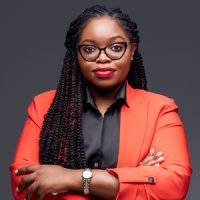
Stela Jaqueta is a Podcast Host, Procurement Professional and Supply Chain Enthusiast. Her main goal is to be a voice and advocate for the Development of the African Supply Chain. She has a Masters in Supply Chain Management from University of Pretoria. During her career, she has been exposed to practical projects that dealt with end-to-end supply chain. Additionally, she has published an academic article on the Physical Distribution Challenges and Adaptations in emerging African Markets. Her drive has always been to see the development of African Markets which has led her to write articles that assimilates Supply Chain Professionals with Create thinkers. One of her achievements include being ASCA Ambassador for 2023. And ultimately, her zeal steered her to start the first Mozambican Supply Chain Podcast titled: YASCP (Your African Supply Chain Podcast) out of the desire to showcase African Supply Chains in an uncomplicated manner. The podcast has covered topics such as cultural training in Supply Chain, Procurement, African Supply Chains and Supply Chain Talents. Her dream is to see Africa taking its rightful place as a Global Competitive Player. Connect with Stela on LinkedIn.
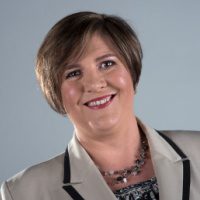
Karen Pretorius, founder, owner, and executive consultant of KPI Cubed Supply Chain Consulting and Training has 20+ years’ supply chain experience and more than 10 years’ hands-on training experience. Her qualifications include and MSc in International Business Management with a focus on Women in Supply Chain, MBA with focus on Leadership in Supply Chain Management, a B Tech in Post School Education, Certified Supply Chain Professional (APICS’ CSCP) and Certified in Logistics, Transport and Distribution (APICS’ CLTD) , Certified Sustainability Supply Chain Profession (ISCEA Certifies Sustainability Supply Chain Professional) to name a few. She is also a qualified instructional designer and content developer, assessor, and moderator. She offers objective facilitation for business strategy and process design and is an expert project manager. Karen has a passion for all aspects of supply chain management, and specifically Sustainability, and in 2021 expanded her reach to become a Certified Sustainability Supply Chain Professional (ISCEA). She is one the first Certified Sustainable Supply Chain Auditors (ISCEA) (Mar 2023) and also one of the first to complete the ASCM “Building Sustainable Supply Chains” course on Apr 14, 2023. Her passion for Sustainable Supply Chains and business is only surpassed by her passion for developing the next generation of Supply Chain Professionals. Training and development of Supply Chain people is her greatest love, and she believes in the motto of Peter Honey “Become a Learning Person”. She developed bespoke Supply Chain Career Counselling Programme to guide Supply Chainers of all levels to their next goal and uses this approach in her one-on-one mentoring. Karen was elected as a Director for SAPICS, The Body Supply Chain Professionals in South Africa in 2022. SAPICS the South African Chapter of ASCM, and Karen has been active member and volunteer at SAPICS for more than 18 years. She founded KPI Cubed in 2015, after a long career at DHL Supply Chain. Prior to working in Supply Chain, she worked in Tech Services, Financial Service, HealthCare and Government roles, specialising in training, development and implementation of systems. She is happy to talk to individuals and companies about career goals, and to help companies set their roadmap to attract and develop their Supply Chain resources at every level. Connect with Karen on LinkedIn.
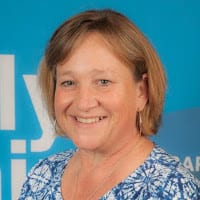
Jenny Froome is passionate about how supply chain management affects our lives on every level. Her original and now current profession is event management – the epitome of a well-honed supply chain. After many years working as COO of SAPICS – the professional body of supply chain management in South Africa she realized the importance of shining the light on the supply chains of Africa. Managing events such as the SAPICS annual conference, the People that Deliver Global Indaba, and the Africa Supply Chain Excellence Awards have truly allowed Jenny to combine her skills, knowledge, and community. Jenny’s lived all over the world and has settled in South Africa with her husband and many 4 legged friends while her sons are scattered around the world. Connect with Jenny on LinkedIn.
Hosts
Additional Links & Resources
WEBINAR- How Collaboration, Tail Spend Management, and VMI Can Improve Up and Downstream Communications
